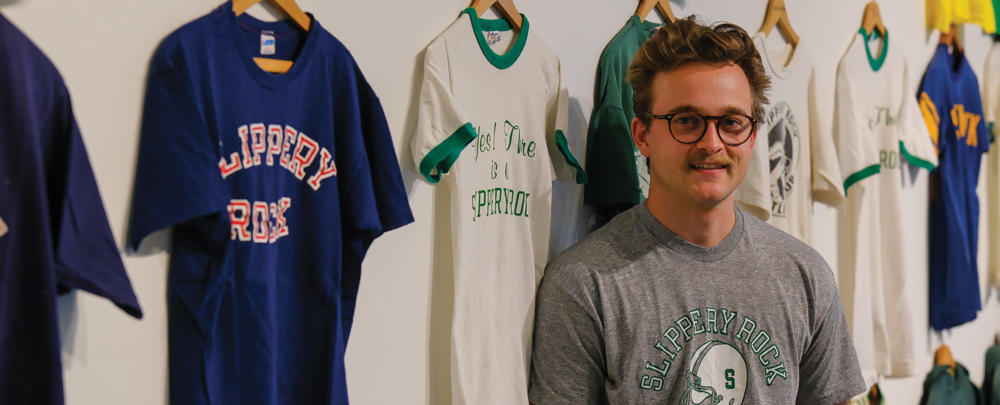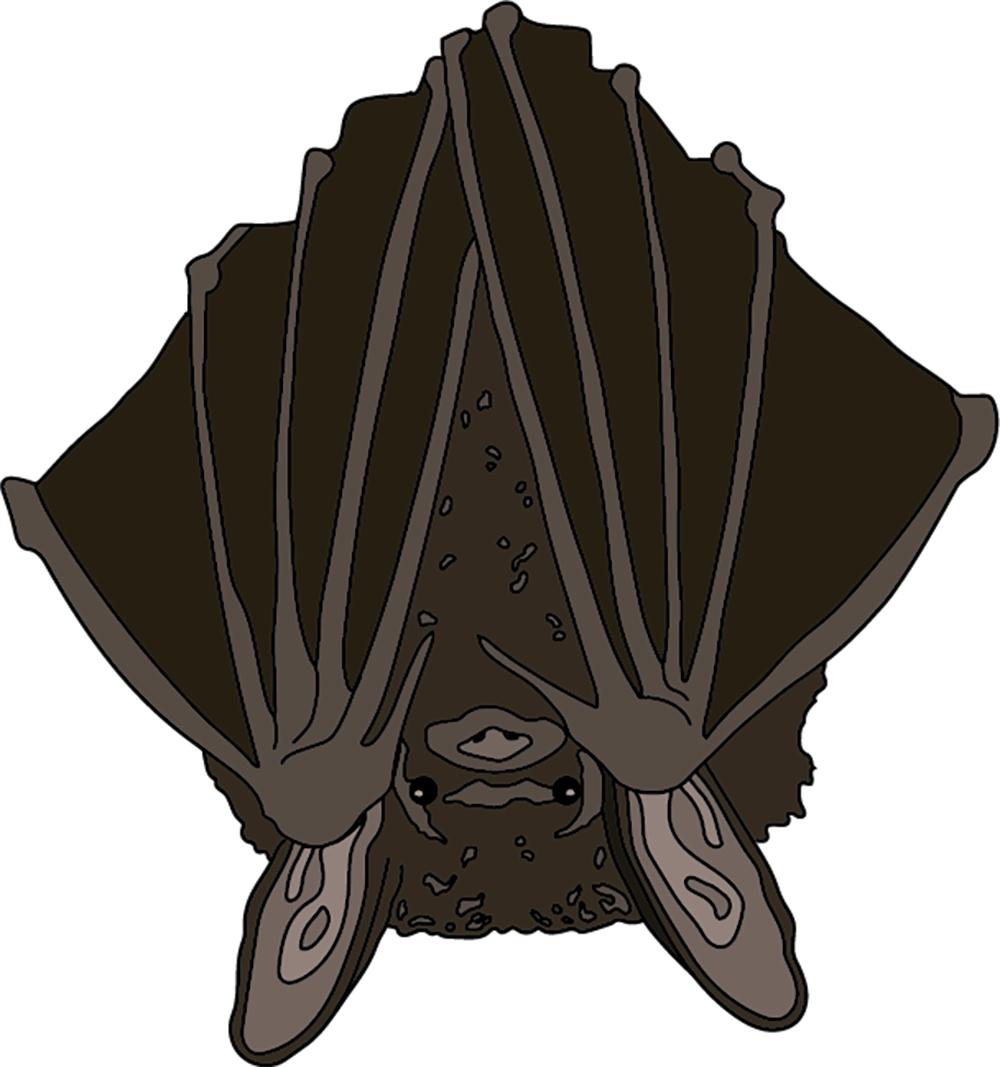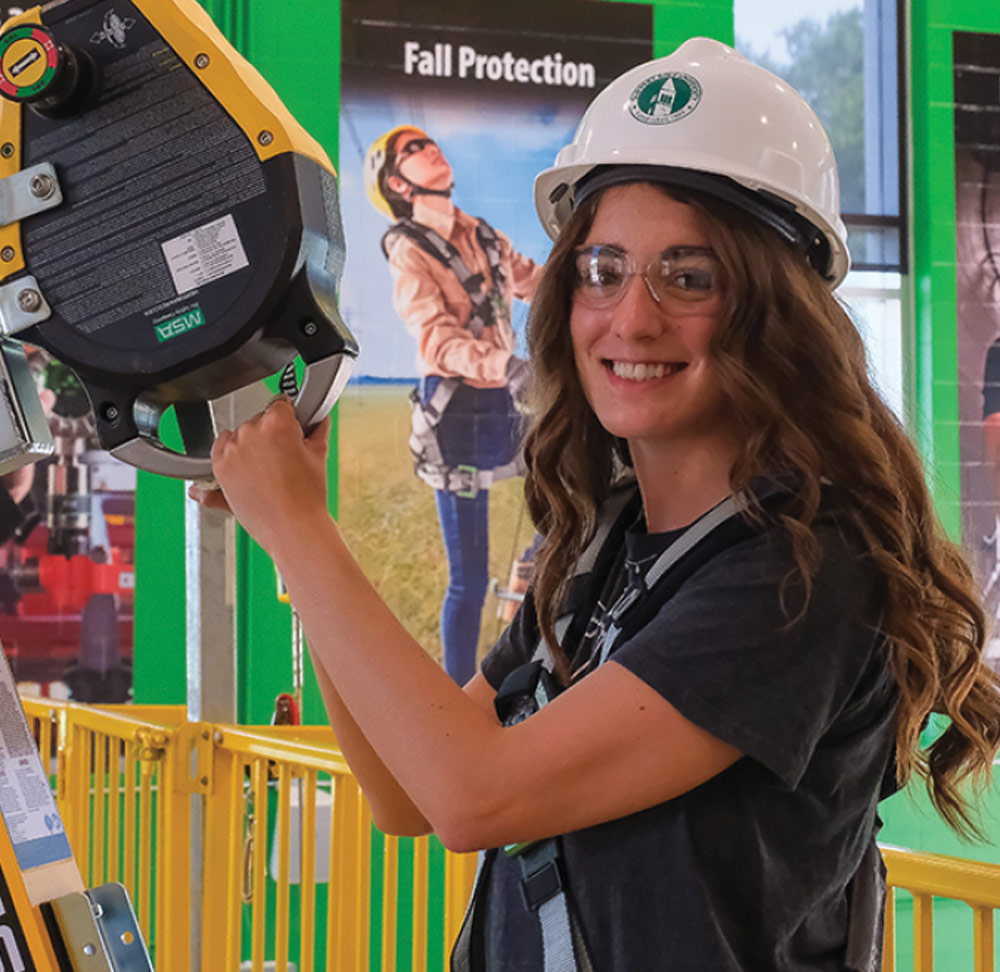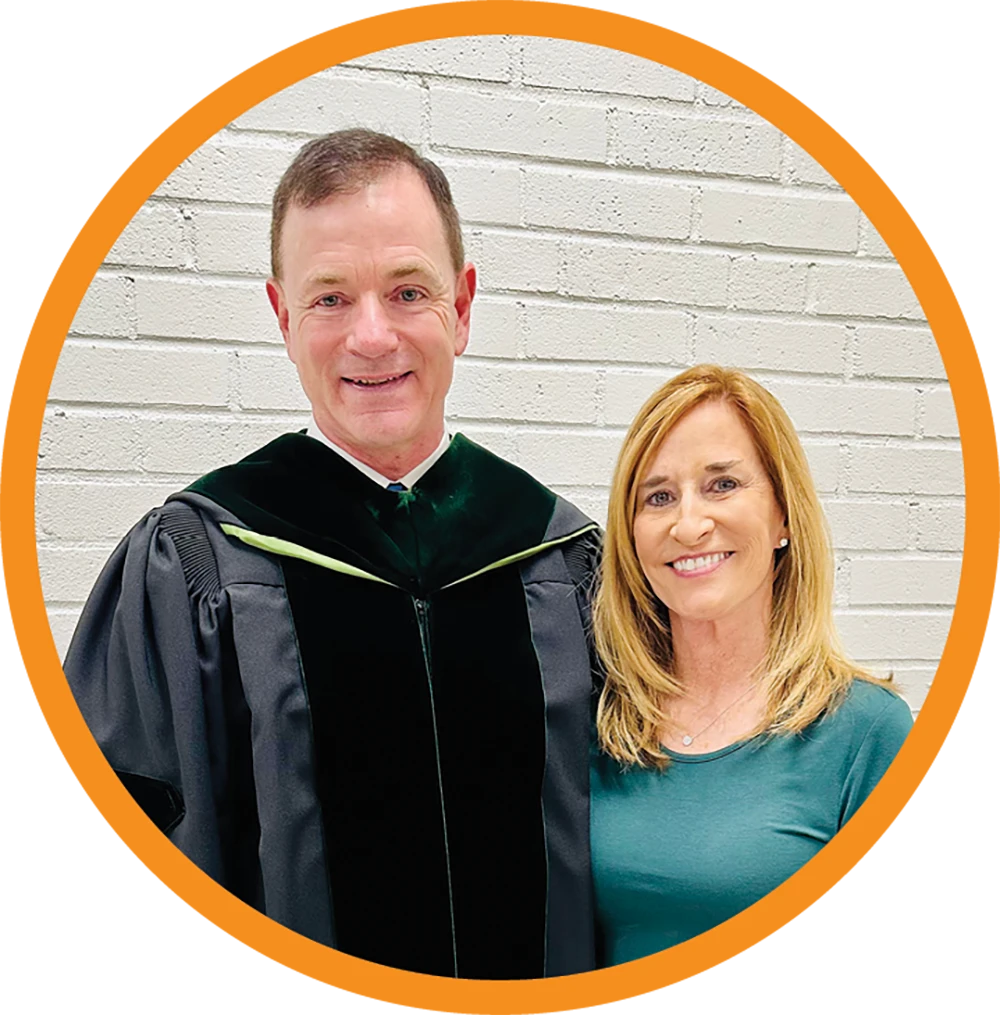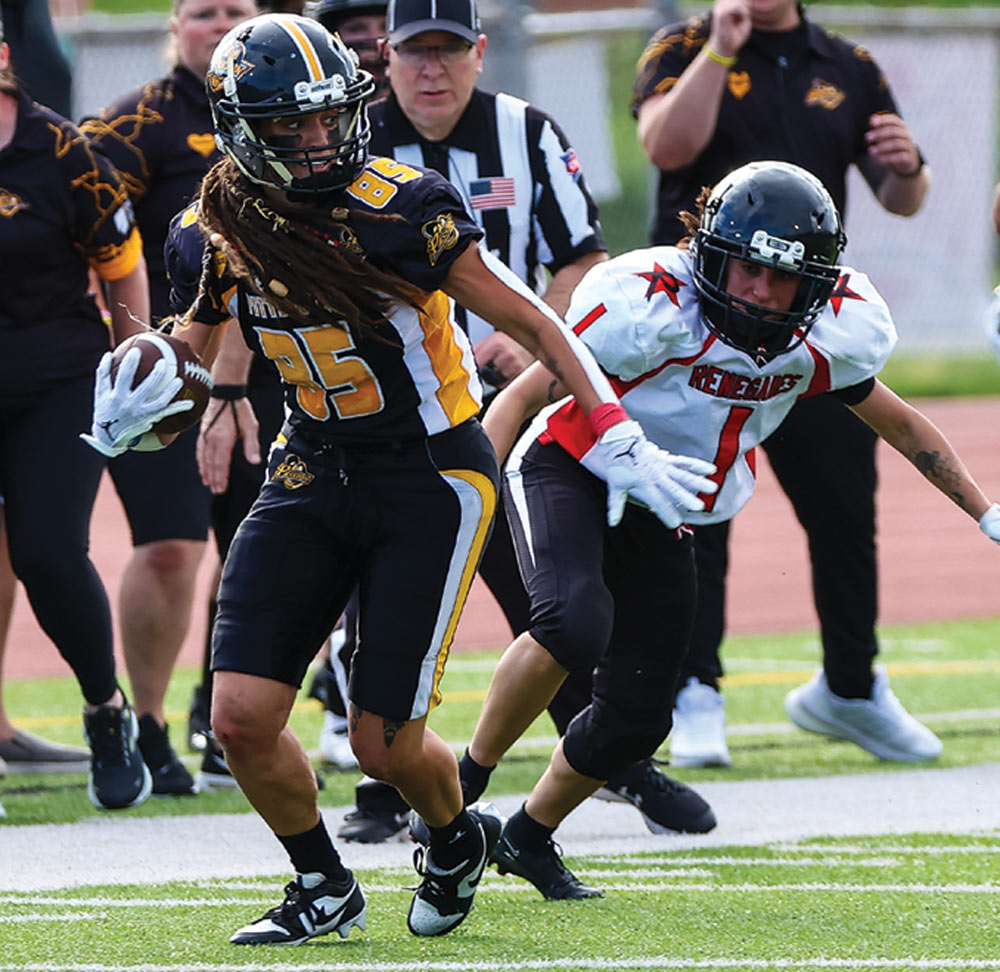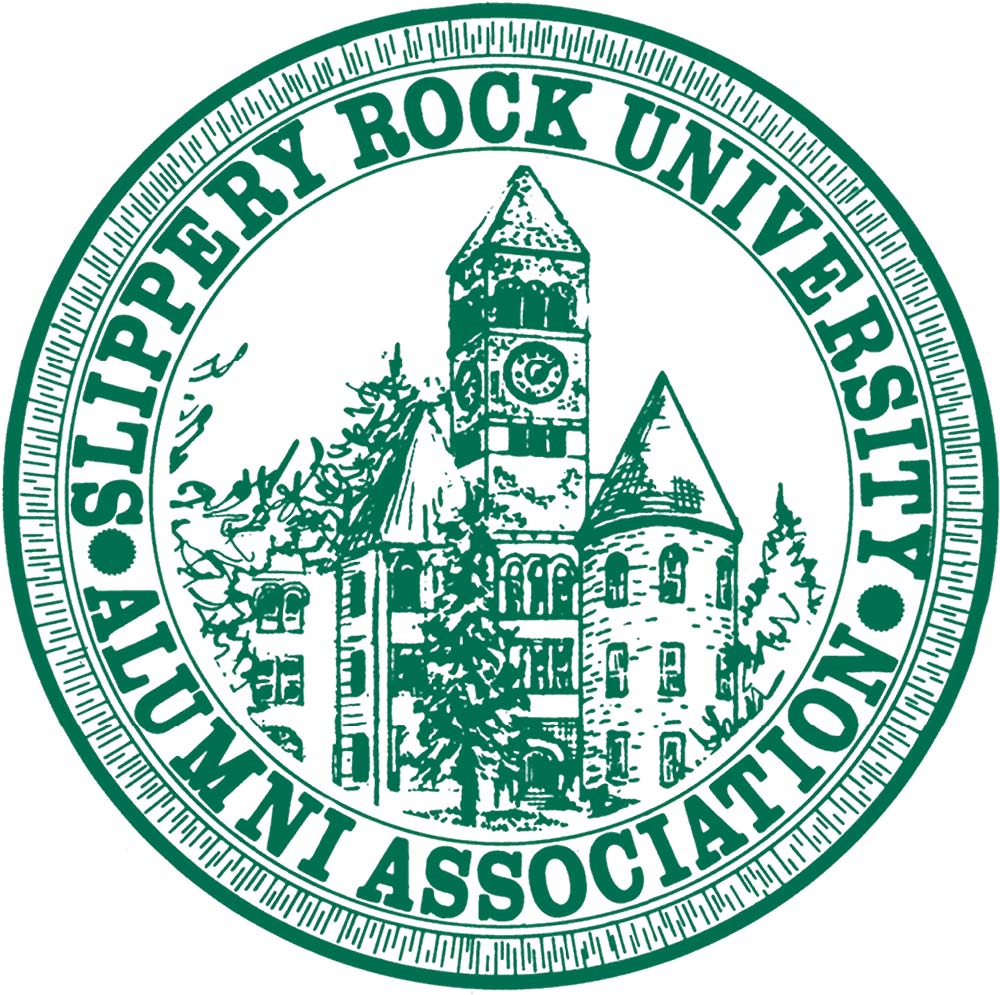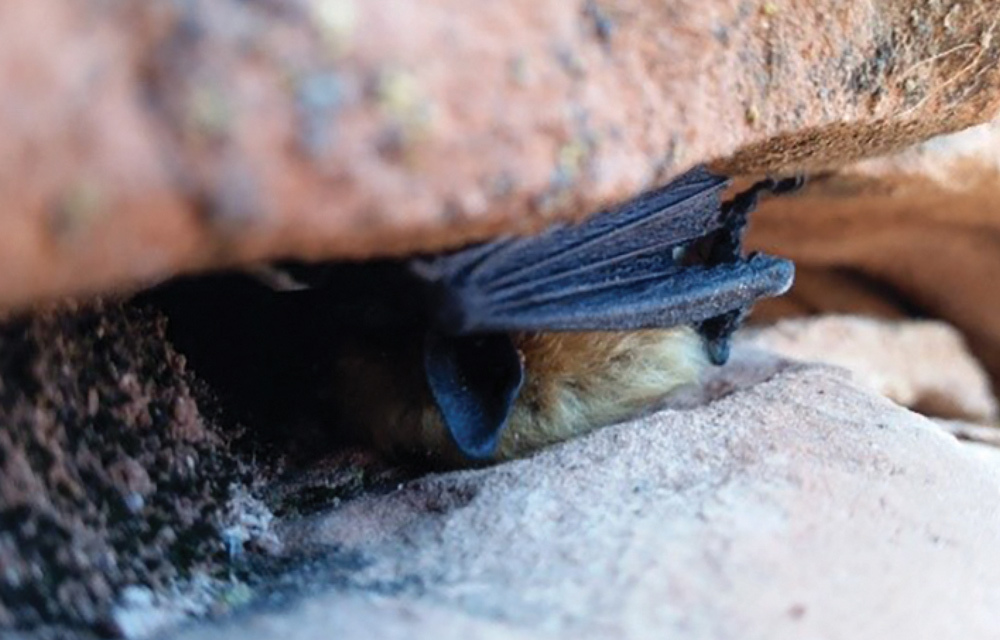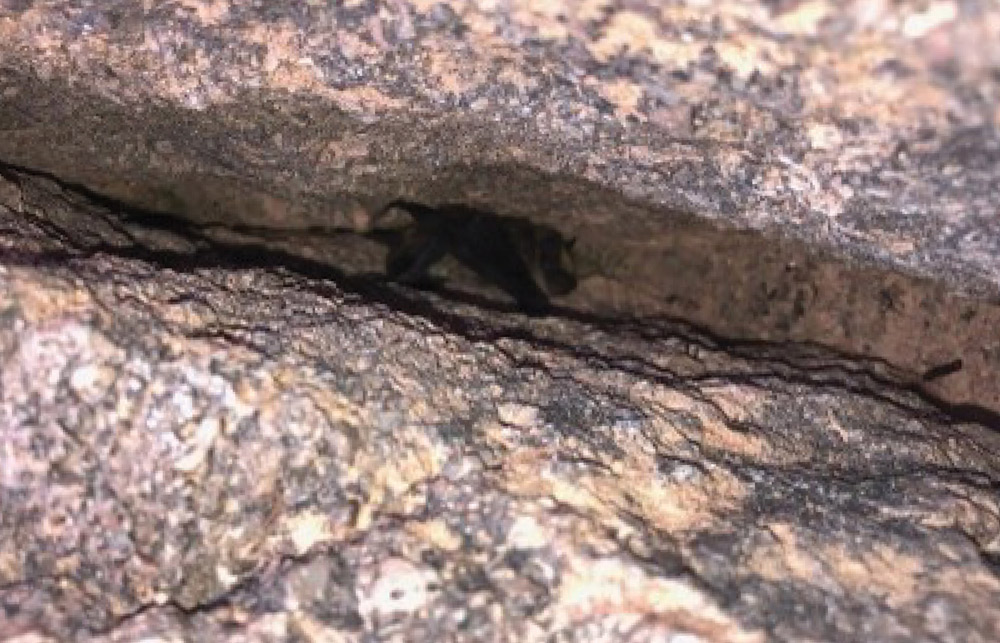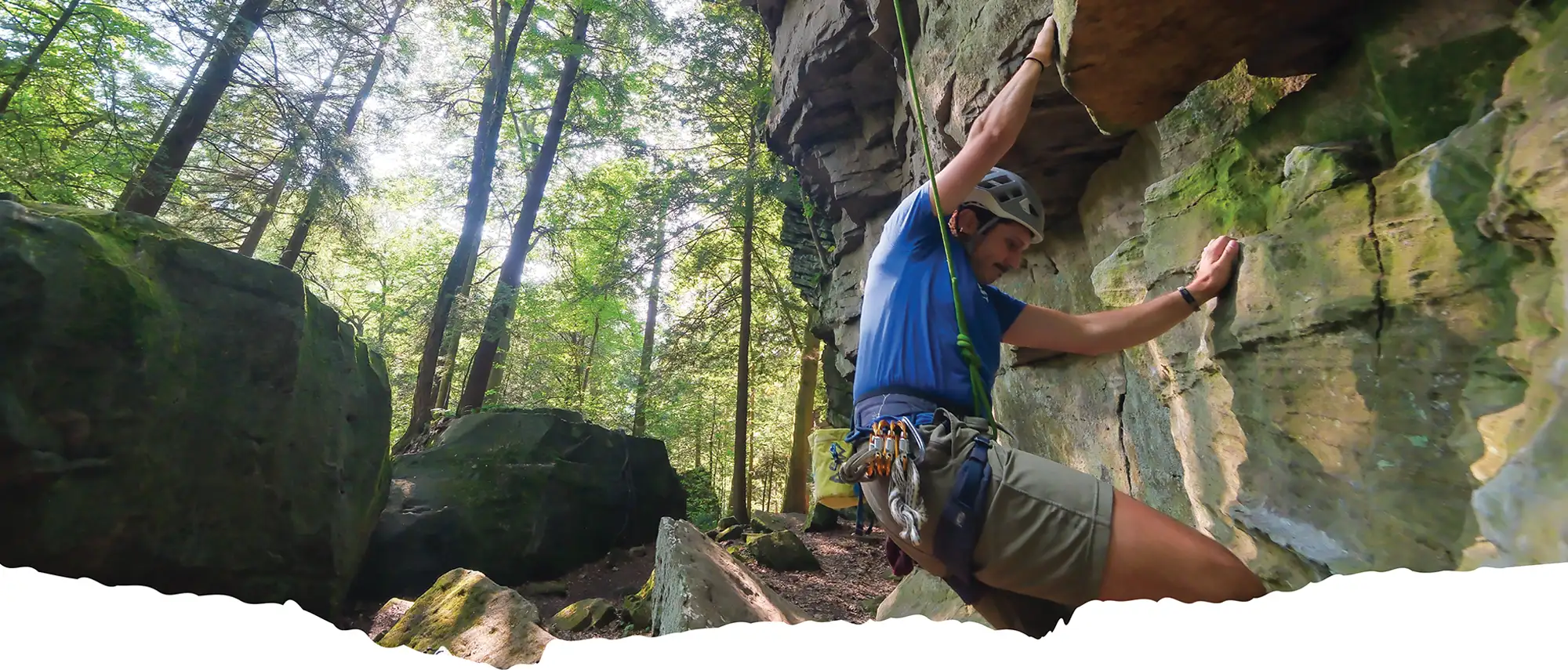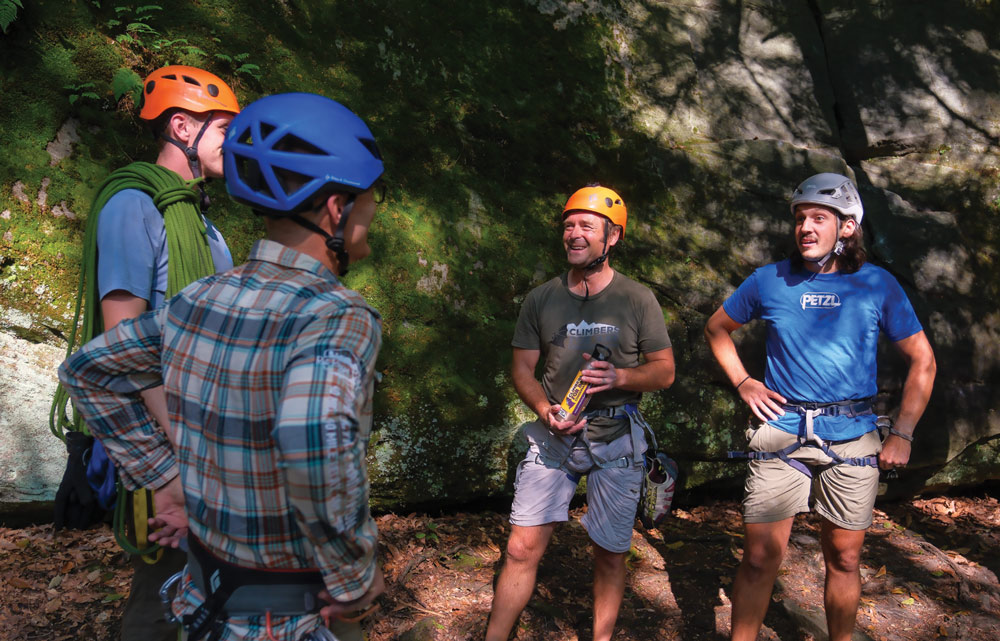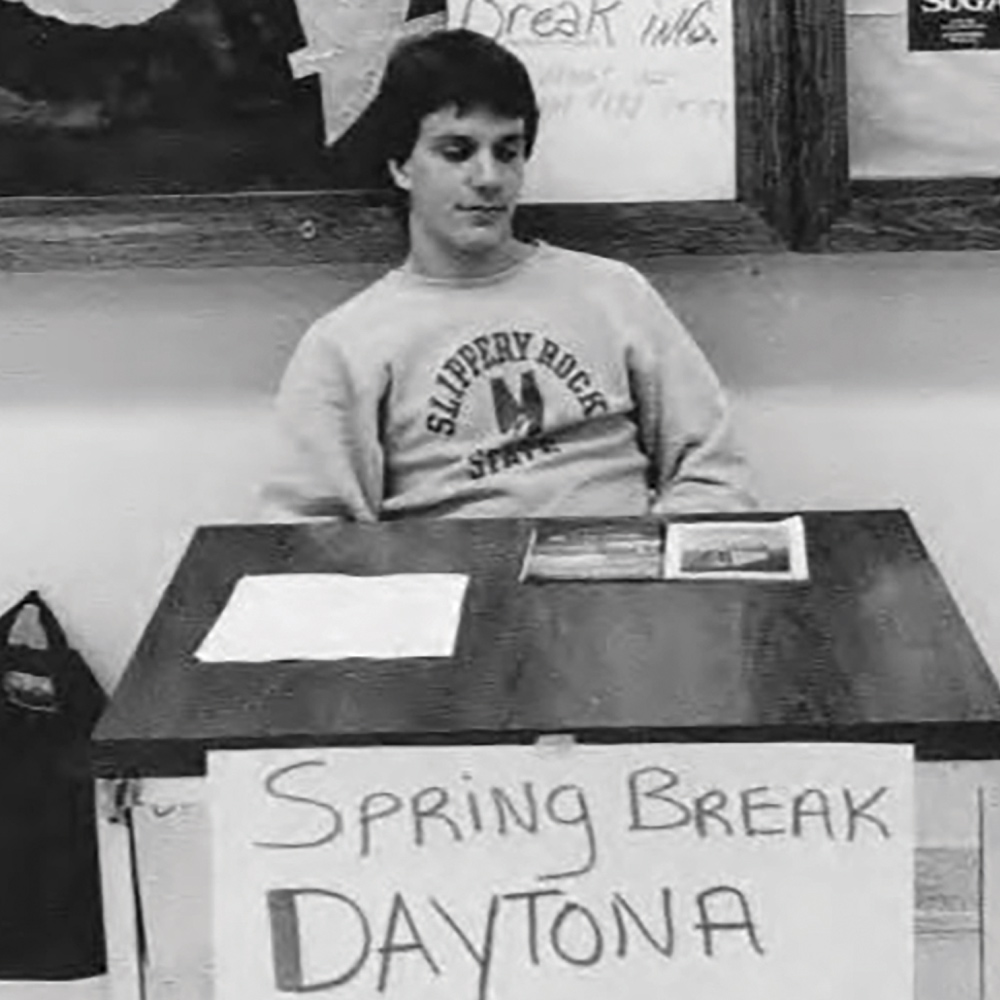Slippery Rock University Magazine The ROCK Fall 2024
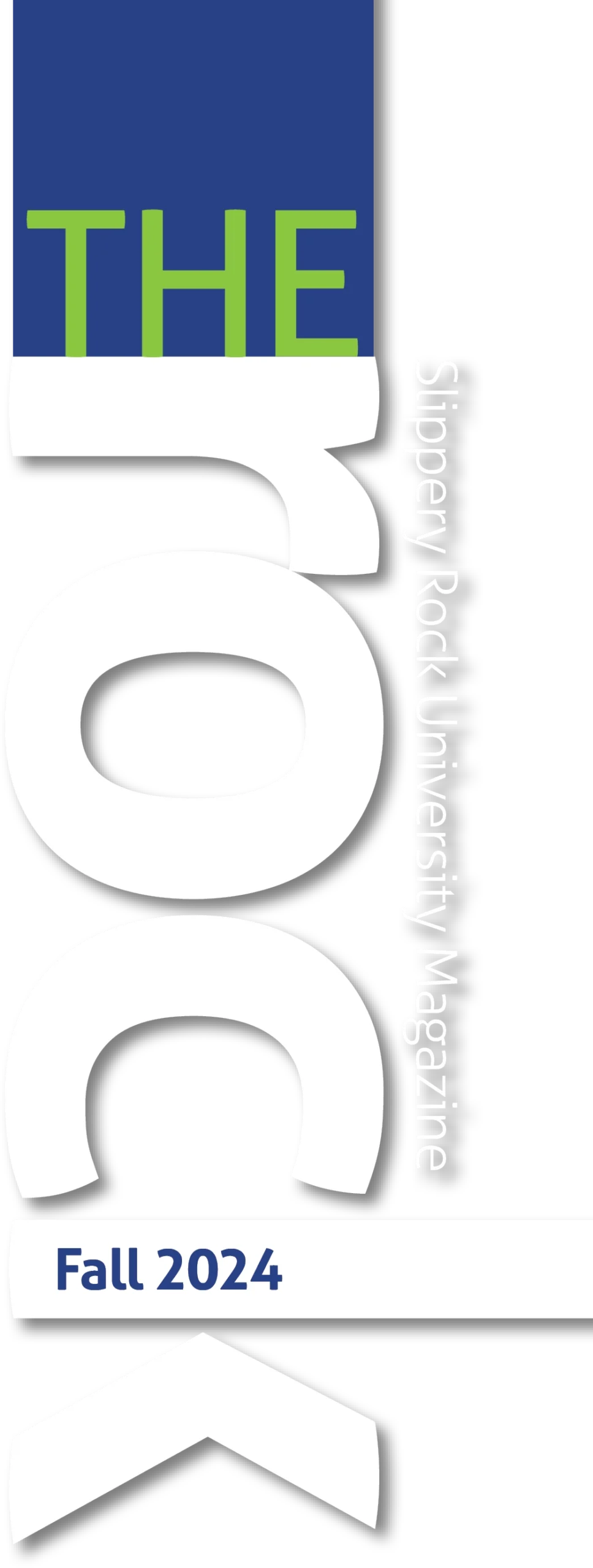

ON THE COVER
Shawn Davis, SRU associate professor of parks, conservation and resource management, climbs a rock face at McConnells Mill State Park. Read more about it here.
Rock Quarry

Chart Climbers
Washington Monthly ranked SRU in the top 20% of institutions in its category, as well as one of the “Best Bang for the Buck” colleges for affordability. Money.com named SRU one of America’s Best Colleges for 2024, awarding SRU 3.5 out of 5 stars, which was more than several Pittsburgh area institutions, including Pitt, Duquesne, Robert Morris, Chatham and Carlow.
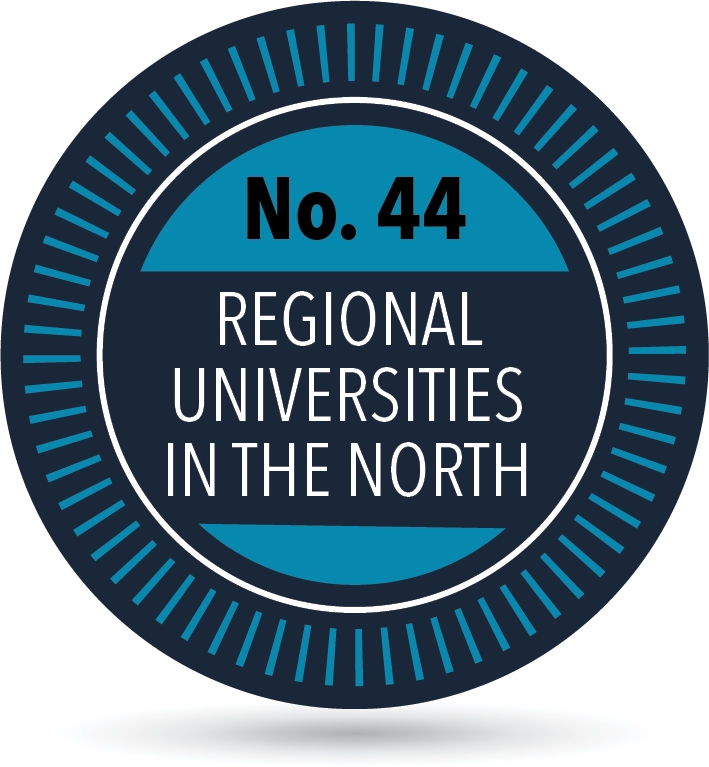

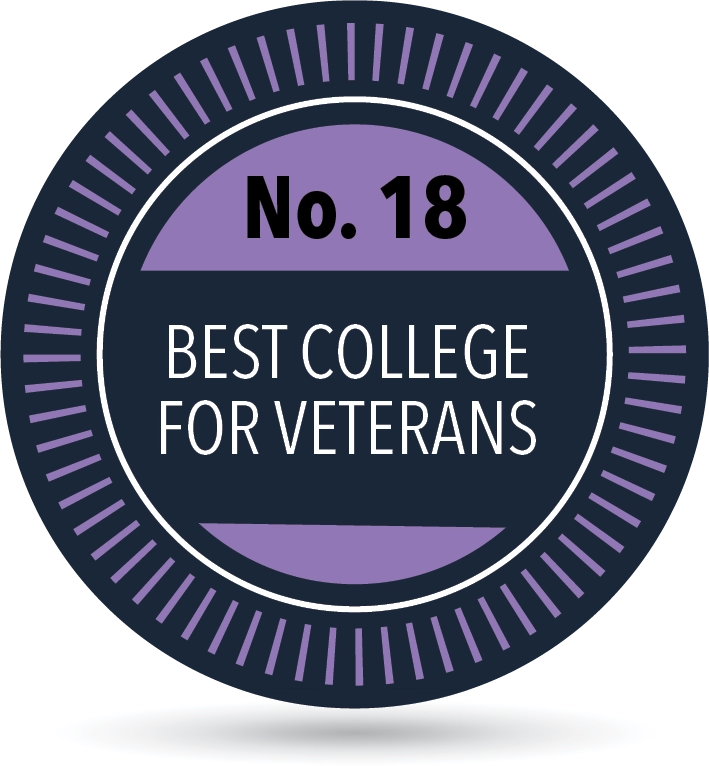
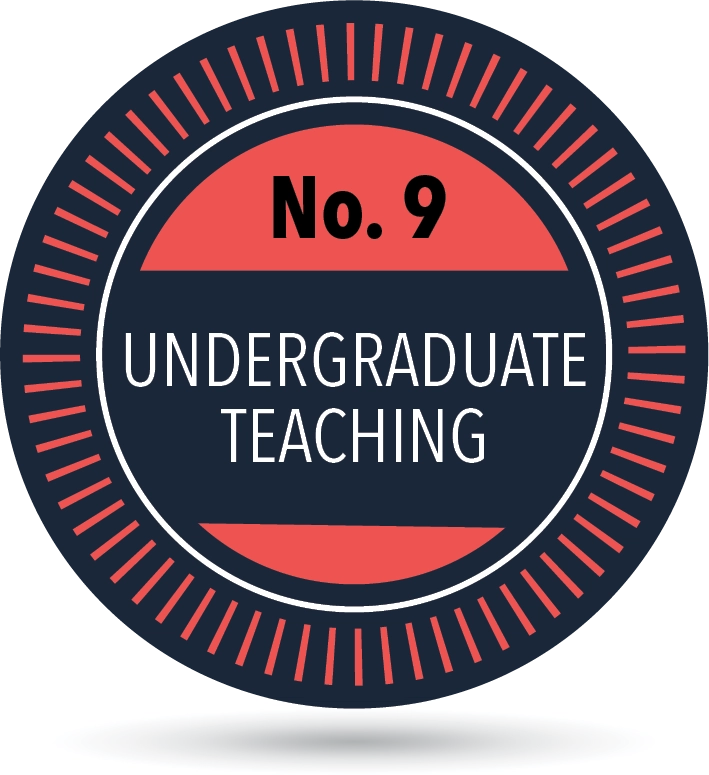








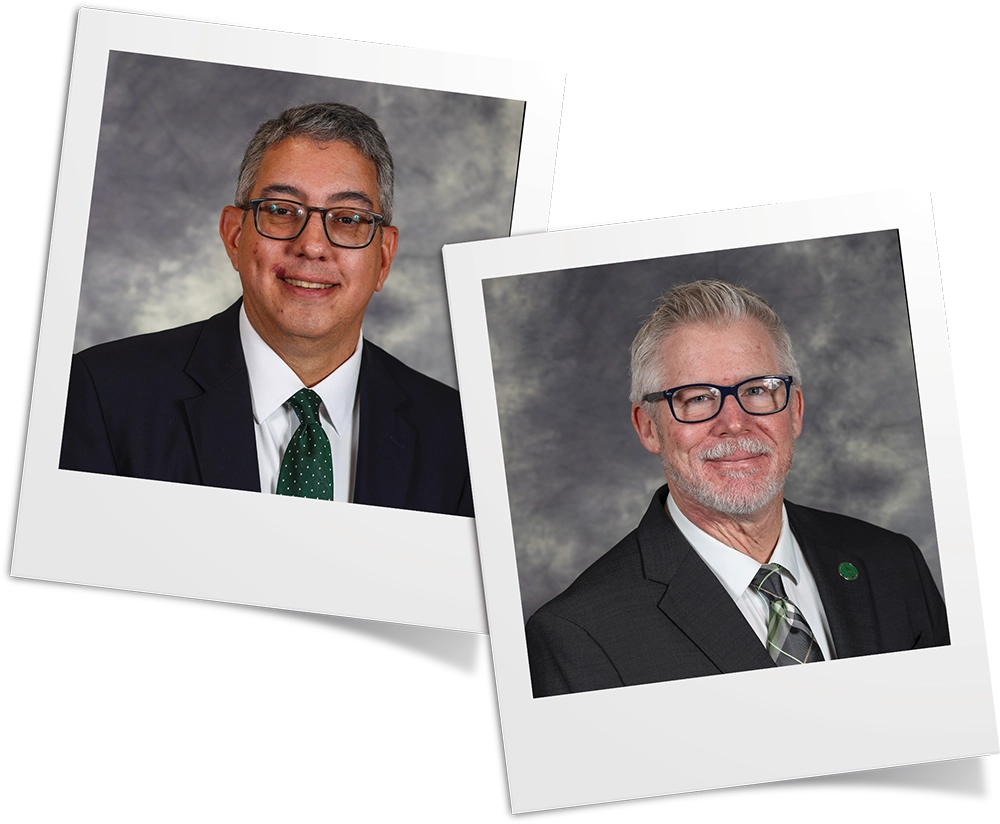
May and Miller named VPs
May, who has served in the role as an interim since March 29 after Amanda Yale’s retirement, has worked as a director in SRU’s Admission Office for the last 12 years. He leads SRU’s efforts to identify, recruit and admit the optimal number and quality of students.
Miller, who previously served as the vice president of development at York College in Pennsylvania, brings more than 30 years of development experience, including a 20-year background in higher education advancement. He is responsible for providing development strategies, building philanthropic partnerships and overseeing the University’s relationship with the Slippery Rock University Foundation, Inc.
Safety in Numbers

Fulbright Ahead

During her sabbatical leave in the spring of 2025, Teodoro will examine specific dance forms that were born and practiced in the South American country of Colombia, specifically along the banks of the Magdalena River, a 950-mile waterway that represents the country’s complex history and fertile culture. Teodoro’s research will be the basis of an evening length production that will feature dance, music, audio visual projection and narrative performed by Palenque, a student-run Colombian dance ensemble at SRU that she leads.
She will also work with students and faculty at her host institution, Universidad del Atlántico in the city of Barranquilla.

Best in Sports
SRU claimed its second Dixon Trophy since the award’s inception in 1995 and The Rock’s first since the 2007-08 academic year. SRU won two team titles in 2023-24, in women’s cross country and women’s indoor track and field, and six teams earned runner-up finishes.
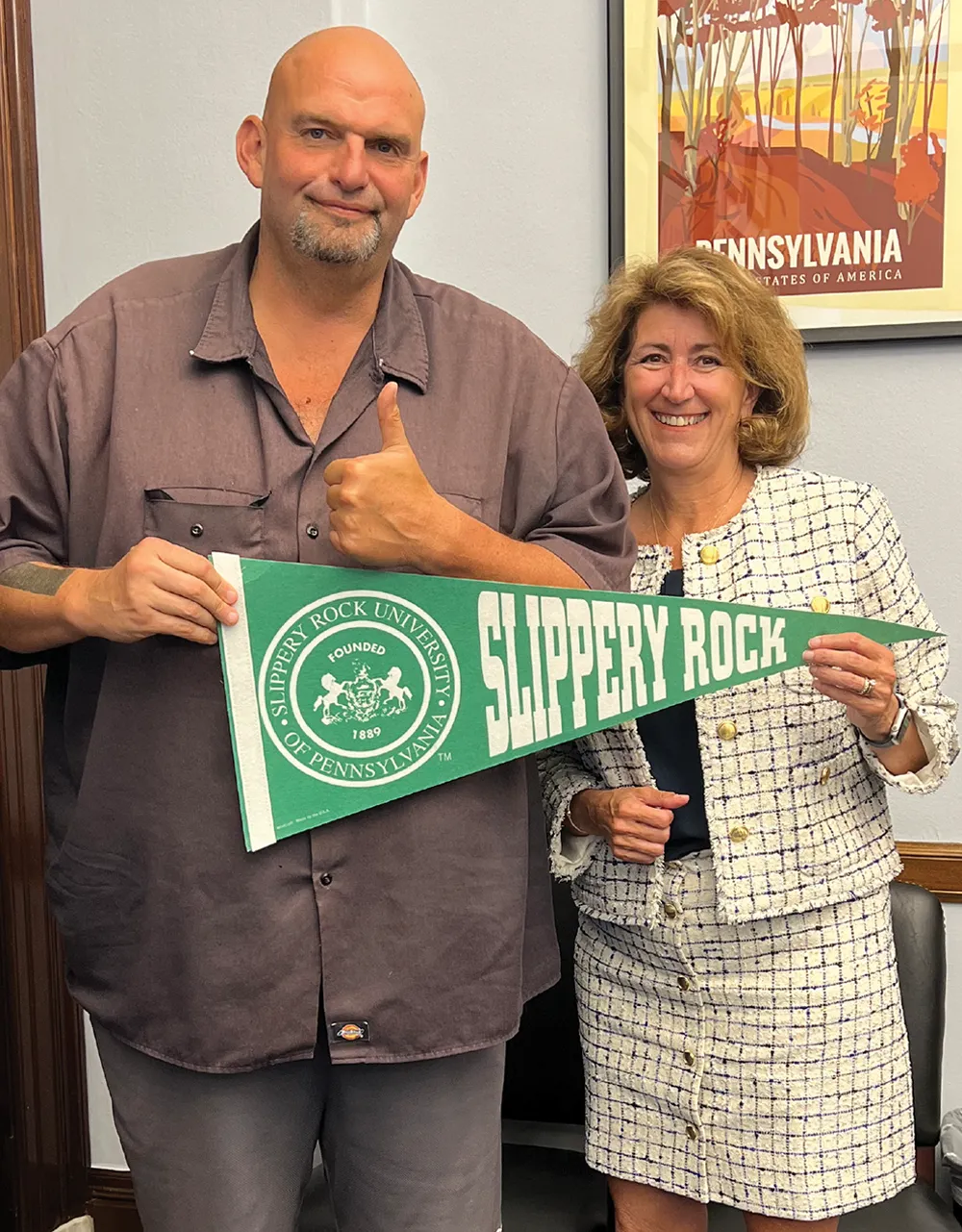
Riley Goes to Capitol Hill
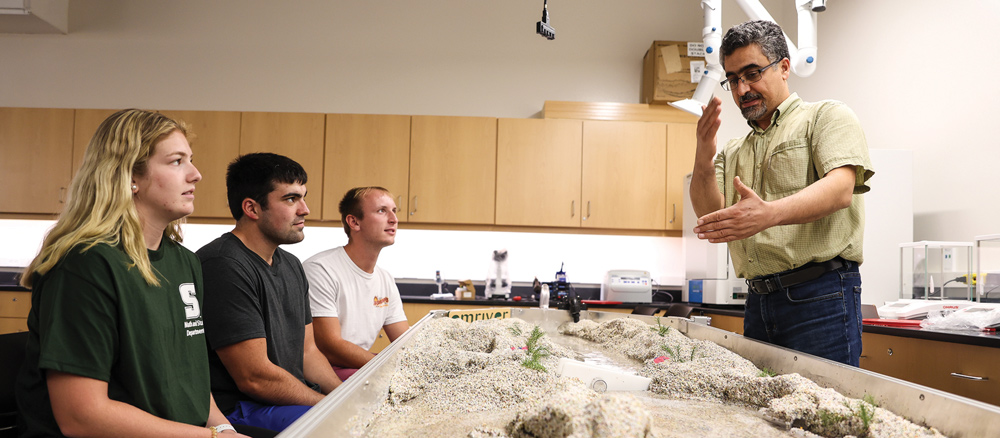
Engineered for Success
ABET accreditation assures that programs meet standards to produce graduates ready to enter critical technical fields that are leading the way in innovation and emerging technologies, and anticipating the welfare and safety needs of the public.
With SRU’s industrial and systems engineering and petroleum and natural gas engineering programs receiving ABET accreditation in 2022, all four of SRU’s undergraduate programs in engineering have now earned ABET accreditation.
Additionally, SRU’s petroleum and natural gas engineering program recently received a major boost through an in-kind gift from an industry partner. SRU Foundation Inc. accepted a software donation valued at $3.8 million on behalf of the University from PE Limited, an international company known as Petex that develops engineering software for the petroleum industry. This donation will allow students at SRU to use the same advanced software that oil and natural gas professionals use in the field.

ROCK VEGAS
Rock Files

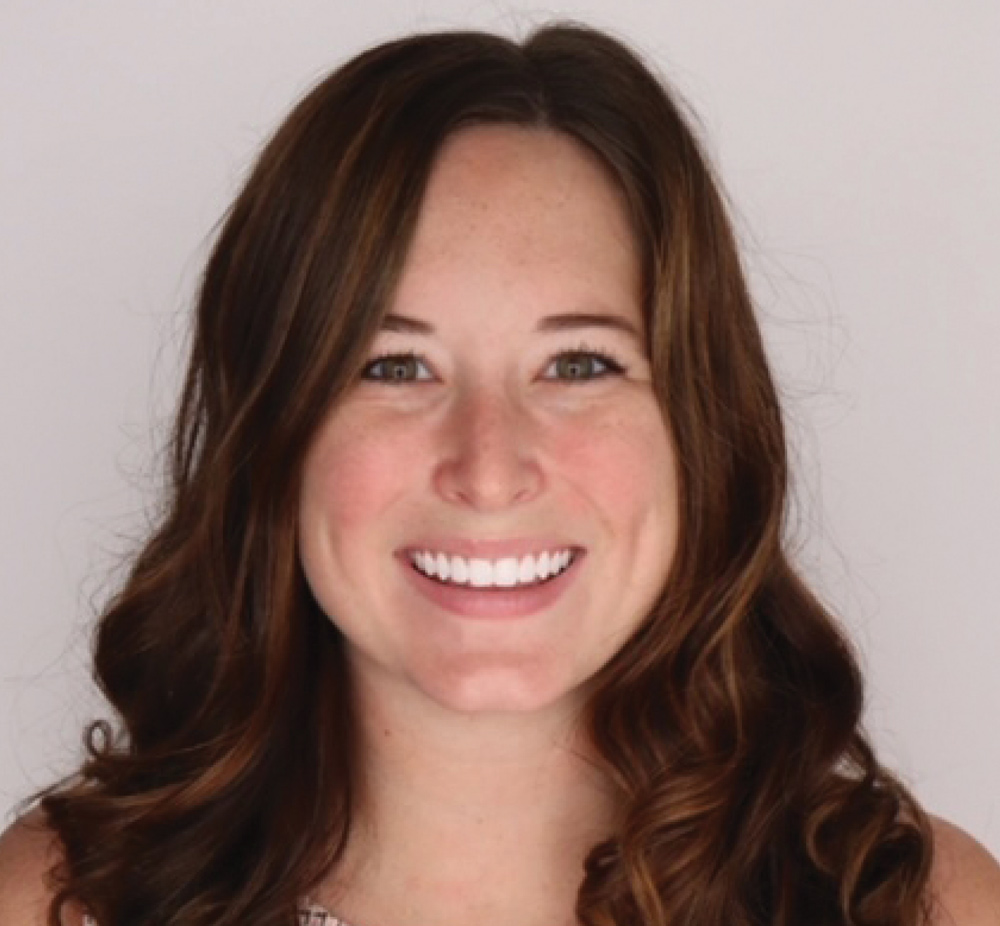
Kelli Maxwell Liscoe, ’17,
Bachelor of Science, marketing
PROFESSION: For the past three years, I have worked as a deployment manager for PricewaterhouseCoopers. The best part of my role is helping staff to grow their careers by placing them on projects where they can grow their skillset. Prior to joining PwC, I spent several years at Deloitte working in recruiting and HR.
HOBBIES: I love travelling with my husband. Our favorite destination so far has been Thailand. I also enjoy cooking and hosting dinner parties with friends. Most recently, I started taking tennis lessons.
GREATEST ACCOMPLISHMENT: Professionally, earning my master’s degree from the University of Limerick in international management and global business and becoming a mentor to the staff that work on my team. Personally, making a perfect chocolate souffle.
WHY I GIVE: I give because travelling has made such a difference in my life. It opened up my mind and that would not have been possible for me without the generosity of the McMullen Scholarship that I received at SRU. I want to be able to give someone else that life changing opportunity.
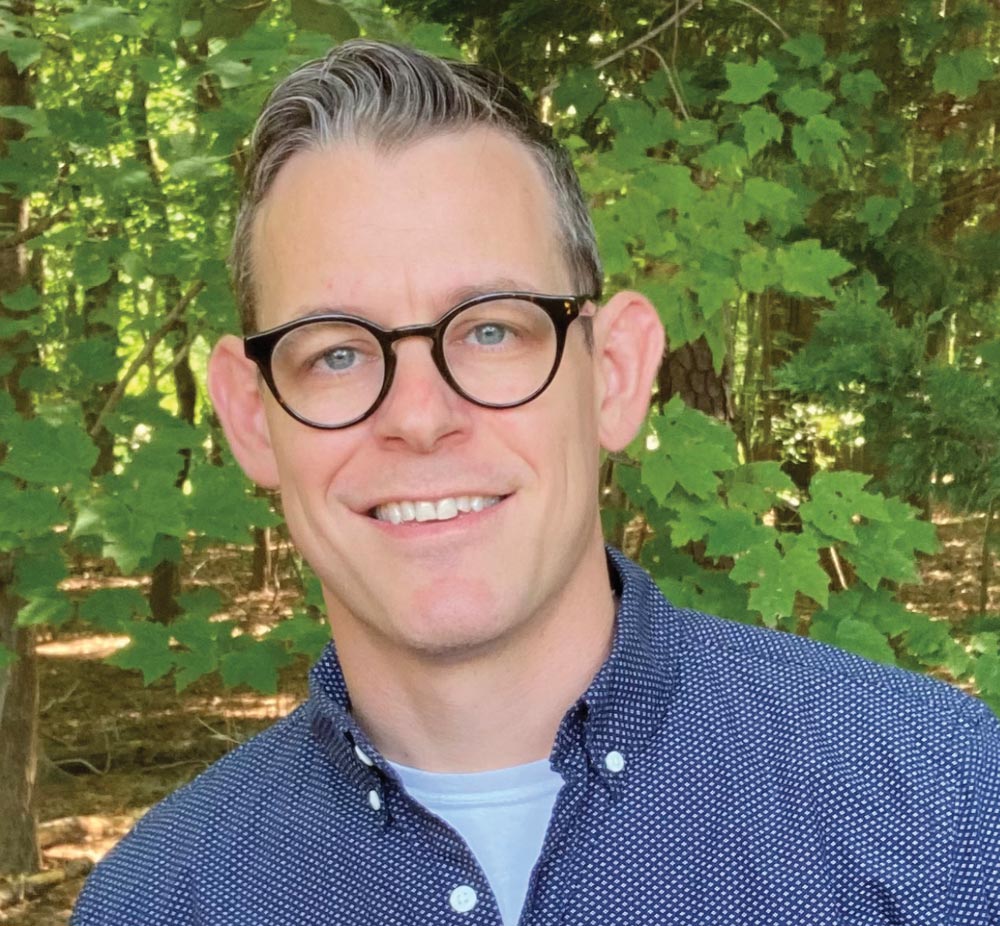
Eric Hardin, ’08,
Bachelor of Science, physics
PROFESSION: I work in defense technology as a computer vision engineer, which means I develop computer algorithms that make sense of images, mostly for Department of Defense customers. For one of my favorite projects, we developed a system that could take satellite images over a city and create what was essentially an accurate virtual world, like a video game, that could then be used for operational planning and practice.
HOBBIES: I love spending time with my wife, Ashley, and my kids, Olivia, 5, and Isaac, 3. I also like to cook, train Brazilian Jiu Jitsu and read biographies, psychology, stoic literature, self-improvement books or anything that could help me get better at “the art of living.”
GREATEST ACCOMPLISHMENT: Getting my Ph.D. in physics and entering a career where I get to develop interesting technology that is often motivated by world circumstances. But more and more though, my greatest accomplishment-in-the-making is being a good father and raising happy, resilient kids.
WHY I GIVE: I give out of gratitude to SRU and the Physics Department faculty, especially Dr. (Athula) Herat. SRU provides students with an affordable, high-quality education, which is such an advantage in life. I also give because I want to help current students have the kinds of engaging and valuable experiences I had. SRU and the faculty there played a big part in helping me realize the life that I enjoy today, and so I’m happy to be able to give a little back.
sru Success by the Numbers


undergraduates
graduate students
AN SRU RECORD!
first-year students retained from last fall
national average

undergraduates
graduate students
AN SRU RECORD!
first-year students retained from last fall
national average
Top 5 majors

Exercise Science

Safety Management

Psychology

Early Childhood/Special Education

Biology

Exercise Science

Safety Management

Psychology

Early Childhood/Special Education

Biology
DEMOGRAPHICS
FROM PENNSYLVANIA

Underrepresented minorities
First-generation college students
Female
first-year students
total first-year students
increase from fall 2023
high school GPA
graduated in the top 1/2 of their high school class
graduated in the top 1/4 of their high school class
total first-year students
increase from fall 2023
high school GPA
graduated in the top 1/2 of their high school class
graduated in the top 1/4 of their high school class
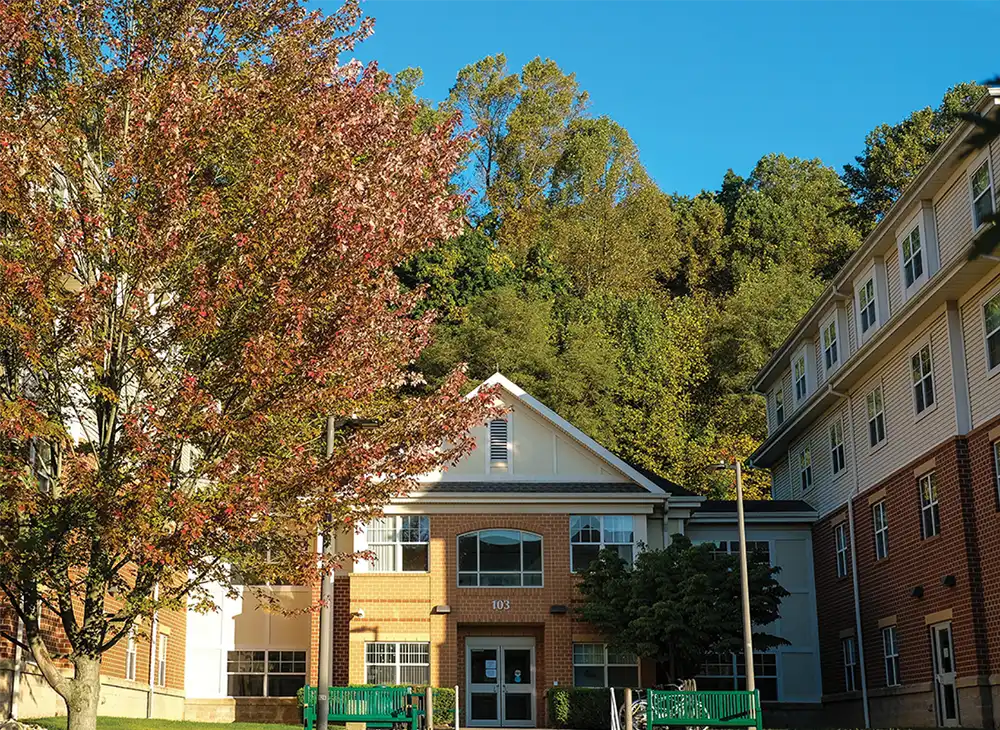
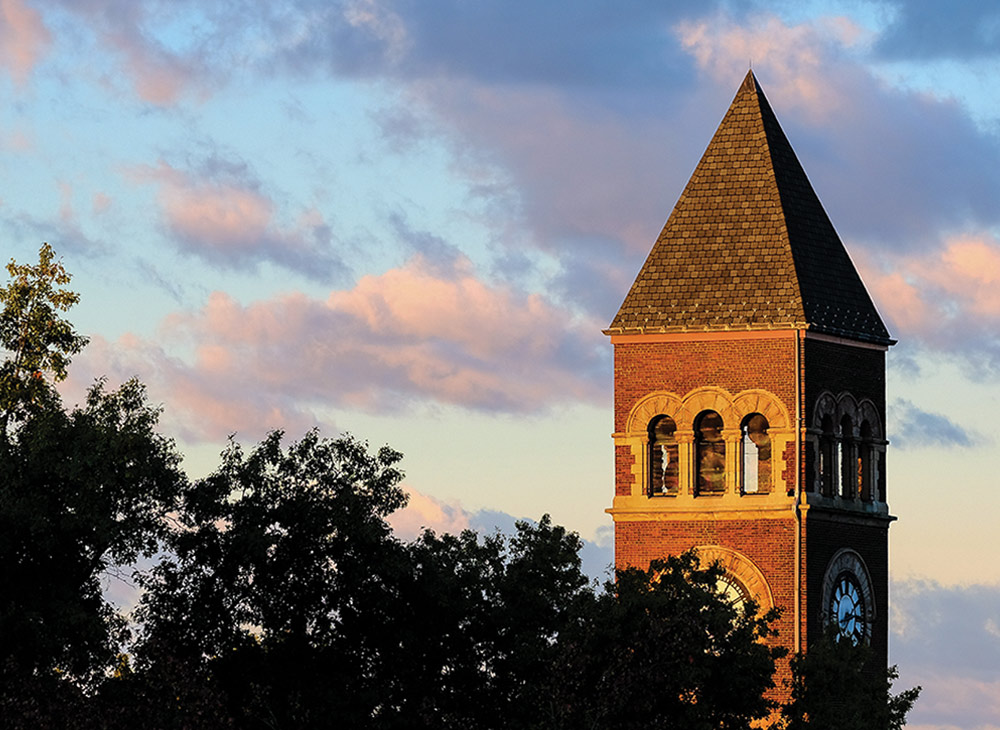
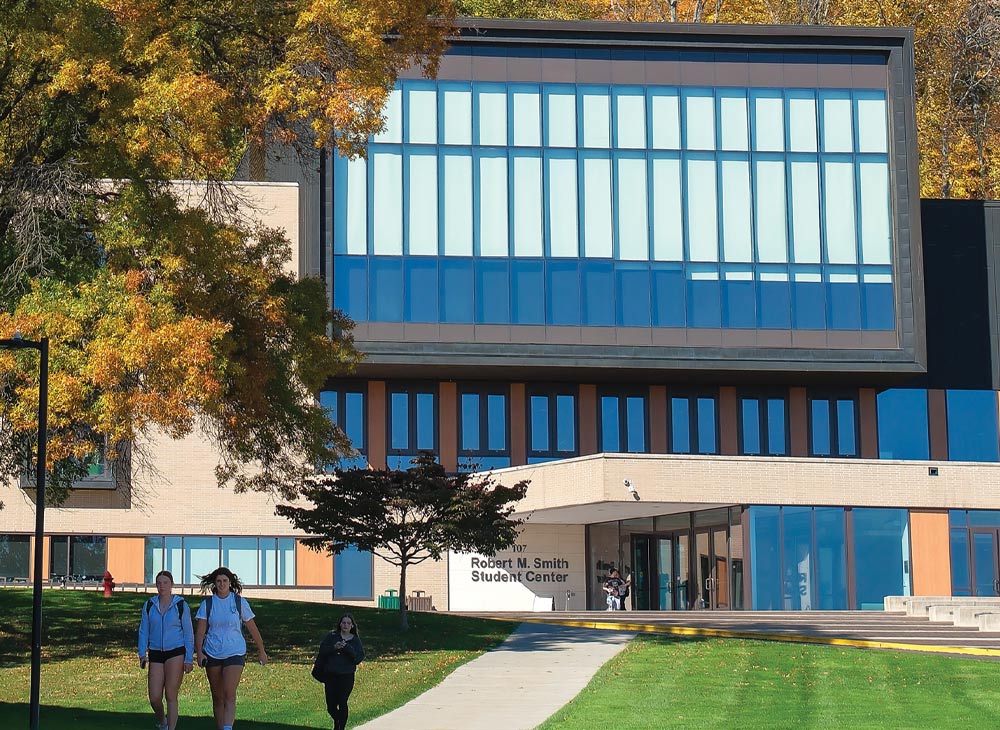
Batting an Eye


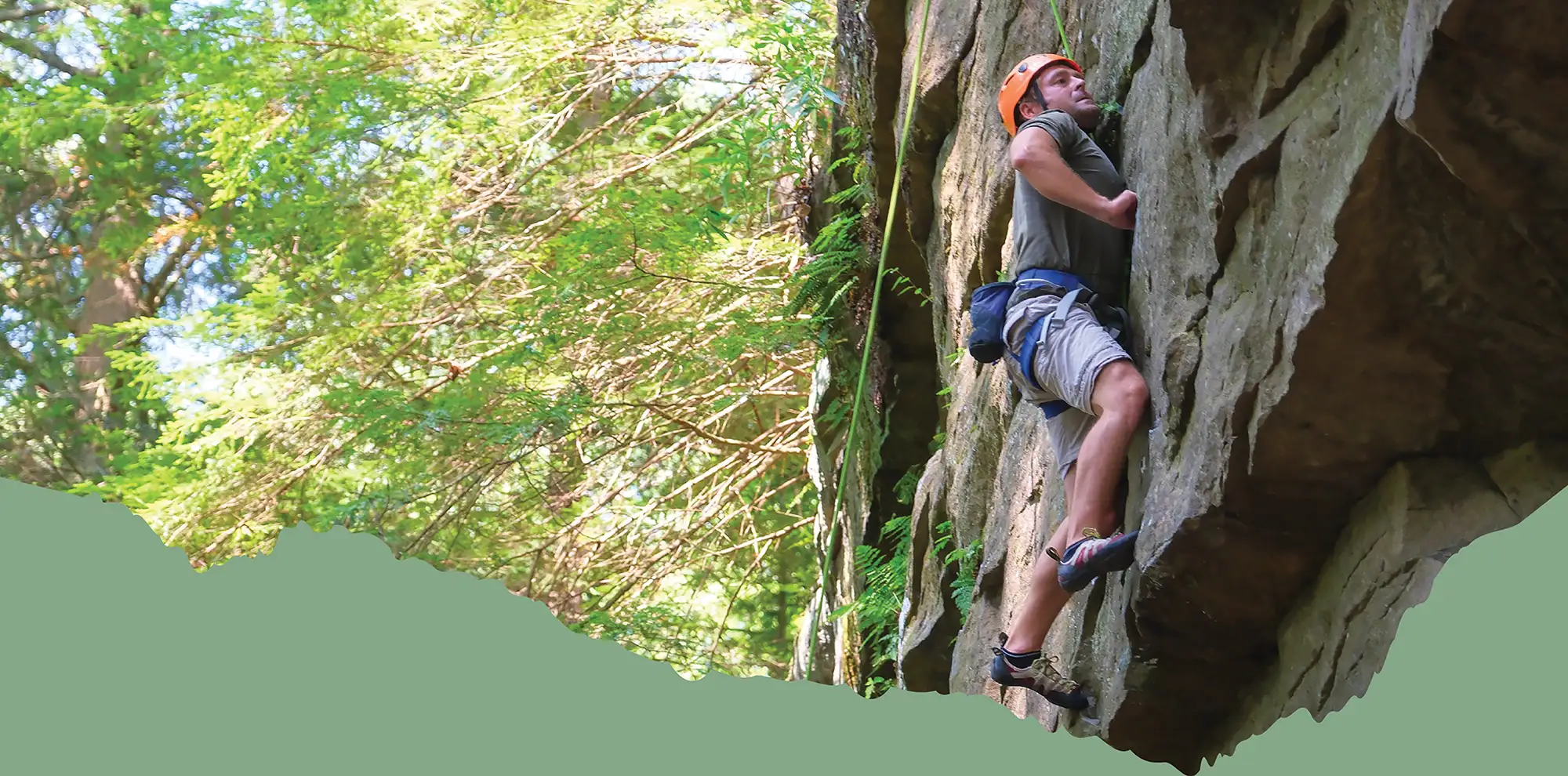
Batting an Eye



An associate professor of parks, conservation and resource management at Slippery Rock University, Davis is the co-founder of Climbers for Bat Conservation, a national organization that works with the rock-climbing community and people tasked with protecting the bat population.
“We activate climbers through citizen science to help us identify areas in cracks and crevices that could be far up cliff faces and difficult for bat biologists and land managers to reach,” Davis said. “Climbers have a unique ability and skillset to get into those areas where we could find bats that we didn’t know existed.”
Bats are under tremendous threats, from habitat loss, pesticide use and wind turbine collisions, but the most significant is a relatively new disease in North America called “white-nose syndrome.” Caused by a fungus that drains bats of their energy and water while they are hibernating, white-nose syndrome was first detected by biologists who found sick and dying bats in caves near Albany, New York, in 2007. In the next four years, an estimated 6 million bats were killed and the disease keeps spreading today. It has now been detected in 40 states.
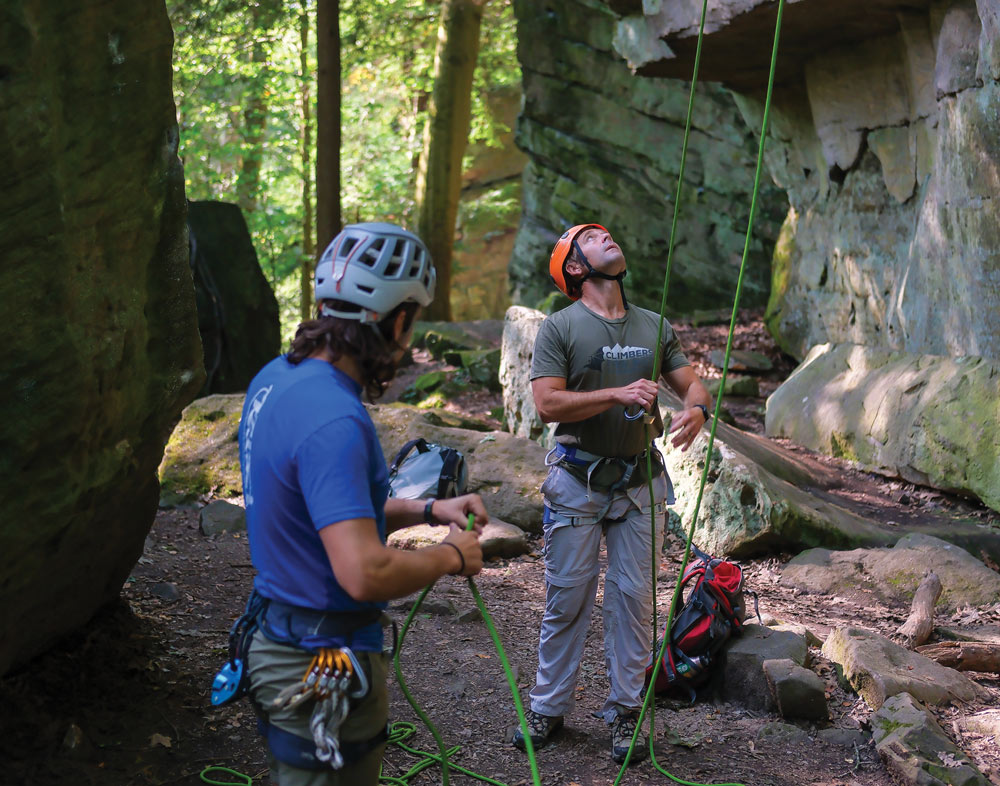
“Biologists and conservationists will then go onto our site and see all of the different sightings,” Davis said. “If they become aware of a habitat area, they might decide to investigate and set up nets to capture, identify the species and tag them. They could potentially test for things like white-nose syndrome to see if it’s present in the bat species.”
Previous research has shown no evidence of white-nose syndrome in bats discovered in cracks and crevices on cliff faces, compared to larger colonies found in caves.
“We’re starting to build evidence and it’s way too early to say that certain bats are protected from white-nose syndrome,” Davis said. “But we’re finding that some of these bats might have protection from diseases that affect larger populations of bats. We’re really at the cusp of this new type of research.”
CBC has received funding through grants from agencies and organizations such as the Washington State Department of Fish and Wildlife, the Alpine Club and the Access Fund, the latter of which advocates on behalf of the rock-climbing community toward sustainable access and conservation of the climbing environment.
“We brought climbers on board from the start,” Davis said. “We didn’t want this to be an organization that was researchers trying to capitalize off climbers’ data. We wanted climbers to be a part of it and help make decisions about how we can ensure not only conservation of bat species but also access to these climbing areas. That’s what makes our organization both effective and palatable to climbers, rather than having climbers thinking we’re just out there trying to shut down climbs and all we care about are bats.”
Both Davis and Schorr are active climbers themselves, although Davis is a climber turned bat enthusiast and Schorr started as a bat biologist who took up the sport. They help climbers see the benefit in logging bat sightings. When land managers have precise data, they are less likely to close a climbing site if they suspect a threatened bat species might be present there.

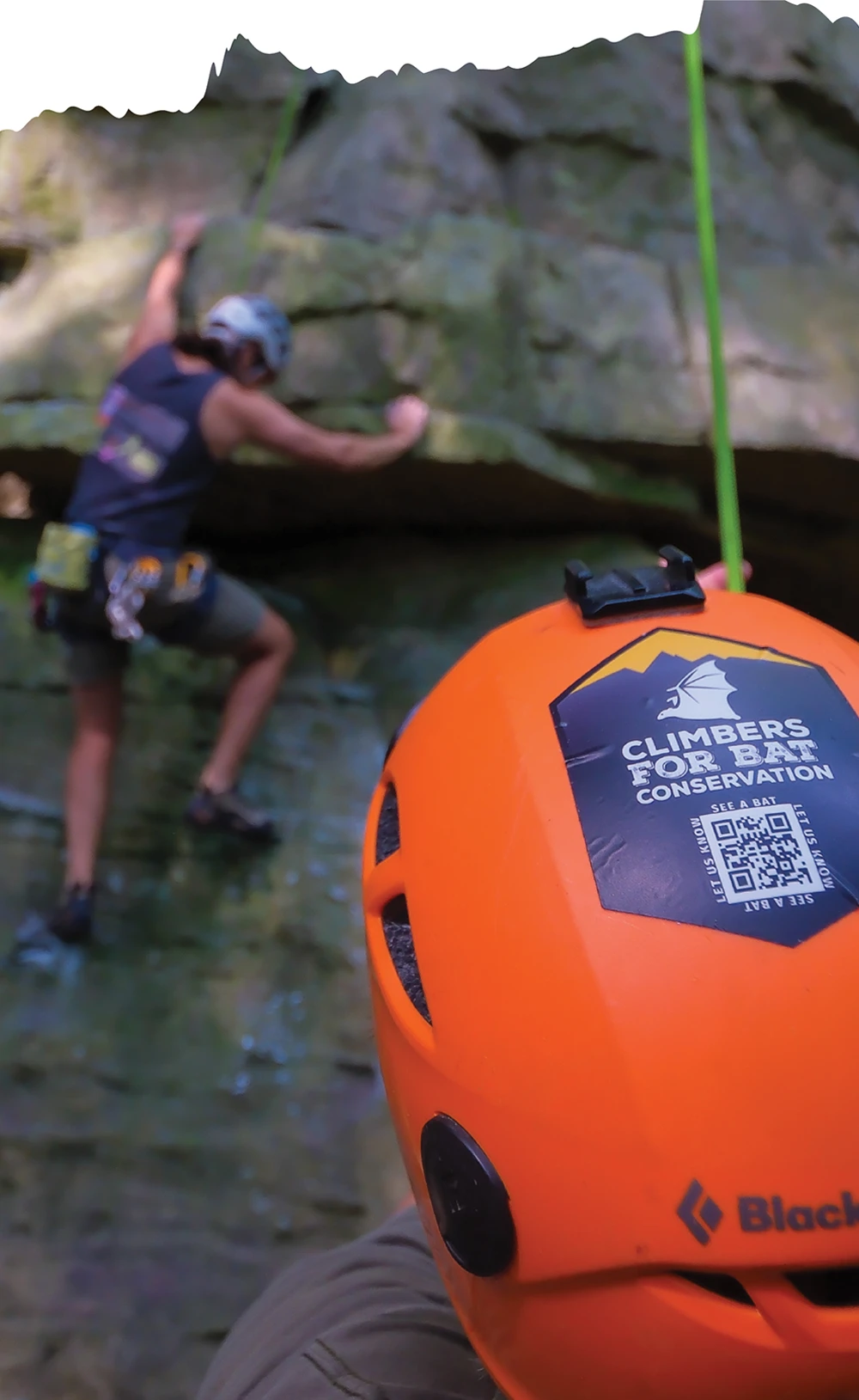
“Then if they do need to close a site, the local climbing organizations are aware of the closure and the reasons why, and there is the science to back that up, rather than just closing it for the outside chance,” Davis said. “But we don’t really know if climbing disturbs bats. There’s some evidence that climbers might actually enhance bat habitat, because climbers get rid of the vegetation on the climbing route, and certain species of bats seem to prefer less vegetation. But the overall evidence is still unclear, and the more evidence and more knowledge we have, the better.”
Davis also said that climbers can benefit from the data when choosing sites to climb or to be alert if there were sightings in a particular area before they decide to reach into a crack. Another incentive climbers receive is a free CBC T-shirt after their first submission to the site.
But people should be eager to protect bats because they are good for the environment and provide many ecological benefits including insect control. For example, one bat can eat about 1,000 mosquitos per night.
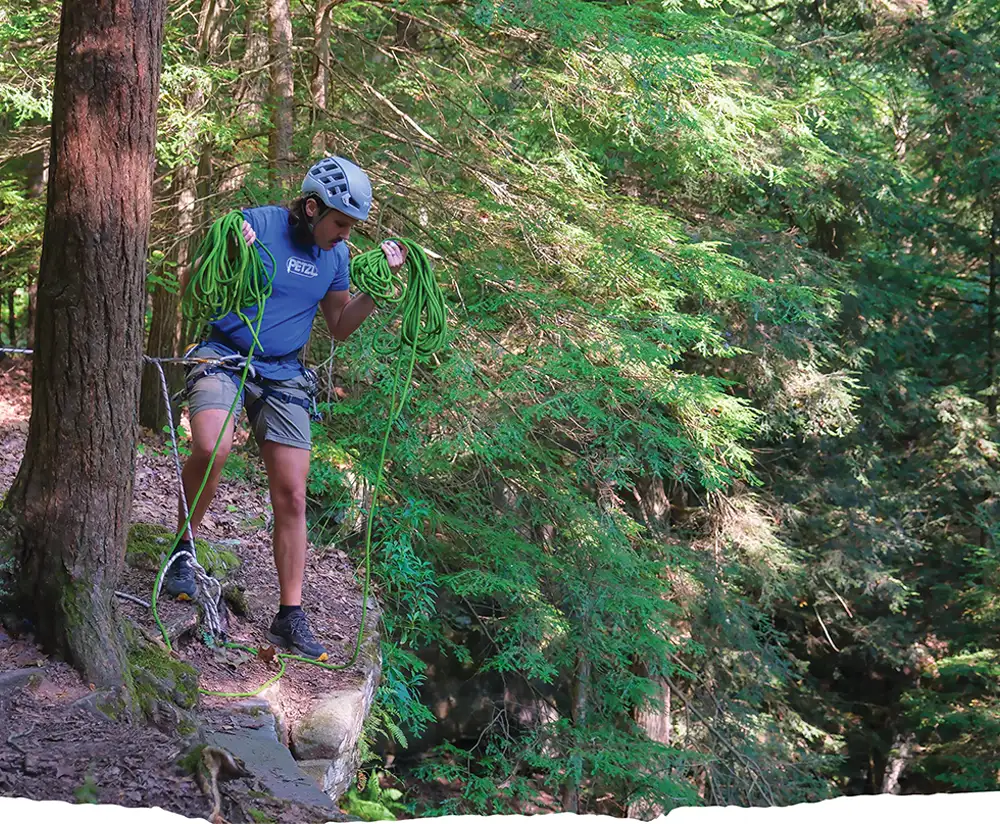
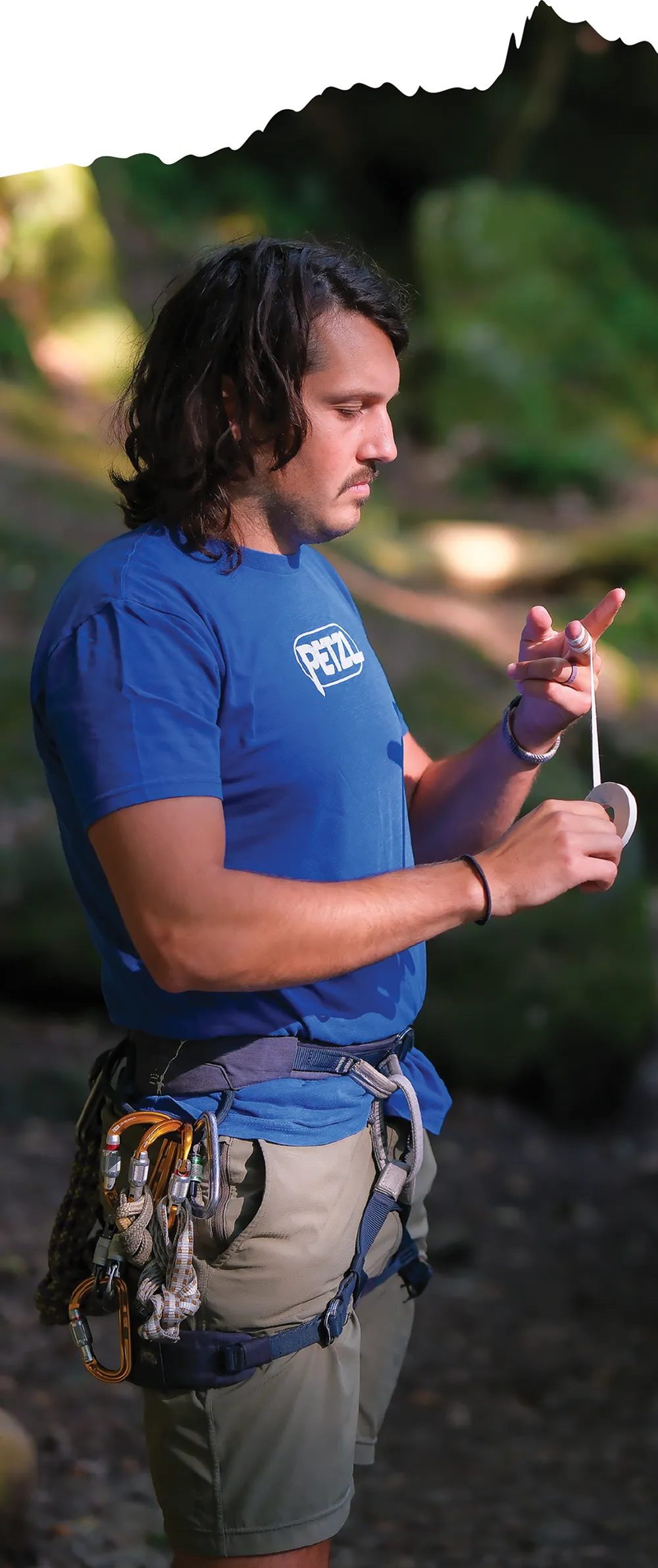
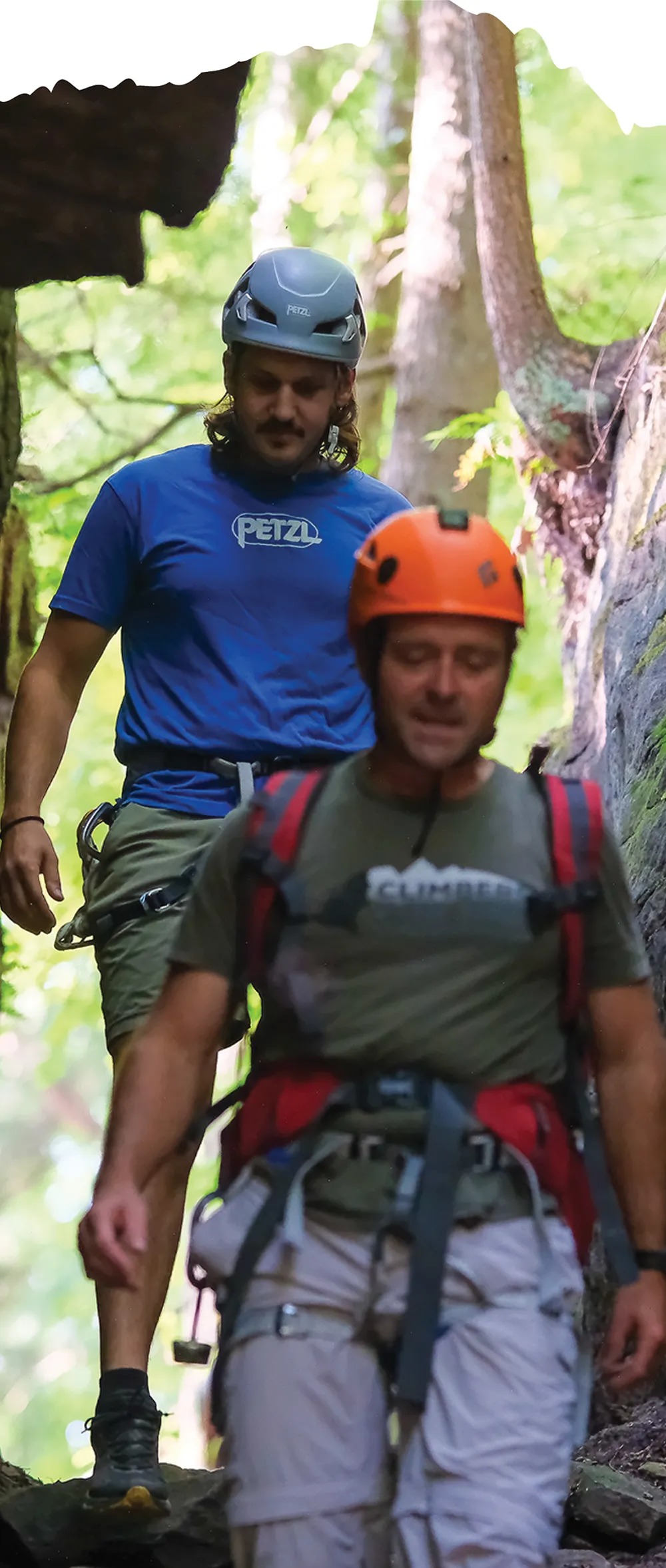
Davis is more than a rock climber turned bat enthusiast. Before attending graduate school in Colorado, he grew up in Delaware, near the Chesapeake Bay, where he worked as a U.S. Coast Guard licensed boat captain in the fields of environmental and adventure education. His doctoral work involved place-based educational strategies for communicating climate change in America’s National Parks and National Wildlife Refuges, and he specializes in environmental communication and studying people’s perceptions of climate change.
“My involvement with Climbers for Bat Conservation marries of all of my passions into one,” Davis said. “There’s the research angle and learning about bats, there’s the conservation piece and how we can protect sensitive species, and then there’s my passion for climbing and outdoor recreation. This provides opportunities for me to climb and work with climbers, which is really fun. Finally, there’s the academic piece. I love getting students involved.”
Davis joined the SRU faculty in 2016 and teaches courses in ecology and environmental education. In 2022, he received SRU’s President’s Award for Excellence in Teaching. He has mentored several graduate students, either as research assistants or those who have gotten involved with CBC. Alex Witmer does both.
“It’s great having Dr. Davis as my adviser,” said Witmer, a graduate student majoring in environmental education. “I get to combine outdoor technical skills with the scientific experience for a real-world application of those two areas.”
Davis and CBC already have their sights set on growing their organization further west and throughout the National Parks System. He’ll be speaking at the Cliff Ecology Conference at Yosemite National Park later this year.
“We’ve been working with national parks and our goal is to become the face of the social science initiative for finding bats in these different areas, rather than having each park or local climbing organization gather their reports,” Davis said. “We want to be the central hub and people seem to be on board with that. We’ve also talked about having our organization not just be climbers for bat conservation, but climbers for conservation and helping preserve other plants and wildlife.”
In true superhero fashion, Davis has helped harness the powers of others for good.
“There’s a lot out there that climbers have access to that other ecologists don’t,” Davis said. “We’re helping make a difference.”
Cooler Head Prevails

McClain tried a technique called “cold capping” to minimize hair loss during her chemo treatments. This involves wearing a cap filled with a sub-zero degree gel that cools and protects hair follicles from the effects on chemo.
“I was diagnosed a couple weeks after I turned 40 and it was a whirlwind of things, especially with three young kids – it was a lot,” McClain said. “I just wanted things to look normal and keep a sense of normalcy.”
Cold capping wasn’t easy, nor was there certainty that it would even work, but to McClain it was worth trying. She kept her hair. Now, the 2005 Slippery Rock University graduate and school teacher is a cold capping advocate who is writing children’s books to help families understand, endure and, in some ways, normalize the perils of a mother who is battling cancer.
Normal Life
“Going to SRU helped me broaden my horizons with great field placements,” McClain said. “I did a couple placements that diversified my background in city schools and especially in Vegas with a low socioeconomic school district. I loved it because I got to serve in that kind of community, which was very rewarding, but it also helped prepare me by pushing me out of my comfort zone with different experiences.”
While in Las Vegas she got a call from a principal in Florida.
“He said, ‘Oh, I see you’re from Slippery Rock; if you fly out for an interview, I’ll guarantee you a job,’” said McClain, whose first job was an elementary special education teacher in the Palm Beach County School District. “SRU is a well-known teaching college, even down there.”
At the time, teaching positions were harder to come by in western Pennsylvania than they are now, so the decision made sense and being near the beach didn’t hurt. Even better, she connected with one of her former high school classmates, Matthew, who was working in Jupiter, Florida, and the couple married before moving back to their hometown in 2008.
McClain worked seven years for the Allegheny Intermediate Unit teaching English as a second language and special education, during which she and her husband started raising a family. In 2015, McClain landed a job in her home district, Seneca Valley Schools, first as an elementary cyber teacher and then a TESOL position at Haine Elementary School.
Life was idyllic for McClain: teaching in her hometown, living in nearby Zelienople and taking three boys to sports practices. Once her youngest reached kindergarten, and McClain her milestone birthday, then came the unsettling news that she had breast cancer.
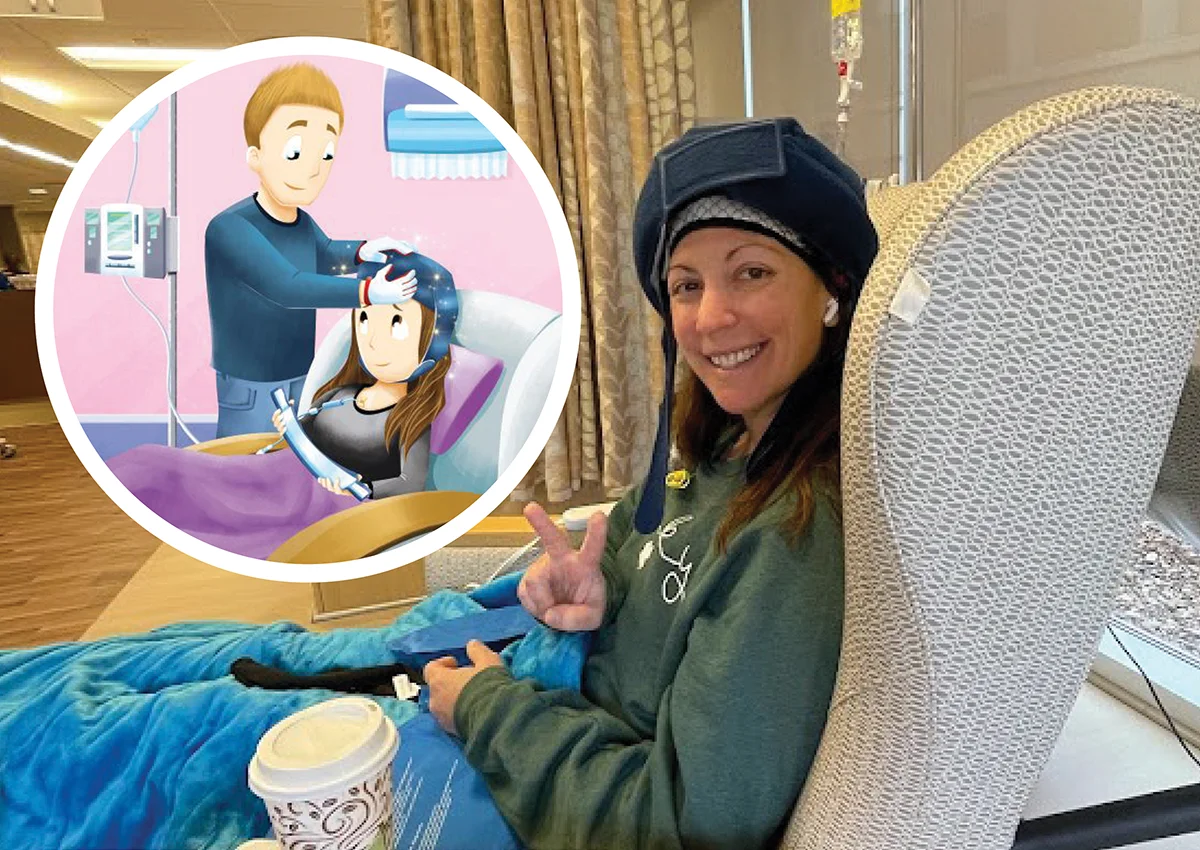
Disrupted by Cancer
“All the waiting put a damper on the holiday season,” McClain recalled. “I knew I had something, but I didn’t know what kind of cancer I had. Once I found out, I was actually relieved because then I knew there was a possibility that it would be curable.”
Her oncologist, Sarah Miller from Allegheny Health Network, told her it was Stage 2 cancer. That was Jan. 3, 2023. Two weeks later she had a mastectomy, during which Miller would determine if any of the cancer had spread.
“Sure enough, during surgery, one lymph node had spread and being younger, the cancer is usually more aggressive, and they just take more precaution,” McClain said. “After I woke up from surgery, I could just tell by the look on my husband’s face. It was not the news that I wanted to hear because that meant chemo and radiation. After that, everything moved so fast.”
McClain underwent chemotherapy once every three weeks from February to April, which was followed by a month of radiation treatment in June.
Cold Call
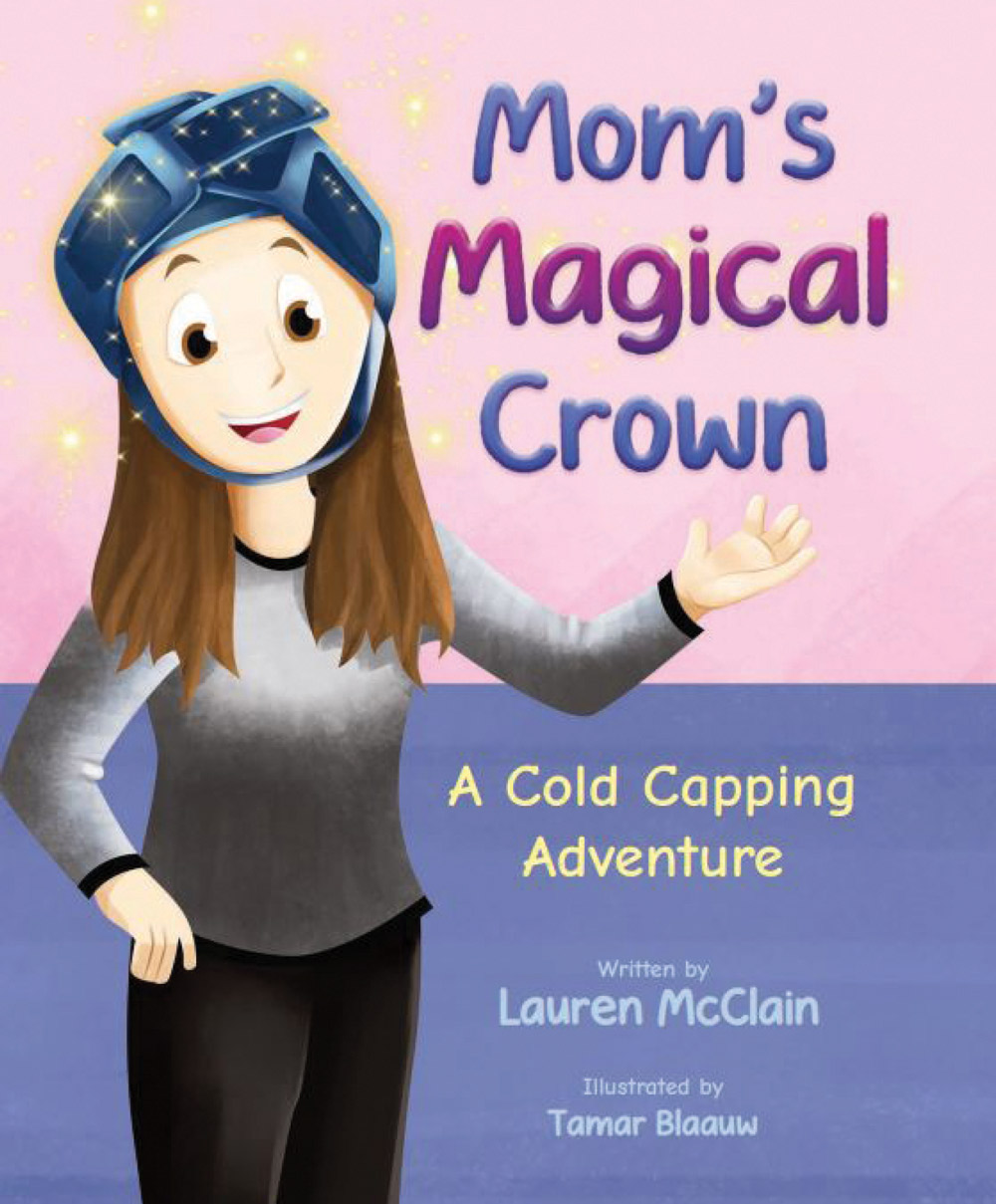
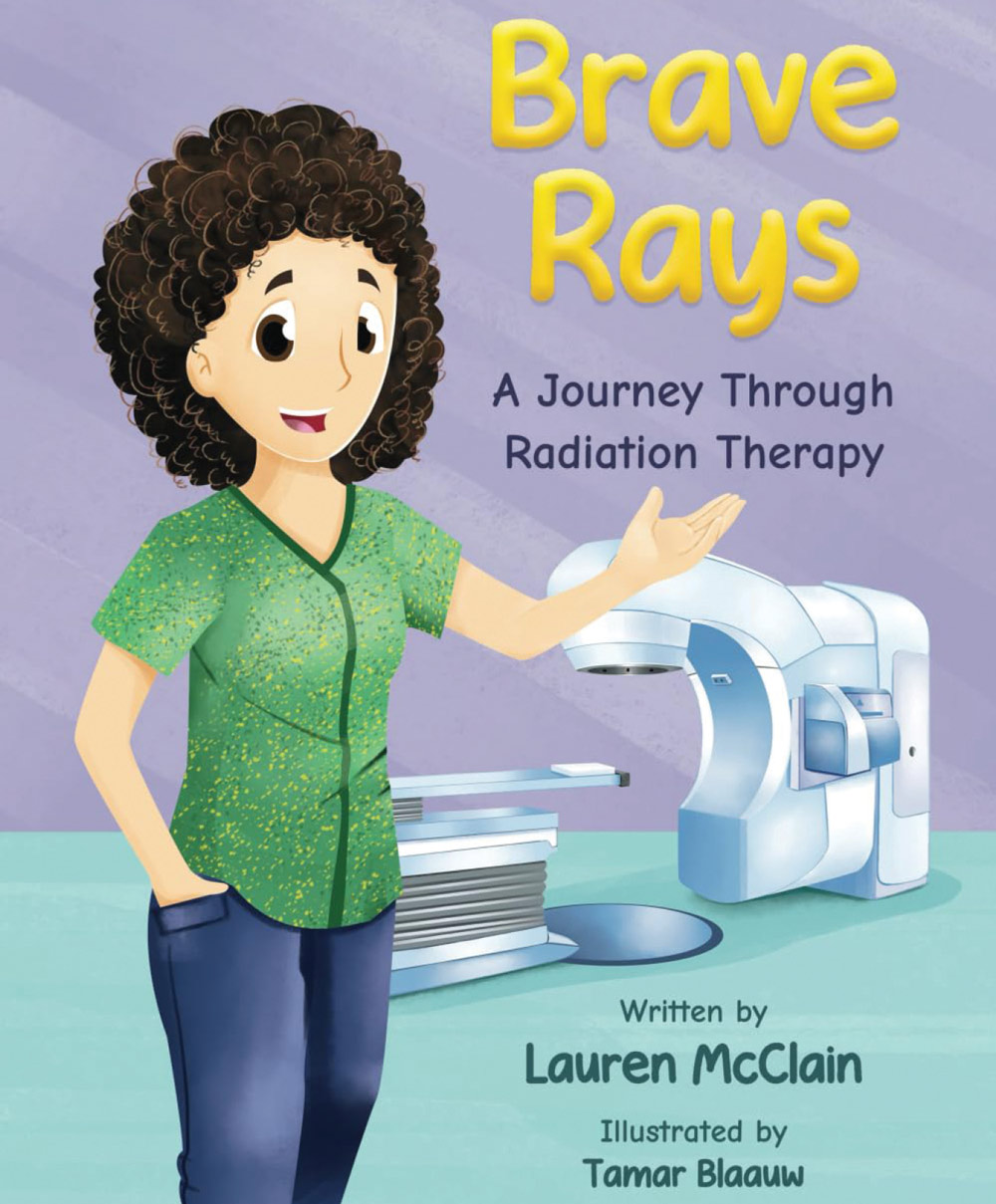
“I was down a lot of Google rabbit holes late at night, which I should not have been, but I saw this woman’s Tiktok and Instagram account and she was cold-capping,” McClain said. “She was a little bit younger than I was and I just watched all of her videos and I was like, ‘Wow, she’s almost done with treatment and she still has all of her hair.’ Then when I went in for my next oncology appointment, and my doctor had mentioned it as well and I said, ‘You know, it’s worth a try.’ If anything, it’ll preserve my hair follicles and I won’t have permanent alopecia because that can happen to some women with the type of chemo (I was going to start).”
According to her oncologist, 60% of cold-capping patients retain at least half of their hair, but 40% lose more than 50 percent of their hair. So it’s not foolproof. But it’s also not covered by health insurance, nor easy to do.
With the help from her husband applying the cap and checking it with a thermometer, McClain wore a cold cap from an hour before her chemo and for the remainder of the day, changing the cap every 25 minutes to maintain a temperature around minus-35 degrees Fahrenheit.
“It’s pretty torturous,” McClain said. “The first three were the worst, but then your head just goes numb after that. I was asking myself, ‘Why am I doing this?’ throughout, but in the end, for my mental health, it was 100% worth it. It even distracted me a little bit from what was going on with the effects of chemo because I had a goal of trying to save my hair.”
Crowning Achievement
“After you’re diagnoses with cancer, you’re just thrown so much information, folders upon folders of stuff. It’s a lot to digest,” McClain said. “My goal was just to make something a little bit easier for a mom and a woman going through it.”
When she was seeking materials to give to her children, she discovered that the resources were outdated and only focused on explaining why a mother is bald or has to wear a wig.
“When I was on a walk the one day I wondered if there’s anything out there that is about chemo and cold capping, so I did a Google search,” McClain said. “There was not one book about it, and I got to thinking, I think I can do this.”
McClain began the process of writing a children’s book about a mother who was cold capping. She got her thoughts together and wrote her story, with a little fictionalization, and eventually found an illustrator online through a freelance services website. By January of 2024, McClain was a self-published author of the book, “Mom’s Magical Crown.”
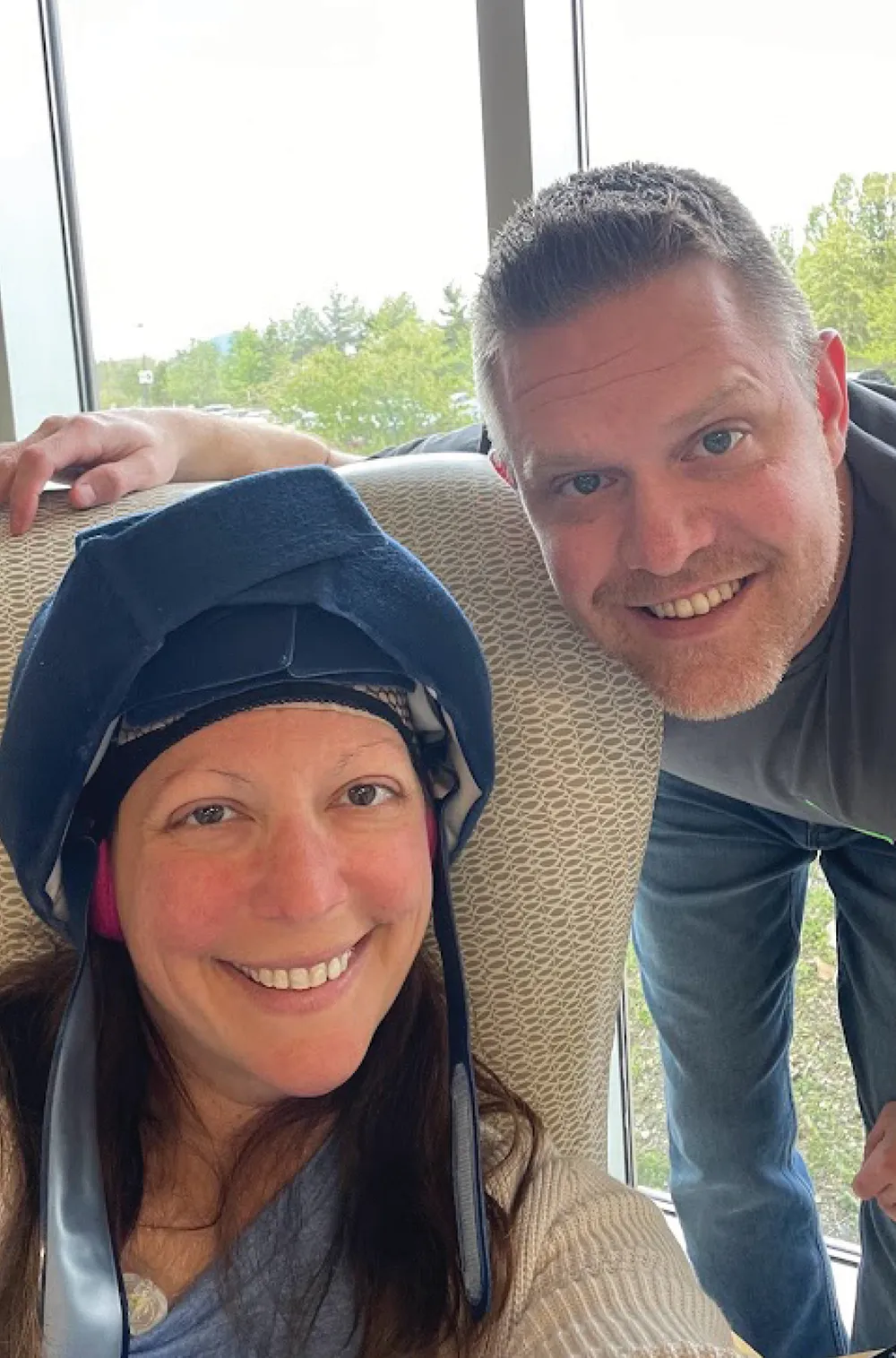
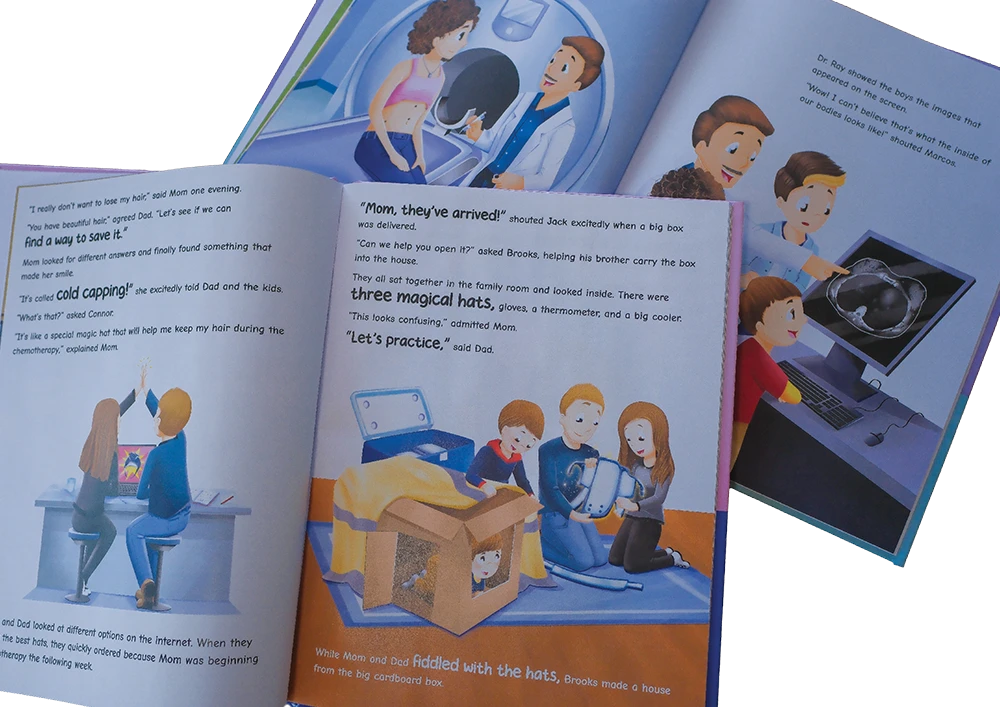

In addition to selling hundreds of copies of her book, McClain partnered with two foundations that provide money for women who can’t afford to cold cap. Additionally, an executive from Penguin Cold Caps, the product that she used, reached out and they started to include her book in cold caps for women in Canada.
“After I finished that book, I got the hang of it and figured this is kind of fun,” McClain said. “So I wrote one about radiation.”
“Brave Rays” is now available and coming soon is a third book about surgeries. She also wants to create a foundation that assists women in western Pennsylvania with funds to benefit from cold capping, which can cost $300 per chemotherapy treatment.
“This has been a very purposeful side gig which has drawn my attention away from the struggles I had,” McClain said.
And despite continuing to take preventive medications, McClain has all but closed the book on her fight with cancer.
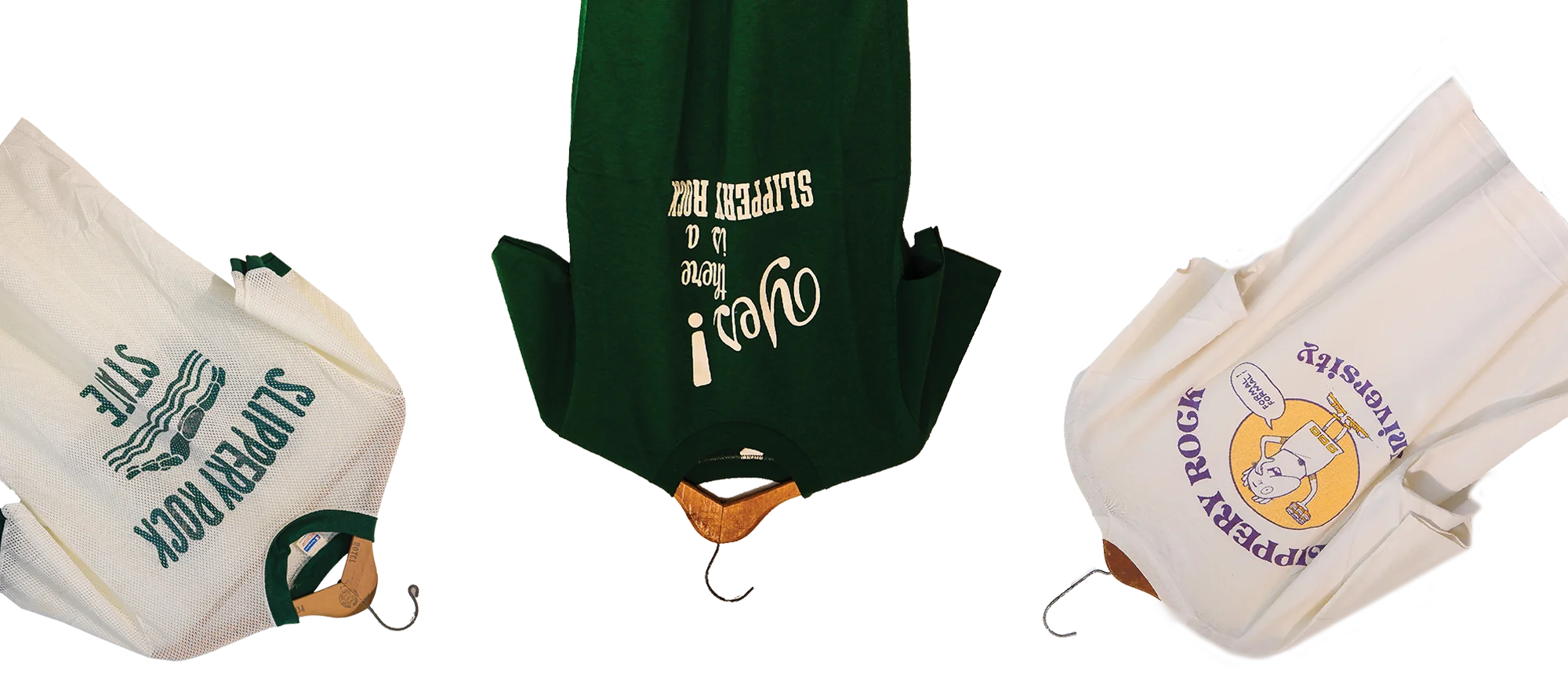
Common Thread


But Fry graduated in 2023, not long after taking up a hobby as a vintage clothing collector, and he has developed an appreciation for SRU apparel from bygone eras.
“It started when I decided to come to Slippery Rock and I needed some stuff to wear to class, and then it slowly turned into an obsession with the history of the university with clothing,” said Fry, a Pittsburgh native who earned his degree in finance. “I just kept going down the rabbit hole and I haven’t really come back.”
As a vintage clothing collector, Fry is most interested in Western and work wear, such as denim jeans and jackets, but when it comes to SRU items, the object of his affection is “cage gear.” This term refers to clothing issued by a school’s athletic or physical education department for classes, practices and other activities before it is returned and secured in the equipment room, often known as the cage.
As a former teachers college whose academic focus –– as determined by the state and by reputation –– was health and physical education, SRU produced a lot of cage gear for its students. After all, that’s what most of them wore to class, and some of them didn’t return the clothing and were forced to pay a nominal fee. To them it was like purchasing quality Slippery Rock gear at a discount.
Karen Perry, ’79, ’80M, was a distance runner in the late 1970s who needed a heavy sweatshirt for the winter, so Millie Haag, the equipment manager, issued her a double-layered hoodie from the cage dated 1962. Even back then, people would say, “They don’t make ’em like this anymore.”
Once she wore the gray sweatshirt, with SLIPPERY ROCK STATE green lettered arched over an “M” for medium, Perry knew she would just pay the $5 to keep it at the end of the semester.
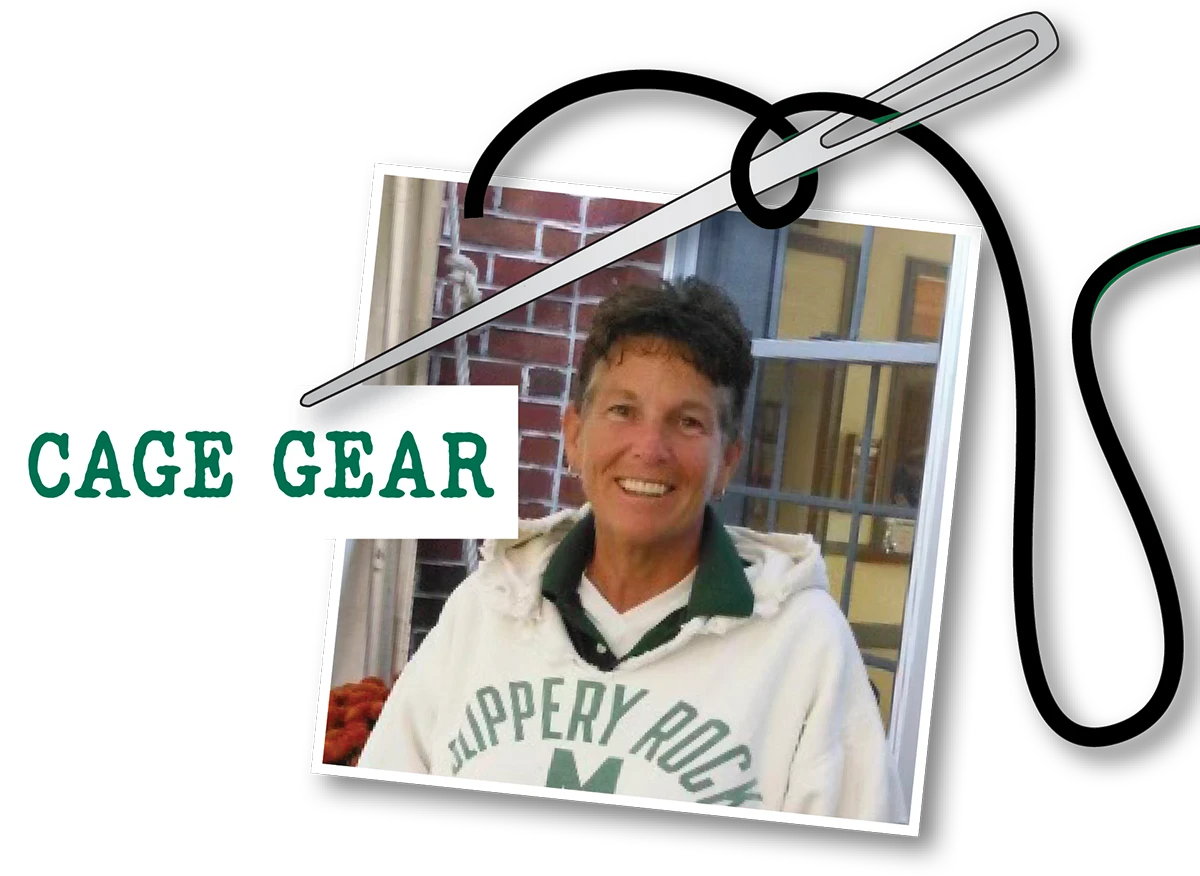
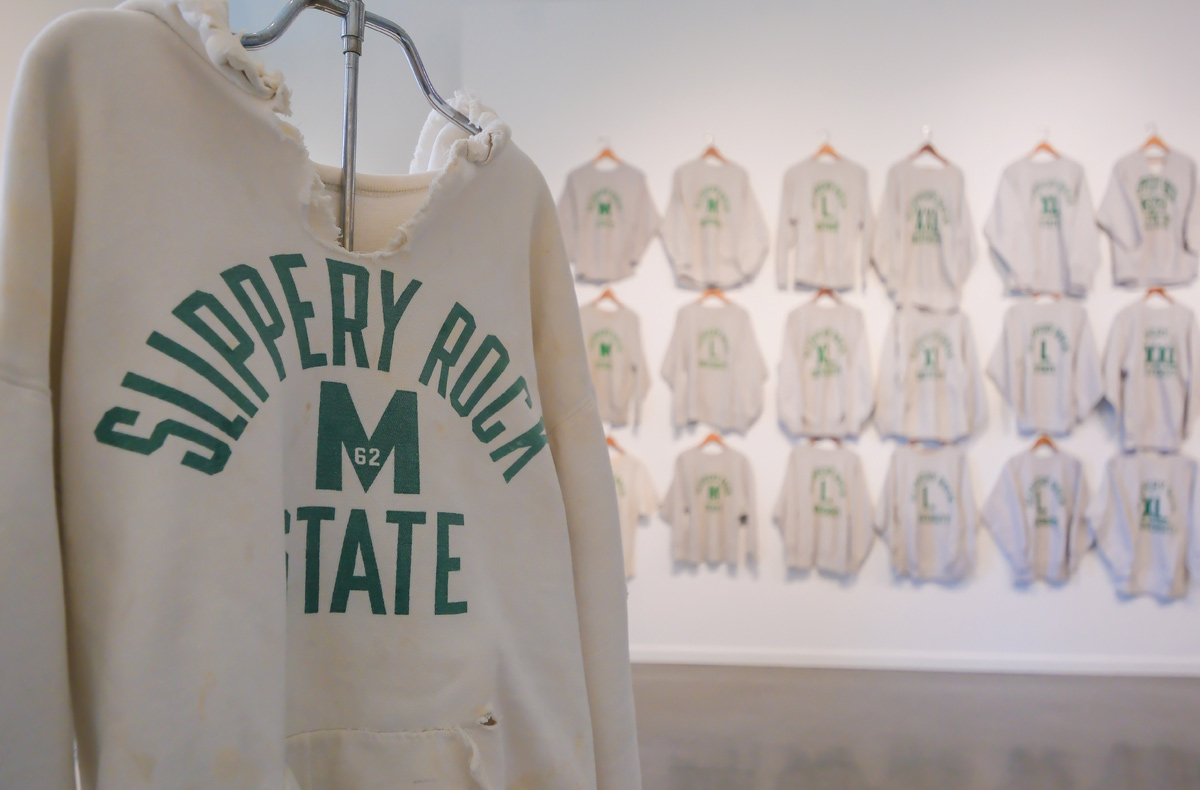
Fry happened to be planning a display of his vintage SRU clothing for the University’s Alumni Weekend, June 7-8, when someone suggested that he reach out to Perry.
“I took a couple of pictures of what I had and I sent him the sweatshirt, and he just about crawled through the phone wanting to meet me and see it in person,” Perry said. “I knew it was something I valued, but I didn’t know to what extent collectors would like it. He’s very passionate and very knowledgeable about the vintage clothing.”
Perry loaned Fry the 1962 cage sweatshirt that became the centerpiece of the collection that was on display in the Martha Gault Art Gallery during Alumni Weekend.
“For me, it was the holy grail,” Fry said. “This one’s interesting because it’s very thick and the ribbing for the neck is still there. It was made as a crewneck and the company put a hood and pocket on it. Every brand had a different design for the hoodie. This is a Champion, which is one of the first companies to make the cotton sweatshirt, and this Champion hoodie, this style specifically, is something that’s very desirable to a lot of collectors.”
Perry’s sweatshirt was one of more than 30 gray cage sweatshirts at Fry’s exhibit, ranging from 1962 to the early ’80s, but there were other relics of SRU’s past, depicting defunct names (Slippery Rock State College) or logos and mascots (the original Rocky the Rock). There were also motifs and cultural depictions on shirts promoting events, such as co-licensed shirts with cartoon characters like Ziggy or The Flintstones, or a homecoming shirt with a Grateful Dead theme.
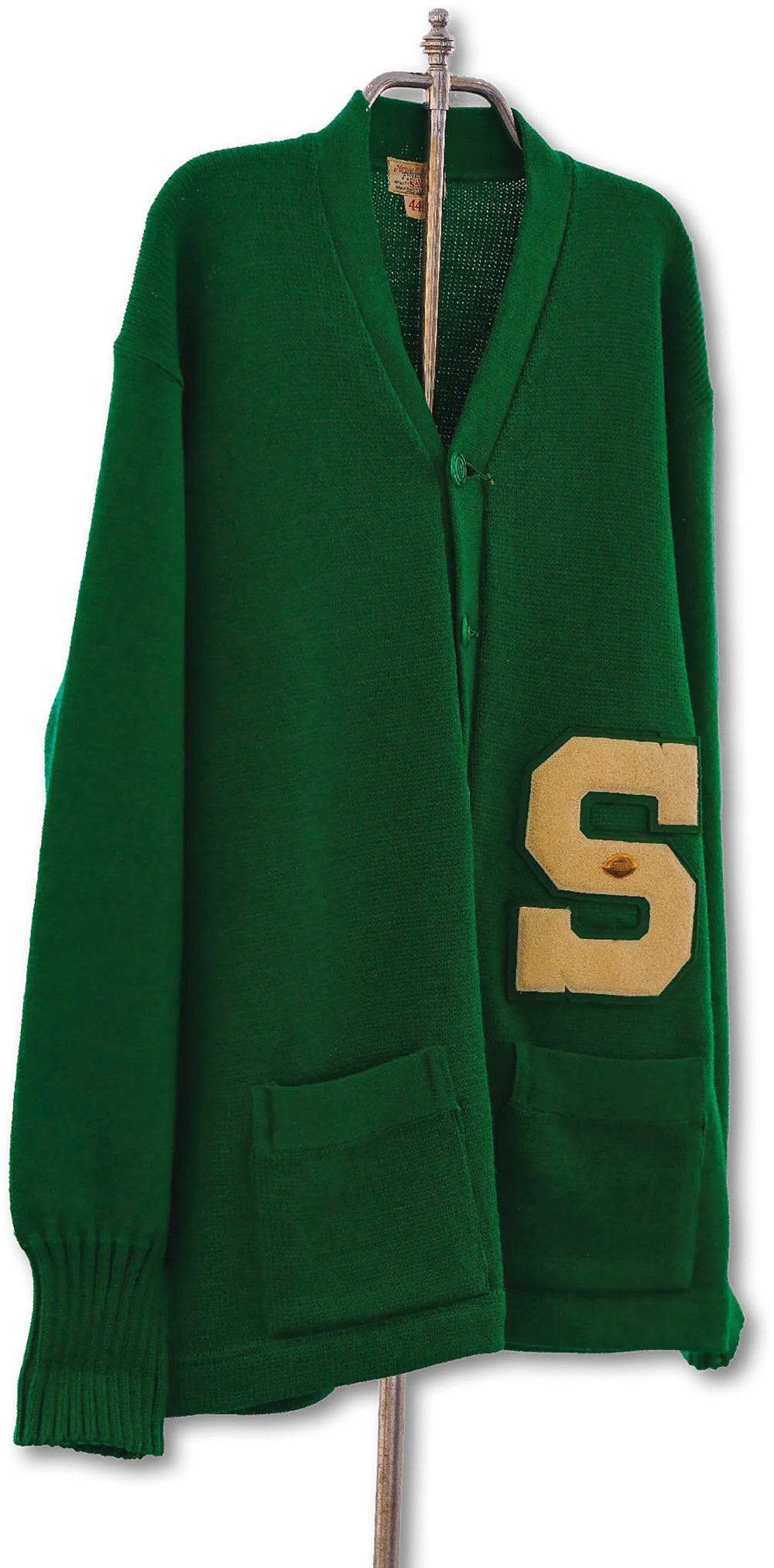


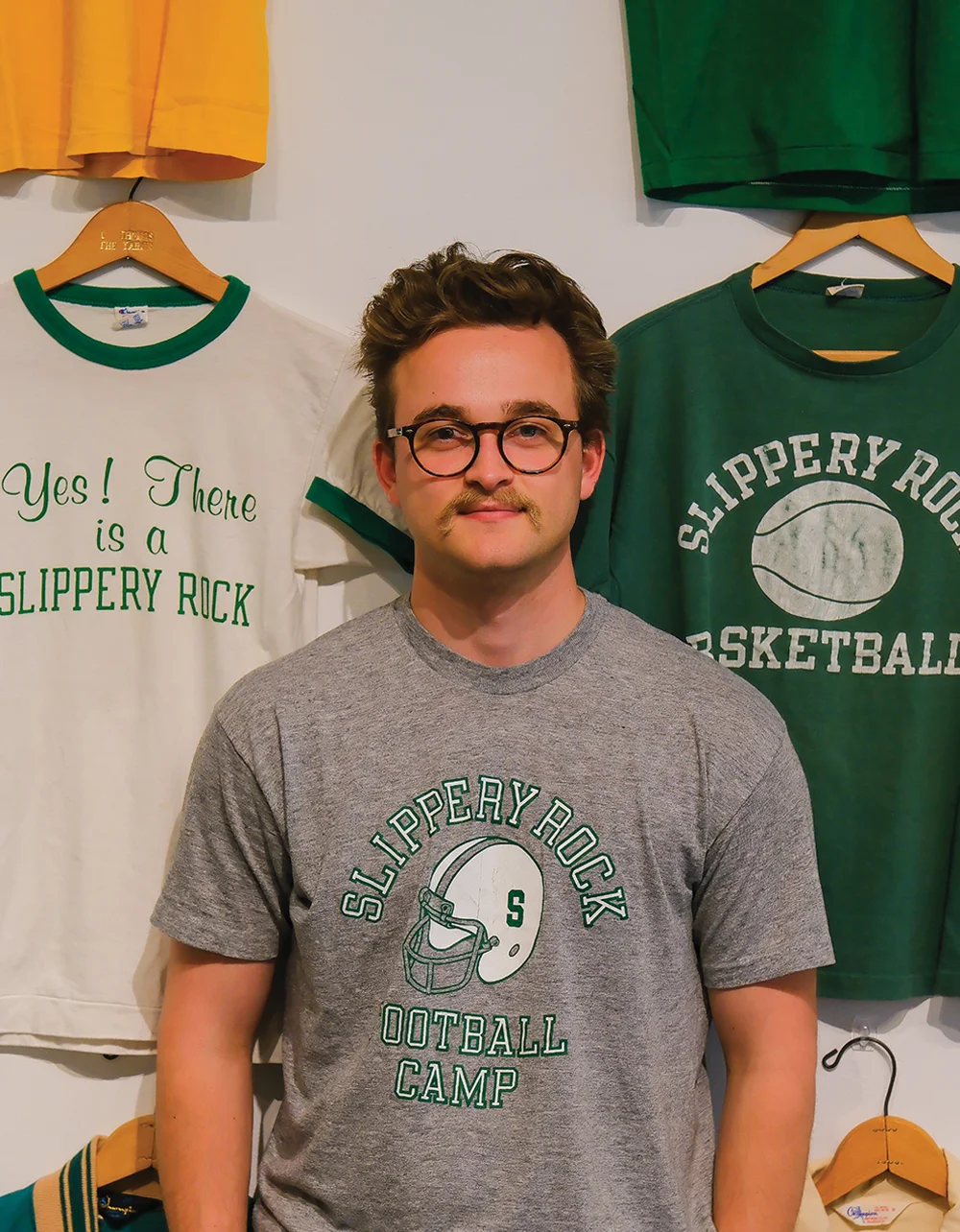

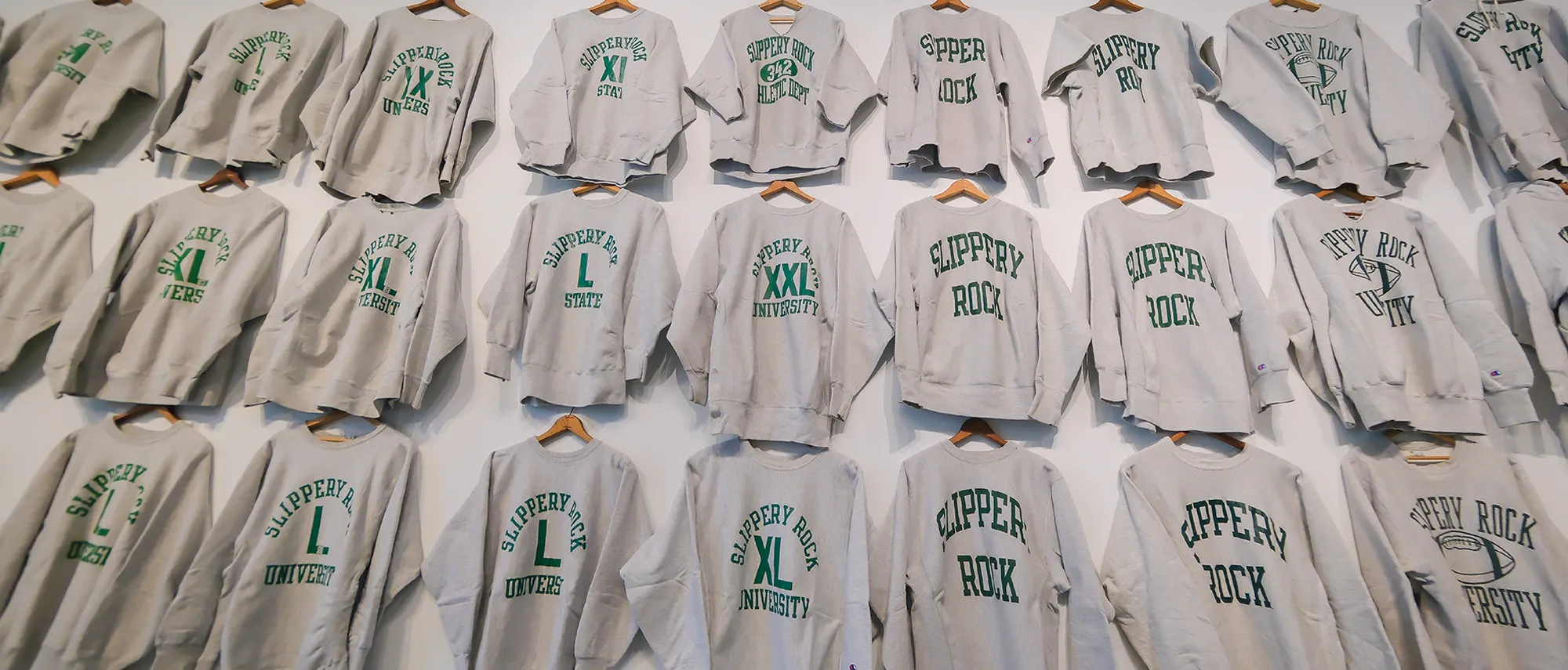


The Slippery Rock name also carries some cachet because it is so peculiar.
“Ever since the ’70s, people have been buying Slippery Rock stuff –– even people overseas –– purely because it’s a goofy name that stands out,” Fry said. “I’ve heard stories about people going on spring break in the ’80s and they took their Slippery Rock stuff to sell to the locals or trade for free beer or whatever you had to do back then. There’s just a really cool history through clothing.”
Fry said that most of his vintage SRU clothing has been sourced through other collectors, not thrift stores or other alumni. Like Perry, most alumni hold on to their SRU gear as keepsakes.
“If you try going to a thrift store or asking alumni, I wish you all the best,” Fry said. “Collecting these takes a lot of time, perseverance and patience to find the right opportunity.”
And money. Although he operates a small online business named “Frys Vintage,” Fry does not sell his SRU clothing. He’ll trade items or use money he makes from other sells to add to his Slippery Rock collection. Some of the cage gear can go for hundreds of dollars on the open market but he’ll often swap with other collectors.
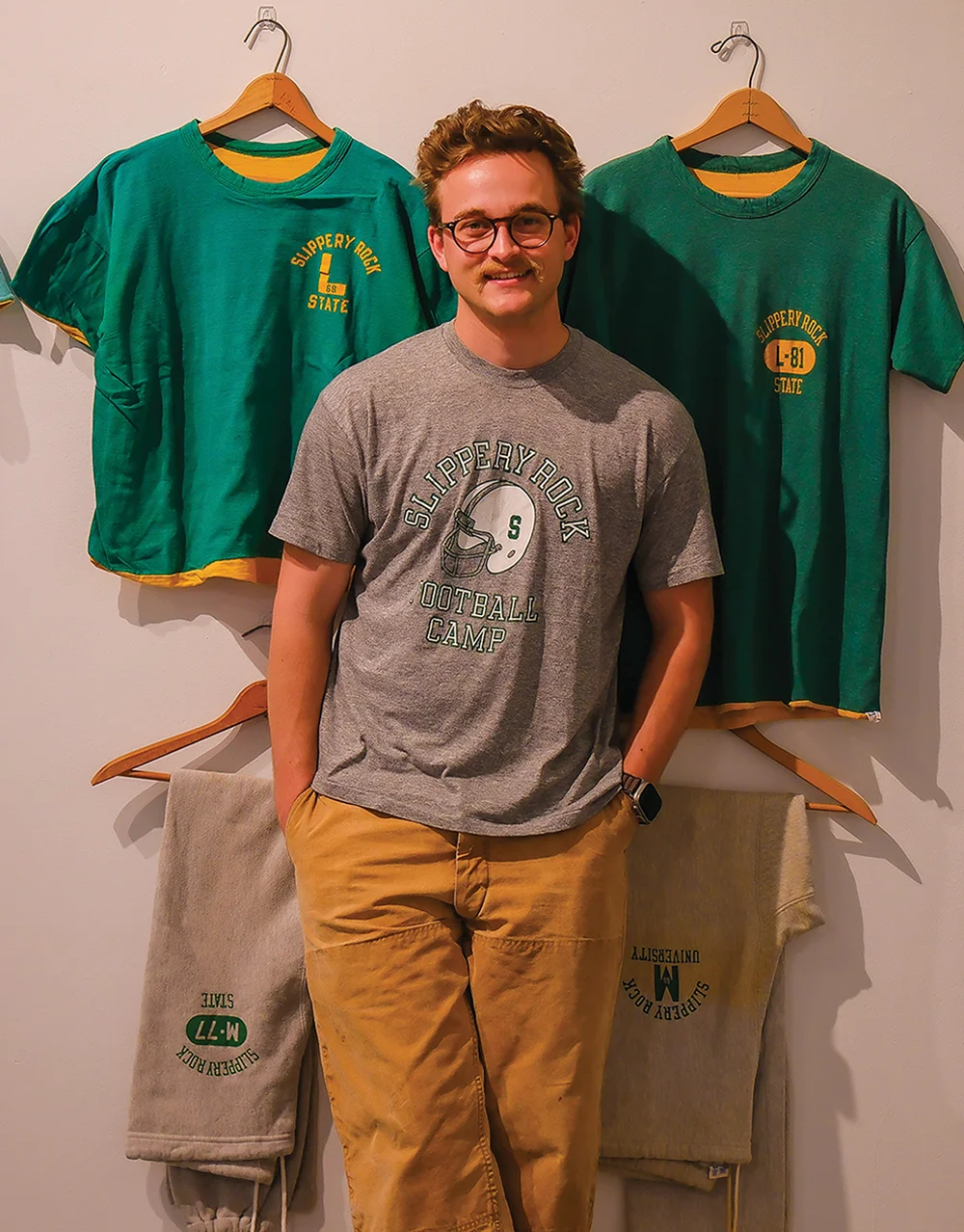
“I call it a ‘jobby;’ it’s a job and a hobby,” said Fry, whose day job is a client management associate for CAPTRUST financial advisers. “Some people will look at the stuff I have and think it’s gross or grimy and weird that I’m collecting someone else’s clothes. But people like old cars or old houses or antiques. It’s the same thing with clothes. Clothes are not made the same as they used to be.”
Fry appreciates the function over form when it comes to clothing, whether it’s a pair of carpenter’s pants with a pocket for holding a certain tool, or having the sizes and years on cage gear.
“There are a lot of stories to be told through clothing,” Fry said. “Most people don’t think about it. They think, it’s just a sweatshirt, but there’s a lot that goes into it, from how it was made or who wore it. If you wore something for a long time or while you were in college, that’s part of your identity.”
As a young alumnus who is collecting old clothing, Fry is the curator of a collection that quite literally serves as a common thread between people within the SRU community.
“Clothing is a cool way of capturing culture over time,” Fry said. “I’m preserving it to make sure it gets to the next generation.”



Teaching Protégés
Stello applied and was accepted into the College of Education’s Professor Protégé program before being matched with a faculty mentor, Christine Walsh, professor of curriculum, instruction and education leadership.
This mentorship, however, goes beyond the basic aspects of navigating the academic and social challenges of college life. The protégés earn up to $800 by working with the faculty member on a designated project, whether it’s research or service in the community.
Stello worked with the local chapter of the Keystone State Literacy Association, a community of education professionals who promote literacy and literacy education in Pennsylvania.
“Being a protégé helped me get involved early on and make connections, not just with a professor but with other students and even professionals out in the field,” said Stello, a junior early childhood/special education major from Punxsutawney. “Thanks to the supportive culture I found at SRU, I developed my communication skills, met teachers and reading specialists at local schools, and I was able to gain a lot of insight about campus, my major and the importance of literacy.”
Stello helped organize and promote events in the community and at local schools in Butler, Lawrence and Mercer counties related to literacy, including a book drive that generated more than 100 books for classrooms at West Hill Elementary in the Sharon City School District. She also helped develop resources for parents so that they can read with the children.
“The Professor Protégé program is a great example of how SRU supports our students and provides them opportunities to thrive beginning in their first year,” said Sararose Lynch, associate professor of special education and the Professor Protégé program director. “It’s a great way from them to realize that they belong here on campus and in the teaching profession, and it furthers our culture of faculty-student engagement.”
More than a dozen protégé are enrolled each year and, in addition to their wages, students are provided other incentives such as travel to conferences to present research and professional development funding.
“This program made my experience at SRU very welcoming, and I was able to build connections before I even arrived on campus,” Stello said. “I continue to benefit from it beyond my first year.”
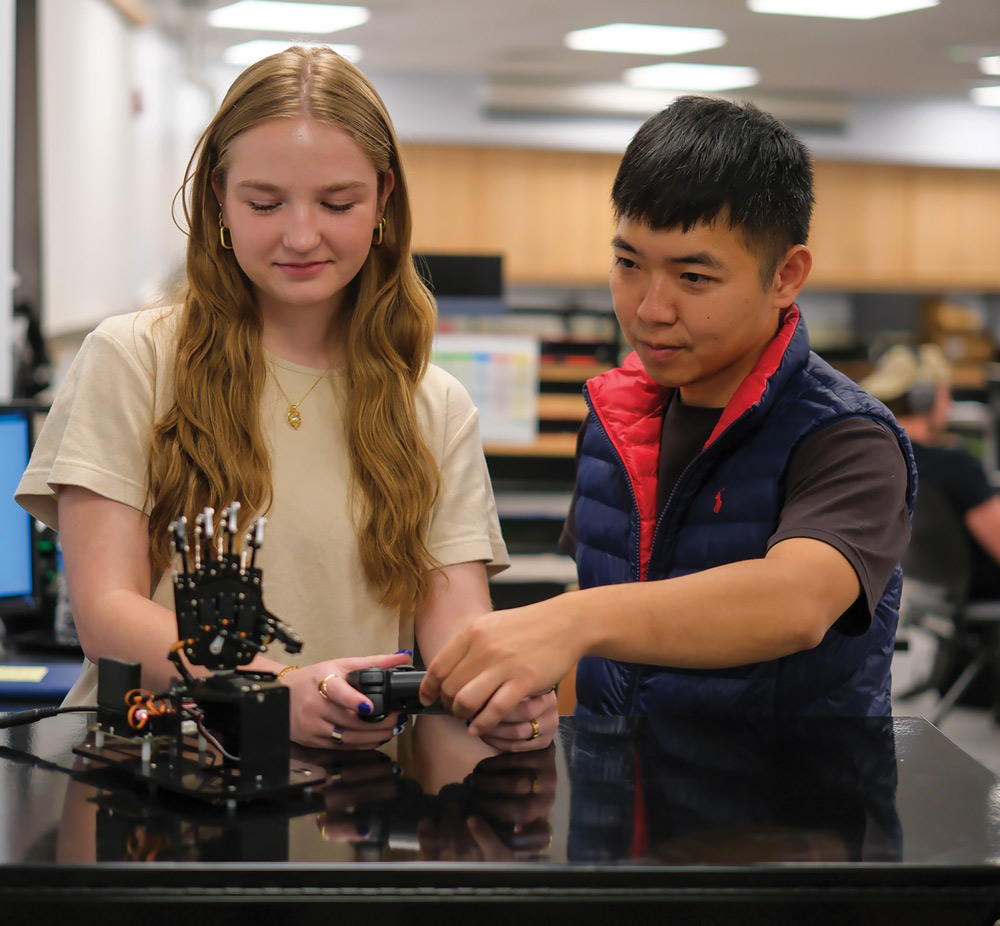


Engineering Research
Janey Parks, a sophomore mechanical engineering major from New Brighton, started working as a research assistant for Jheng-Wun Su in SRU’s Engineering Department in the summer after her first year through SRU’s Summer Collaborative Research Experience (SCoRE) grant program. Parks was paid to work four days a week on a project to find ways to improve upon the wearable sensors that respond to touch and capture motion. She learned concepts and used lab equipment, including 3-D printers and a laser engraver, even before they would normally be introduced in classes.
“Research opportunities like this are very beneficial for me because it has helped me become a well-rounded student and to think more critically about possible errors that could arise,” Parks said. “This will be a helpful strength as an engineer in the future.”
SRU has six engineering laboratories including three “flex” labs where students get hands-on experiences in the same spaces where class lectures and group discussions occur. This is part of a more cost-effective and innovative approach, where modular equipment is easily reconfigured to meet teaching needs for experiments, demonstrations, testing, analysis and many other opportunities for applied learning.
Parks performed summer research in SRU’s Advanced Manufacturing Lab in the Vincent Science Center in the same space where she started working in the fall semester on a separate project using several of the 20 3D printers in the lab.
She explored the potential of using of biodegradable materials, such as used coffee grounds, as filament for the 3D printers in what could be a sustainable technique used in the additive manufacturing industry. This included testing various parameters such as temperature, flow rate and nozzle diameter.
“Research activities like this, instead of relying only on classroom lectures, can make any student grow exponentially,” Parks said. “In my case, I am trying new things and growing my knowledge on a certain subject every single day. It gives students that extra push to grow their knowledge and understand something more deeply.”
And the application of the knowledge in the lab is easier to embrace than theories.
“Working so close to the department by conducting research makes me feel much less intimidated by the engineering field,” Parks added.
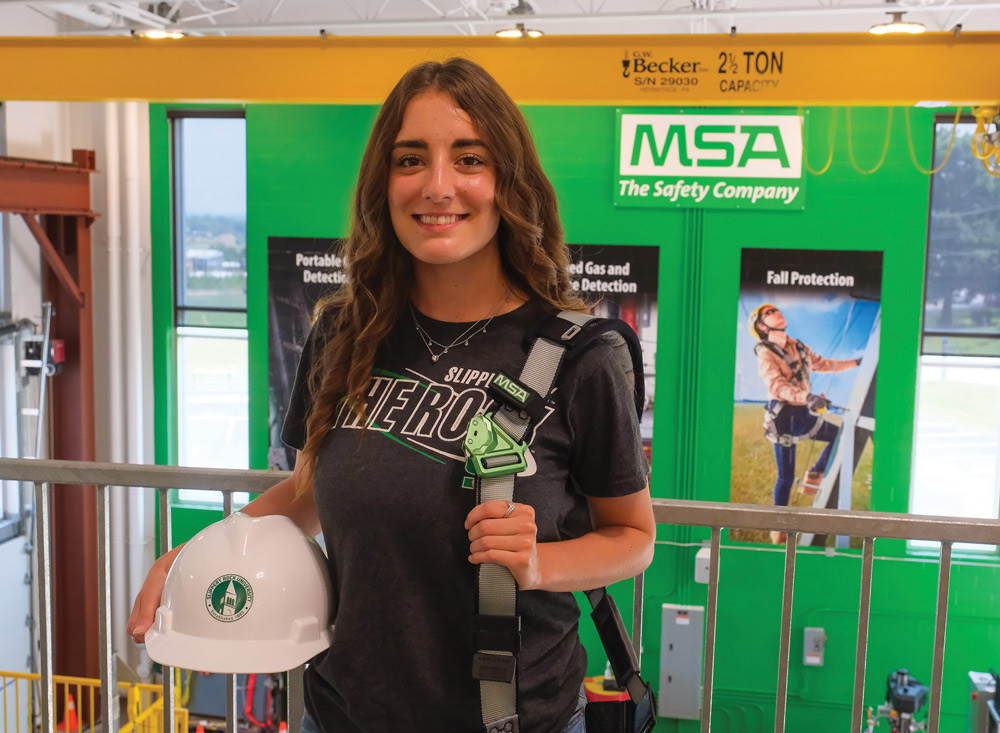


Safety-First Choice
MSA is one of several companies that sees SRU as a first choice for partnering. They’ve donated equipment, offered training, funded professional development opportunities and provided other resources to SRU, along with having their name on the high bay construction lab in the Strain Safety Building.
When Wilkinson started her internship in the safety department at Vesuvius Penn, a local manufacturer for the steel industry, she was already trained on MSA products that her company uses.
“I’m a hands-on learner and using this equipment set me up to be successful in my internship,” Wilkinson said. “Everything that I used in the lab at SRU we use at Vesuvius Penn, from the cranes and the forklifts, to having the confined space training.”
In her classes at SRU, Wilkinson used the MSA XTIRPA confined space entry and rescue system which is used to lower workers vertically into tanks, manholes and other confined spaces. The system alone is worth $13,000 and is part of the more than $450,000 that MSA has donated in the last decade.
“For more than 100 years, MSA Safety has been a company dedicated to one mission, and that’s helping to keep people safe at work,” said Becky Trimpey, director of global training and Americas services and solutions at MSA Safety. “By providing the SRU safety management program with equipment that students can use for experiencing real-life safety situations, we’re able to extend our mission by helping to train the next generation of safety professionals.”
SRU’s commitment to collaboration has expanded educational, learning and growth opportunities that benefited other industry partners. They include 70E Solutions, Falcon Power, Fire Fighter Sales & Service, Holder Construction, Kokosing Construction, New Pig and Rockford Systems, all which have naming rights for spaces in the Strain Safety Building, as well as more than 20 other companies that have donated everything from safety harnesses and lifts to computer software. Representatives from these companies regularly speak to SRU classes and provide training.
“These partnerships bring a lot of notoriety to SRU and our program,” said Joe Cali, professor of safety management and department chair. “We are recognized as one of the best safety programs in the country because our students benefit from us having top-notch instructors, a network of alumni working in the field and access to equipment and training. It’s a win-win for everyone involved.”
SRU students like Wilkinson see the benefits and are getting involved. Wilkinson was president of the SRU student chapter of the American Industrial Hygiene Association, and she pursued several trainings and certification outside of her course requirements.
“We have a great program at SRU that goes beyond gaining knowledge,” said Wilkinson, a native of Washington who will graduate after her internship is completed this fall. “Without all the connections I’ve made and the experience with the equipment, I would be lost.”
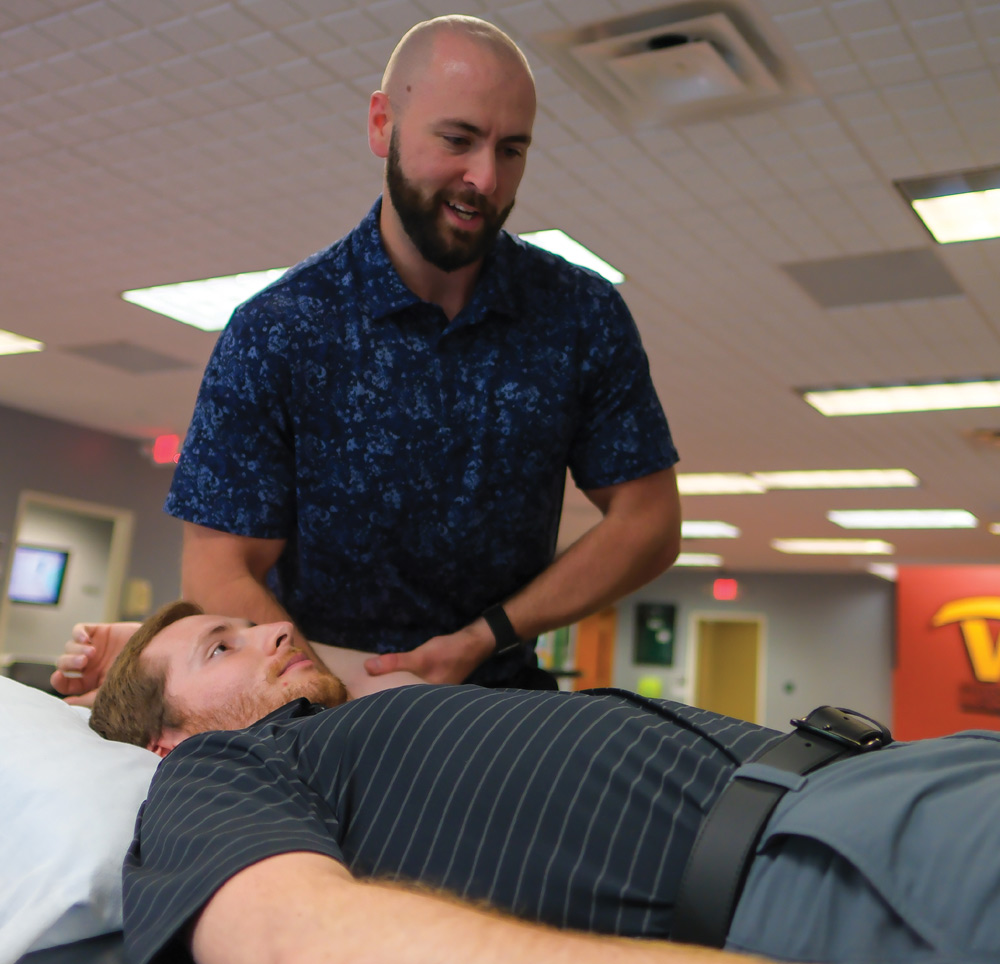


Clinical Support
Part of Slippery Rock University’s mission is to provide the highest quality education at the lowest possible price, but for fields like physical therapy that require intensive clinical work to meet the standards within an accredited program, weeks of unpaid internships present a challenge for students.
Jesse Phlegar, ’23, was fortunate. A native of nearby Beaver Falls, Phlegar earned his doctorate in physical therapy at SRU while completing his clinical education locally at AHN Grove City Medical Center and clinics near Slippery Rock.
“You have to be mindful of how much money you’re spending while you’re in school and go somewhere to be able to save money on living expenses,” said Phlegar, who is now a physical therapist at Wise Physical Therapy in Slippery Rock. “Sometimes having the highest quality clinical education and experience comes at an expense, because there are only so many clinics around Slippery Rock.”
A cohort of 50 students in SRU’s DPT program must complete 30 weeks of full-time clinical work in their third year. Some students are able to live at home, but others commute long distances to hospitals or clinics and some temporarily relocate out of state for clinical opportunities in a variety of areas of practice, including pediatrics, sports, concussion, pelvic health and geriatrics.
Recognizing the financial challenge for students, the SRU Foundation and the Physical Therapy Program are raising funds to support DPT students through a new scholarship established in memory of an alumnus, the Dr. Michael J. Sharr ’82 Clinical Education Support Fund. Sharr founded a physical therapy clinic in Mercer in 2004 and was also a temporary instructor at SRU. He served as a clinical instructor and mentored physical therapy students throughout his career. When he passed away in 2023, his family created a memory fund to support SRU students.
Thanks to an initial donation of $2,137, the annually supported scholarship will provide money for students on their clinical rotations. The first scholarship will be awarded in 2025 through a selection committee of physical therapy professors.
“Mike wanted to give back to his profession and support students entering the field,” said Meg Michaels, SRU associate professor of physical therapy. “This is an important fund to support because it provides a gateway into the profession for our students. It helps give students more opportunities to explore optimal clinical sites and focus on their internship without having the stresses of working part-time jobs or taking on more debt to enhance their career. It moves them onto a great path forward.”
To learn more about supporting the Sharr Fund or donating to the University, contact University Advancement at 724.738.2004, email advancement@sru.edu, or click here.
Investment in Culture


Both 1986 SRU graduates with degrees in business administration, Joe and Pam Finney met when Pam pledged the Alpha Kappa Psi business fraternity and requested to have Joe as her “big brother,” which was common for existing members to mentor new participants. They have been together ever since.
Joe was already sharing his knowledge and experience with classmates like Pam then, but it wasn’t until after he started his career and the couple was married before the Finneys realized how important college is for emerging professionals. Joe accumulated more than 35 years of experience as a business executive, growing service-oriented companies by building exceptional
work cultures.
He is currently the CEO of T3 Services Group, a home services company that owns and operates numerous residential HVAC, plumbing and electrical brands throughout the United States. Joe’s mission is to scale this innovative home services platform through strategic mergers, acquisitions and organic growth. The vision Joe has established for his team is to become the nation’s example of how to transform the home services industry, while building a vibrant and high-performing culture.
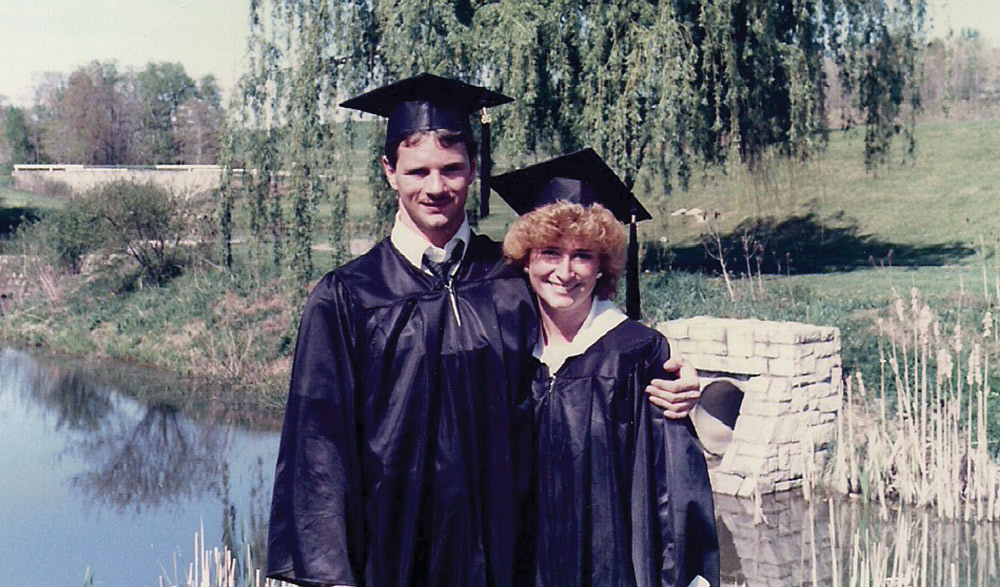
Joe is connected to the SRU community in many ways. He’s on the board of directors for the SRU Foundation, Inc., he participates in SRU alumni gatherings both on campus and near his home in Florida, he received SRU’s Distinguished Alumni Award in 2015 and he was the commencement speaker for the College of Business ceremony in 2023.
Joe started his career at ServiceMaster, and in 16 years, he advanced from being a Terminix branch manager to the managing director of Terminix Europe and senior vice president of operations at American Residential Services. Joe then spent 10 years in the automotive sector as the CEO of Tire Centers distribution for Michelin North America and president of the Sears Automotive. And during the last decade, Joe has been an executive and CEO of Environmental Pest Service, and as president of Mainstreet at The Baldwin Insurance Group, where he helped position the company for a successful initial public offering.
“We’ve moved 12 times, and I’ve had to travel a lot,” Joe said. “There have been challenges with having two kids and raising a family, but we’ve been an inseparable team through everything that we’ve done. Pam has been my best support partner, and through all the challenges, opportunities and moves, we have always found a way to grow closer and succeed together.”
Recognizing the challenges of dual careers with their transient lifestyle, Pam focused on their household. She is now active as a volunteer administrator for Community Bible Study in Tampa, Florida, where they’ve settled for the last 10 years, now that they don’t have to relocate as often. The couple’s children, Jennifer and David, are grown and starting their own families and careers.
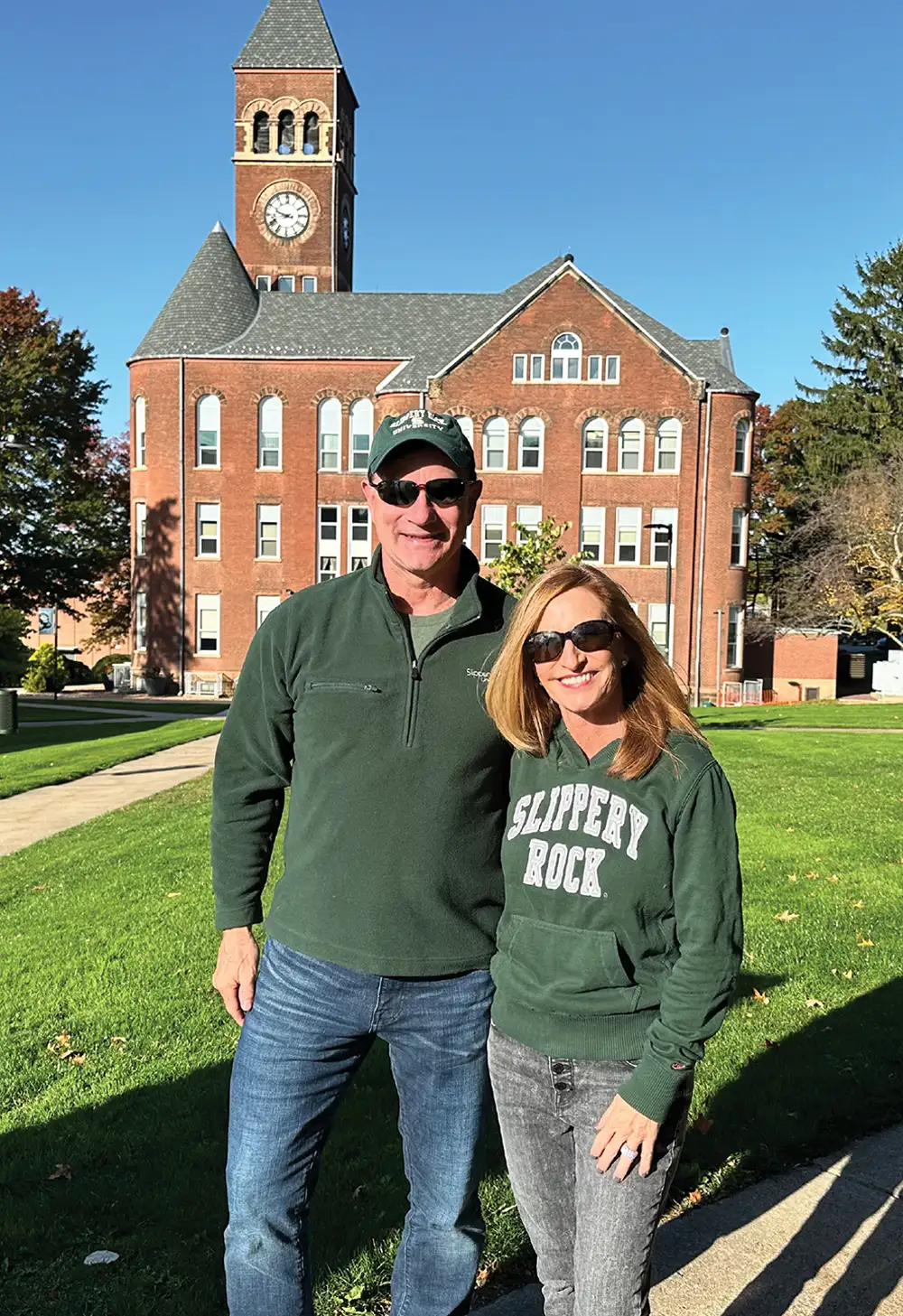

By donating appreciated stocks that they owned to the SRU Foundation, the Finneys received tax benefits. The Foundation then sold the stocks, and the proceeds were used to establish a significant scholarship endowment to aid SRU students. In addition, a portion of their gift is also designated to support the Investment Club at SRU.
The Investment Club is a student-run organization of more than 100 members within the College of Business where SRU students gain hands-on experience managing investments.
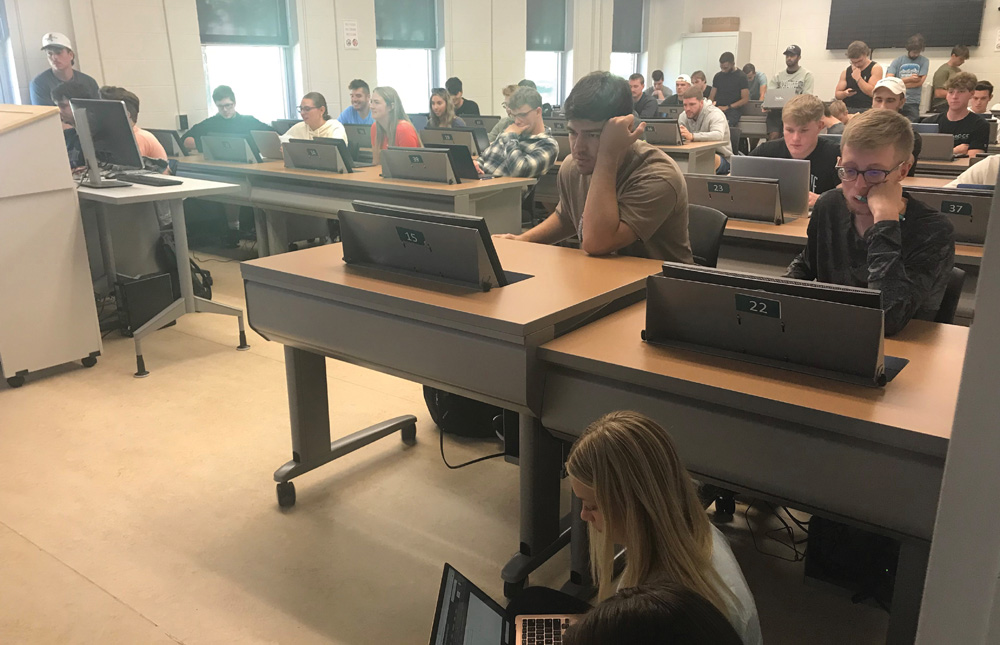
The Joseph D. and Pamela M. Finney ’86 Endowed Scholarship will support SRU students with a preference for first-generation students, those who demonstrate financial need and participants in clubs and activities.
“That’s one of the great things about these endowments,” Pam said. “You can build them how you want and SRU was very helpful guiding us.”
In addition to being Alpha Kappa Psi members, Joe was on the varsity judo team at SRU and Pam was a rifle twirler in the marching band. Joe being the first in his immediate family to graduate from college also made one of their preferences meaningful.
“I thought I was going to join the Air Force and fly jets and realized you have to be an officer with a college degree,” said Joe, who grew up in Crawford County, northwest Pennsylvania. “That led me down this whole new path and it stretched me to do things that I wouldn’t have done otherwise. So, it ended up working out better for us in the long run.”
Now, the Finneys are investing in SRU so that it will work out for others.
“I’ve learned a lot more about the University once we got more involved and looked into the programs and funding scholarships,” Joe said. “It has revalidated that this is right for us. Our decision to invest primarily in an endowment is one of those things that continues to give back over time.”
To learn more about endowing a scholarship, supporting the Investment Club at SRU, or donated to the University, contact University Advancement at 724.738.2004 or email advancement@sru.edu.

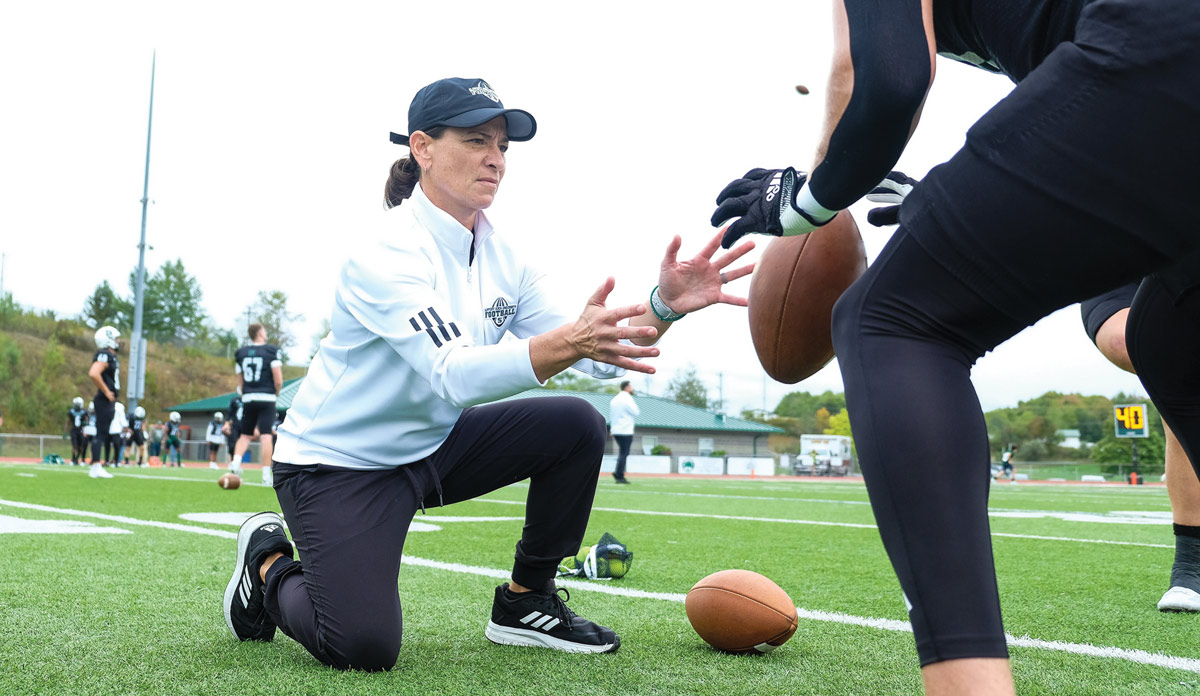
Passion Project

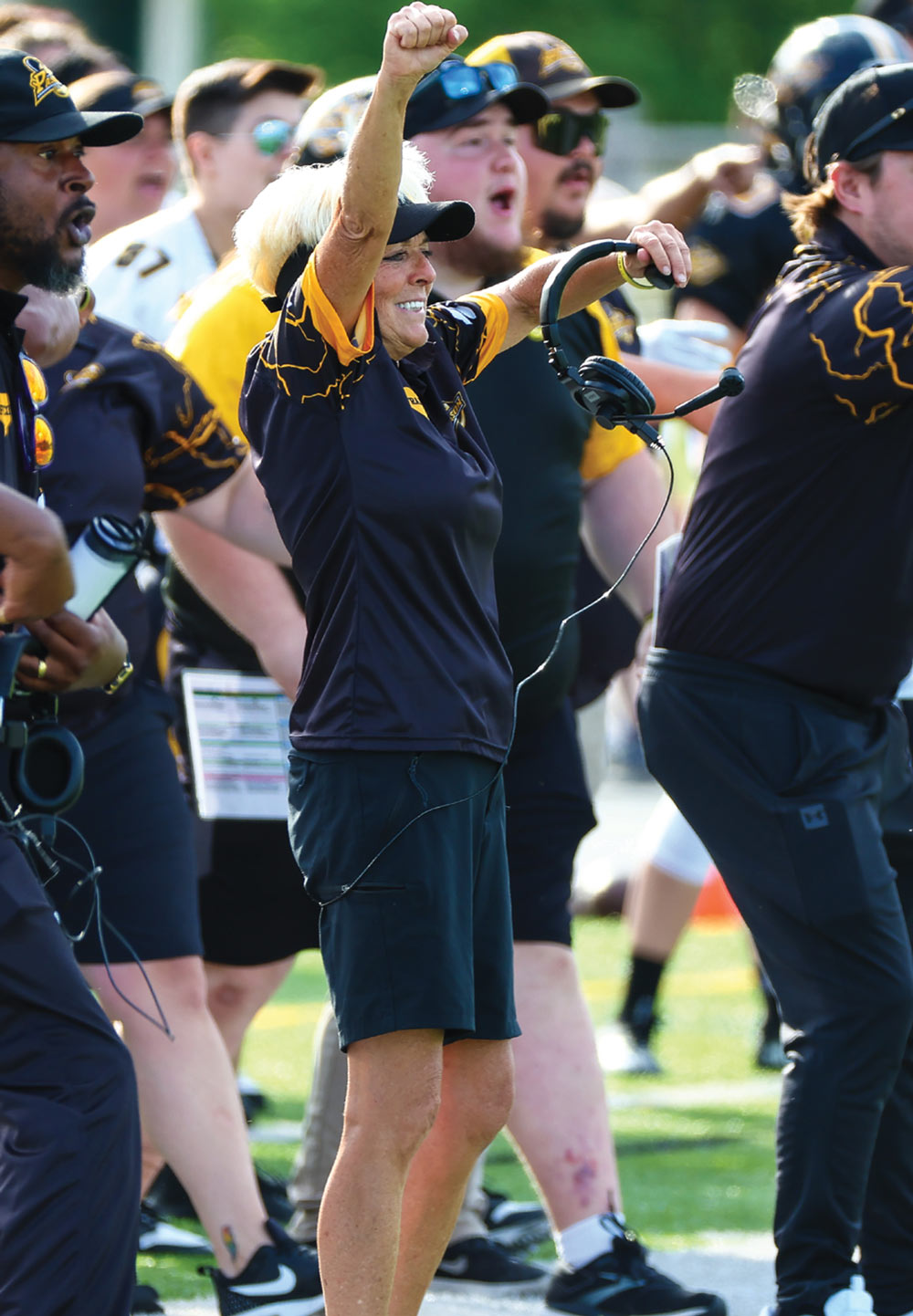

The matriarch is an SRU alumna Teresa Conn, ’86, who started playing for the Passion when the team was formed in 2002, before their inaugural season in 2003 with games played in front of a couple dozen fans at a high school stadium in Belle Vernon. Working as a health and physical education teacher in Edinboro, Conn was driving more than three hours to practices and games.
She became a team captain and the ownership group recognized her commitment to the team, so in 2004 they asked her to become a co-owner, in addition to being a player/coach, a move that would require her to change her career.
“That was a leap of faith,” said Conn, who taught and coached at General McLane High School for 16 years. “A lot of pieces fell into place when I got down there with the people we were exposed to. It turned out to be a really great move. I loved the job I had before, and I’ve loved the last 20 years with the Passion.”
One of those people Conn met was Pittsburgh Steelers hall-of-famer Franco Harris, who joined the Passion ownership group in 2011 and further solidified the team’s prominence. After Harris’ passing in 2022, his widow, Dana, and son, Dok, remain part of the ownership group, along with Conn and Anthony Misitano.
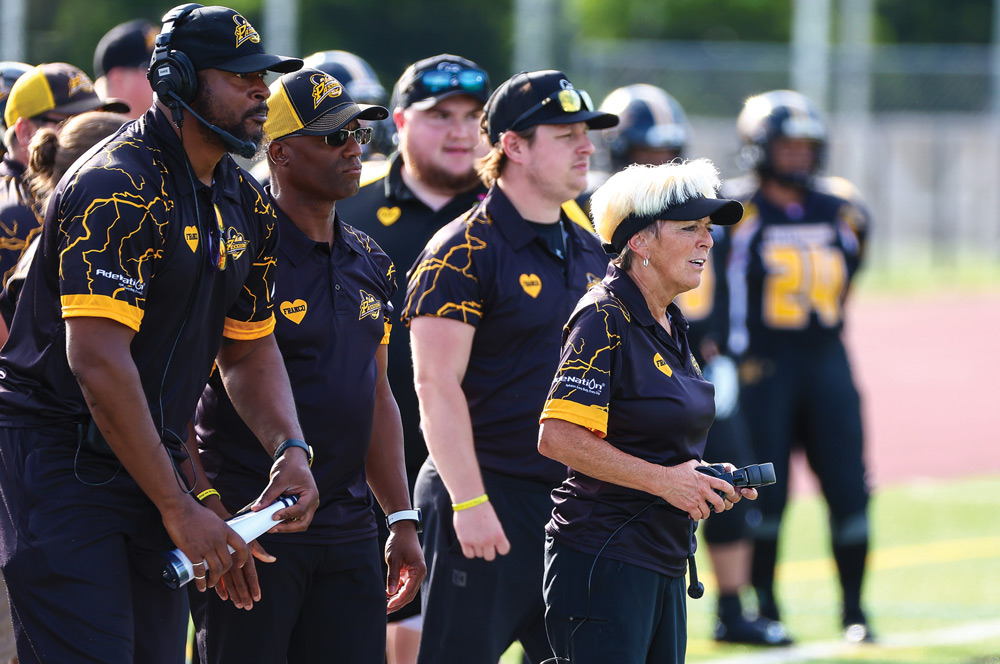
Over the years, SRU has been a source for some of the team’s best talent, particularly at the quarterback position.
Like Conn, Lisa Horton, ’04M, was part of the original Passion team in 2003. She played for 15 years, winning four league MVP awards at quarterback and passing for more than 18,000 yards and 250 touchdowns.
“It was an amazing experience,” said Horton, who is now the team’s co-head coach with Conn and its offensive coordinator. “Some of my best friends I made are from playing and coaching for the Passion. The experience and the growth that has happened through those years is just awesome.”
Another SRU alumna, Angela Baker, ’21, played eight seasons as one of the WFA’s top offensive players at receiver and quarterback.
At one point, there were as many as 10 SRU students or alumni playing for the Passion and there are four SRU alumnae on the current roster: Santana Ramsey, ’14; Ellisyn Mularski, ’20, ’23M; Kierra Jackson, ’23; and Nicole Hartman, ’23.

The players are certainly not in it for the money. Despite being “professional” football, players are required to find sponsorships from businesses and a portion of what they raise helps pay for team operations. Players typically have day jobs and practice in the evenings with games on the weekends from April to July.
“It’s a huge commitment, and that’s why it blows my mind by how much the girls love the game,” Horton said. “You’re asked to attend practices, know the playbook, execute, be in shape, and, Oh, you’ve also got to go to work and feed your child. We have doctors and lawyers and mechanics – a gamut of backgrounds. It truly is a melting pot. But their attitude is the same. We have a tremendous, committed group.”
Horton made sacrifices throughout her career as a player. She worked for the YMCA for 19 years, including five at the YMCA of Metropolitan Washington, D.C., where she was a project manager and senior director of healthy living, all while making trips back to Pittsburgh for games and practices.
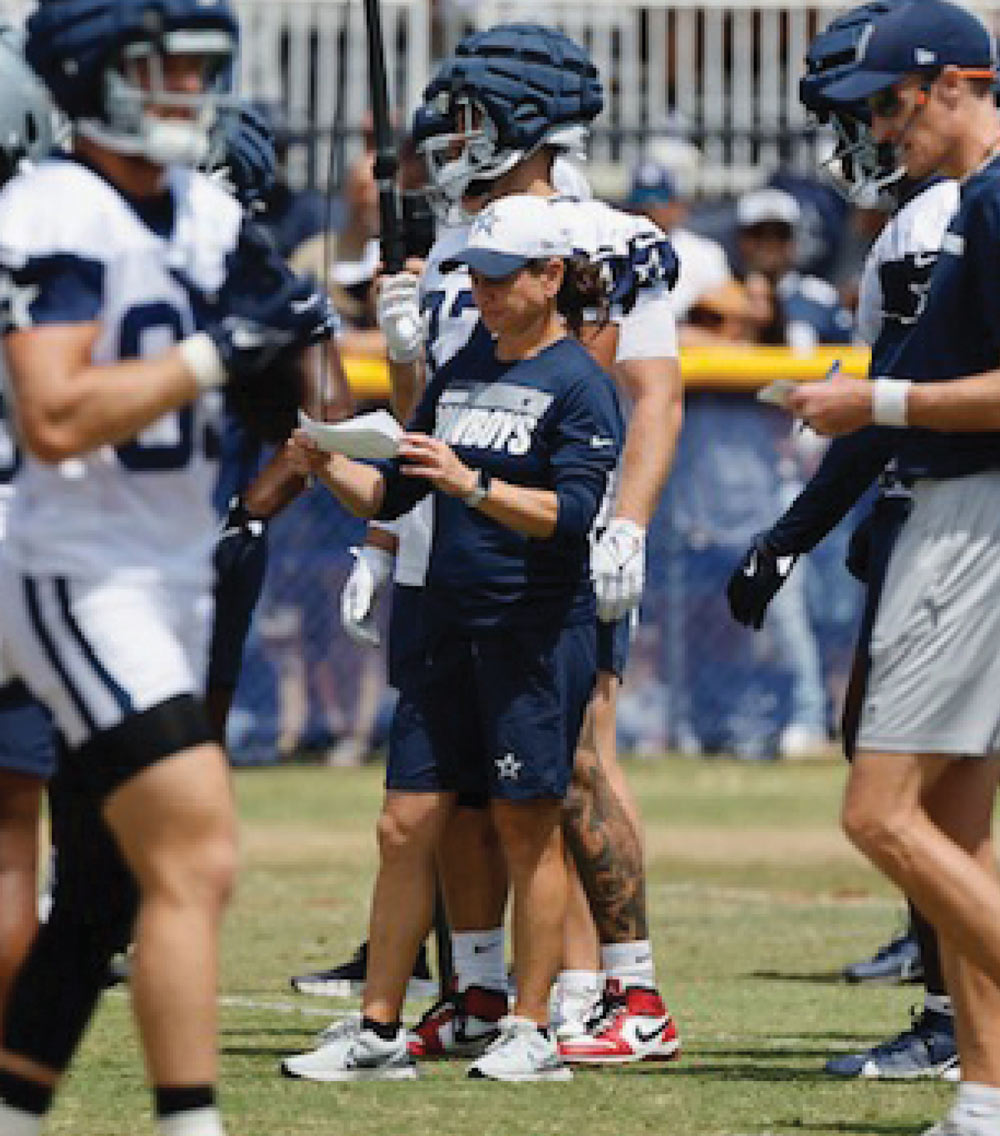
While continuing her coaching role with the Passion, Horton accepted a position at SRU in spring 2023 when head coach Shawn Lutz offered her a job as tight ends/offensive assistant coach.
“This was the time in life I knew I could do it,” Horton said. “You have to put the time in to go to the next level. I have passion for it. I love giving back to the sport. I love teaching it, whether it’s guys or girls, and I like the preparation that goes into it. There’s something about watching the process unfold when you start out with a goal in the offseason and work toward the growth and celebrate the wins. It’s a really cool experience.”
Whereas Horton preceded Baker as the quarterback for the Passion, Horton is hoping to get a full-time job on a college or NFL team, much like the path Baker chose. Baker, who is in her third season with the New York Giants, is among an emerging group of women on NFL coaching staffs. Before the 2024 season at SRU started, Horton completed another five-week fellowship with an NFL team, this time the Dallas Cowboys.
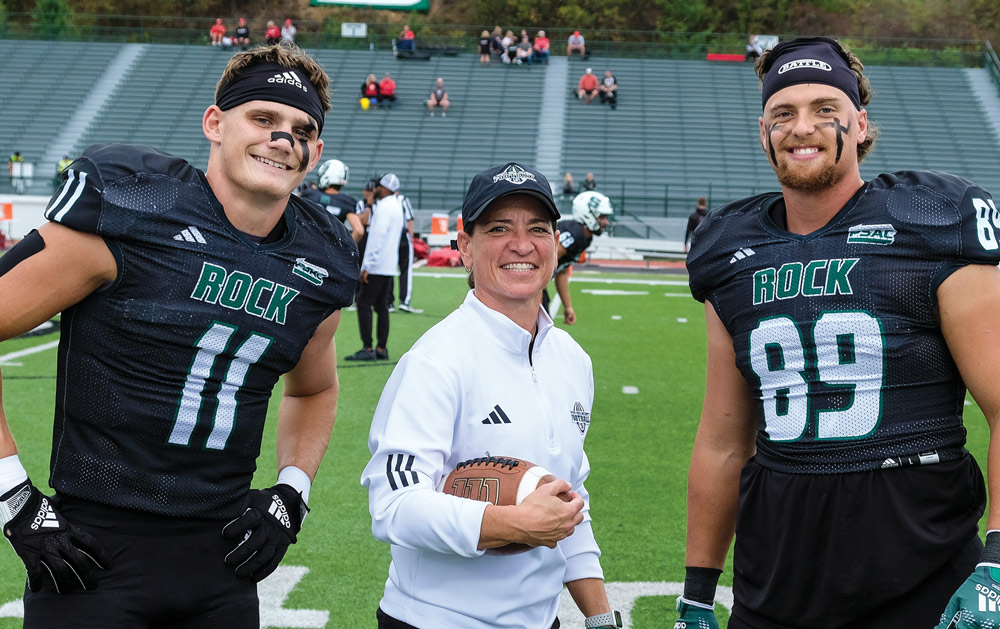
According to Conn, whether it’s men or women – or coaching or playing – football is a passion that brings people together and teaches them about life and the human condition.
“Football can teach you how to be great at anything,” Conn said. “If it’s a job or being a part of a team or a family, you practice (being great) every day on the football field. It has such a good purpose, because we’re all going to face some big challenges in life – the loss of a loved one, the loss of a job or poor health – and you learn to stand up and surround yourself with people who you know won’t let you quit, who won’t let you fail, and you just keep going.”
That is why it’s no coincidence that the people the Pittsburgh Passion surrounds themselves with are alumnae from SRU.
“We’ve had great support, especially now with Lisa coaching there,” said Conn, mentioning how SRU hosted the Passion for their 26-21 win over the Boston Renegades, June 8, at Mihalik-Thompson Stadium. “It shows their support of women’s athletics and helping to grow the program. Along with that, we’ve had some tremendous athletes from Slippery Rock who are passionate about football.”
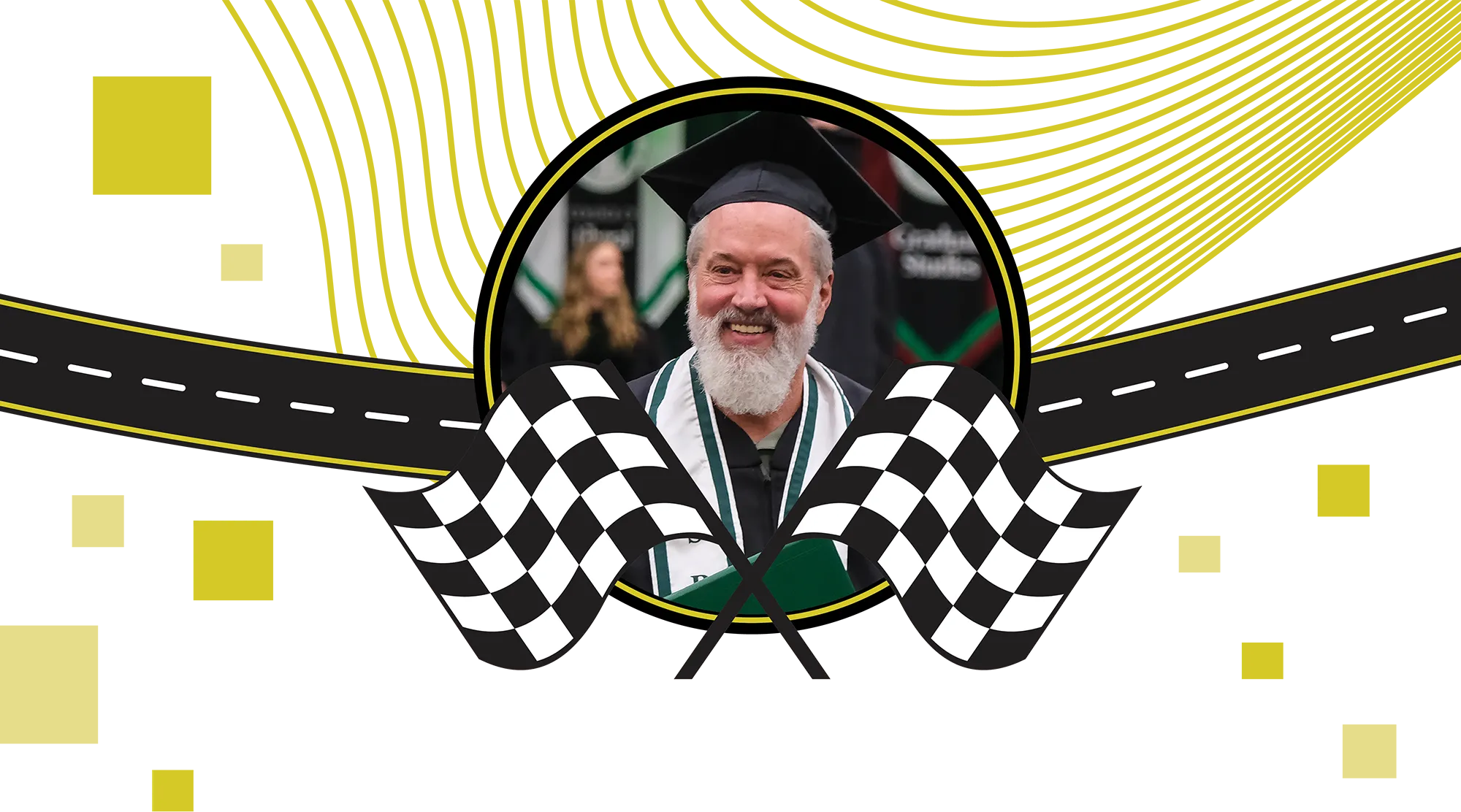

Finishing Touch


Finishing Touch


Upon looking at his gray beard and transcript that includes credits earned in 1977, perhaps Coudriet could have said “when” instead of “how.”
“While God saw to it that not having a degree didn’t hurt me, there was always an emptiness,” said Coudriet, 64, who is a church pastor in Vestal, New York, after leaving a career in real estate development in 1994. “I could have gotten my degree from any number of institutions, but I’ve never wanted a degree from anywhere else but Slippery Rock. My heart was always in Slippery Rock.”
Until he graduated May 4 with a degree in interdisciplinary studies, Coudriet was among the 40 million people in the country who earned some college credits but not a degree. Rarer is how many years have elapsed between Coudriet’s last credit earned in the spring of 1982 and when he readmitted at SRU in December 2023.
Coudriet is an example that underscores a new “Finish What You Started” campaign by SRU to reach the hundreds of former students who previously withdrew from University and encourage them to readmit. In many cases these individuals are only a few credits short of a degree and they can complete their degree online. In other cases, they may already have enough credits to graduate in a different program, without needing additional coursework.
After SRU admissions counselors conducted an audit, Coudriet discovered he needed just one class to earn a degree through an online liberal arts program. He took a Leadership course during the winter session to fulfill that final requirement.
“Our goal is to connect with former students and help them finish what they started,” said Robert Lagnese, SRU director of transfer and readmission services and new student orientation. “There are a variety of reasons why students had to separate from SRU, but we are here to welcome them back and help them complete their college journey. Earning a college degree can be lifechanging, no matter what stage of life you are in.”
“Everybody’s reasoning is going to be different, but people are living longer and having second and third careers nowadays,” Coudriet said. “Anything we can do to broaden our knowledge and understand people and systems in this smaller world that we now live in, it really necessitates a broader understanding of what’s out there.
“For someone my age, this is an opportunity to keep the brain working, which they say from a health standpoint is good for you, but more than that, (getting a degree) prepares you for how you can give back. I want to retire eventually but I never want to stop working.”
A native of Endicott, New York, Coudriet came to SRU in fall of 1977 wanting to play football and become a physical education teacher. Then he met his future wife, Dawn, whom he met on a blind date. She had come to campus from her home in Amherst, New York, to visit her sister, Cindy, an SRU student.
“I was smitten and became a lot less interested in football and a lot more interested in her,” Coudriet said. “But I also had other interests that started to captivate me.”
Coudriet changed majors to communications, joined the Phi Sigma Epsilon fraternity and the Student Government Association, becoming class president by his junior year. He left campus in fall of 1980 to complete an internship in upstate New York. While away from SRU, he married Dawn. They had their first child in 1981 and Dawn moved to Slippery Rock shortly after.
“By then, I couldn’t finish school,” said Coudriet, who took a job as a recreation director at a campground in Mercer County and became its manager. “I was trying to work to keep food on the table. We had an apartment and I had a job that soon became very time-consuming. Even though I was carrying a full credit load at the time, I ended up having to leave school. Life went on.”
The couple moved to St. Louis, where Dawn’s parents had gone for a career move. Coudriet was hired by a company that developed and managed apartment complexes and he eventually became a real estate acquisition specialist for QuikTrip, a large convenience store company.
“I didn’t take any real estate courses at Slippery Rock,” Coudriet said. “But I utilized all those skills that I got at The Rock, from the communications program and working with student government.”
He and Dawn moved back to New York in 1991. Coudriet remained in real estate acquisition with Amerada Hess, but shortly thereafter he answered a call to join the ministry. He was director of ministry outreach and development at Abundant Life Christian Center in Syracuse before becoming a founding pastor at Family Life Church in Coudriet’s hometown of Vestal where he remains a senior pastor.
Unfortunately, Dawn was diagnosed with an aggressive form of cancer in late 2022 and died in March 2023, leaving behind five children and 13 grandchildren – and a husband of more than 43 years. Grieving his wife’s passing, Coudriet began to think about college and, of course, Slippery Rock.
“I began to think, ‘Gee, I wonder what it would take to finish my degree,’ so I looked into it,” Coudriet said. “I’ve got 13 grandkids and the first one is going to college this fall, so there was this sense of incompletion. Plus, this is where I met my wife and where a big part of our life happened. I felt like there was an open end there.”
Although Coudriet didn’t complete his final class on campus, he found comfort in the familiarity of SRU and process to reenroll through the Admissions Office and other administrative areas of campus.
“It was efficient, it was personal and the response times were almost immediate,” Coudriet said. “People really looked into things for me and I felt like I was really being treated like a real individual.”
He also made it a point to come back a few times before last spring’s commencement ceremony.
“The campus is certainly larger than when I was here before, and the world’s gotten more complicated, but I still have the same personal experience that made me love this place 43 years ago.”
CLASS NOTES
-
1950s
Rosalyn Greenlee, ’59, was inducted into the Coatesville Area Sports Hall of Fame and the Chester County Sports Hall of Fame for her accomplishments in coaching swimming, track and field and cross country.
-
1960s
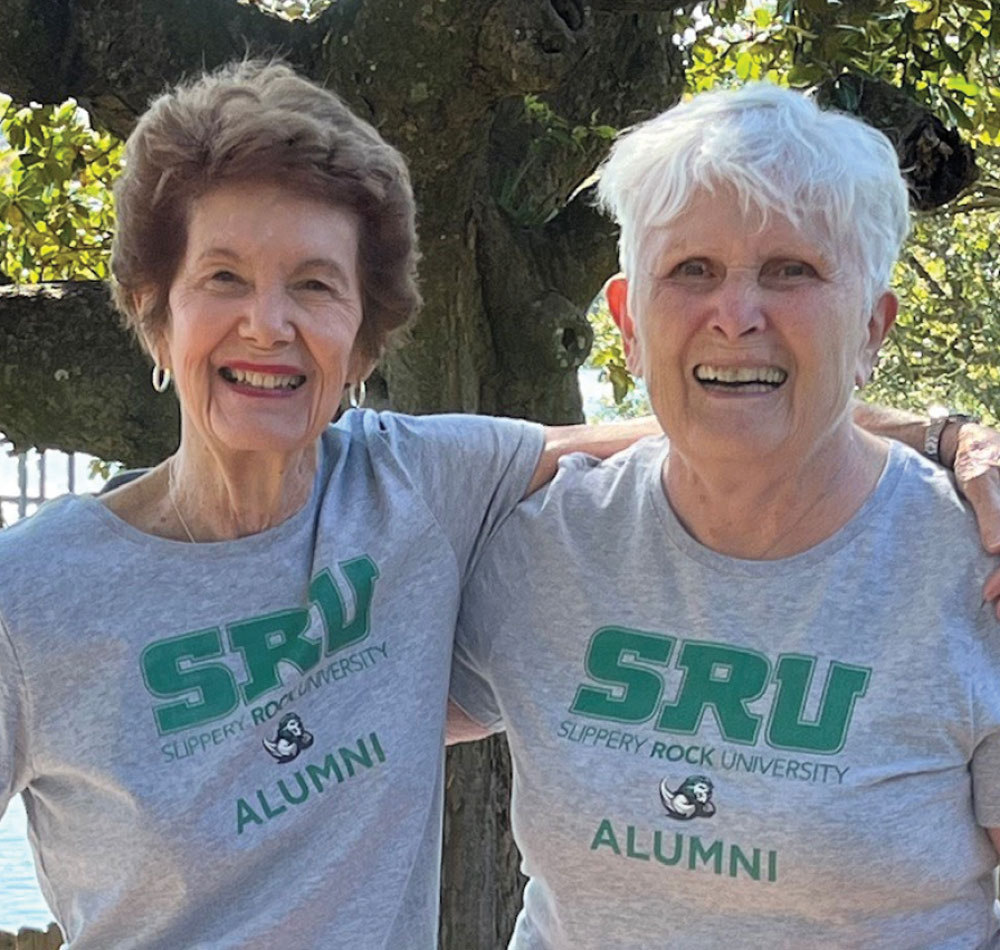
Jackie (Stephey) Foster, ’62, left in photo, and Jan (Schwab) Wilson, ’62, right, enjoyed their annual reunion in Fort Walton Beach, Florida. -
1970s
Wayne Nerone, ’74, attended his 11th Summer Olympic games as a spectator this year in Paris.
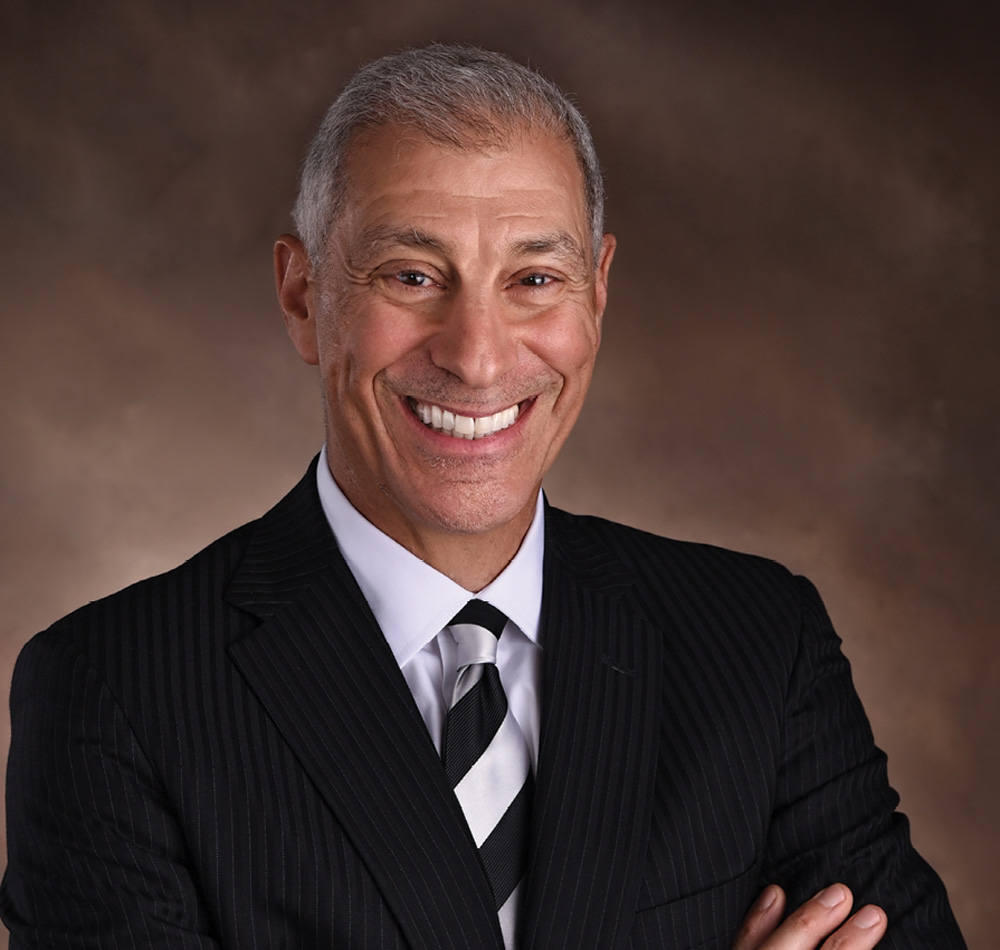
Lawrence Kelly, ’75, was elected to serve as president of the Pennsylvania Association for Justice (formerly the Pennsylvania Trial Lawyers Association). PaJ has more than 2,000 attorney members statewide. Its mission is to promote a fair and effective justice system. Kelly is a partner in the personal injury law firm of LGKG. He also coached sports at local high schools, having won a WPIAL Championship in baseball at Shenango High School in 2021.- Bill Neal, ’75, was recognized for 50 years of service to youth, seniors and families within the Pittsburgh area at formal dinner, Oct. 5, 2024, presented by The People of Pittsburgh and produced by RJG Consulting Group. Neal, CEO of Achieving Greatness, Inc., and president of Champion Enterprises, was recognized for hosting 20-plus programs annually for 50 consecutive years, including the Connie Hawkins National Summer Basketball League that Neal founded.
-
1980s
Len Krichko, ’80, was appointed president of basketball operations for the American Basketball Hall of Fame.
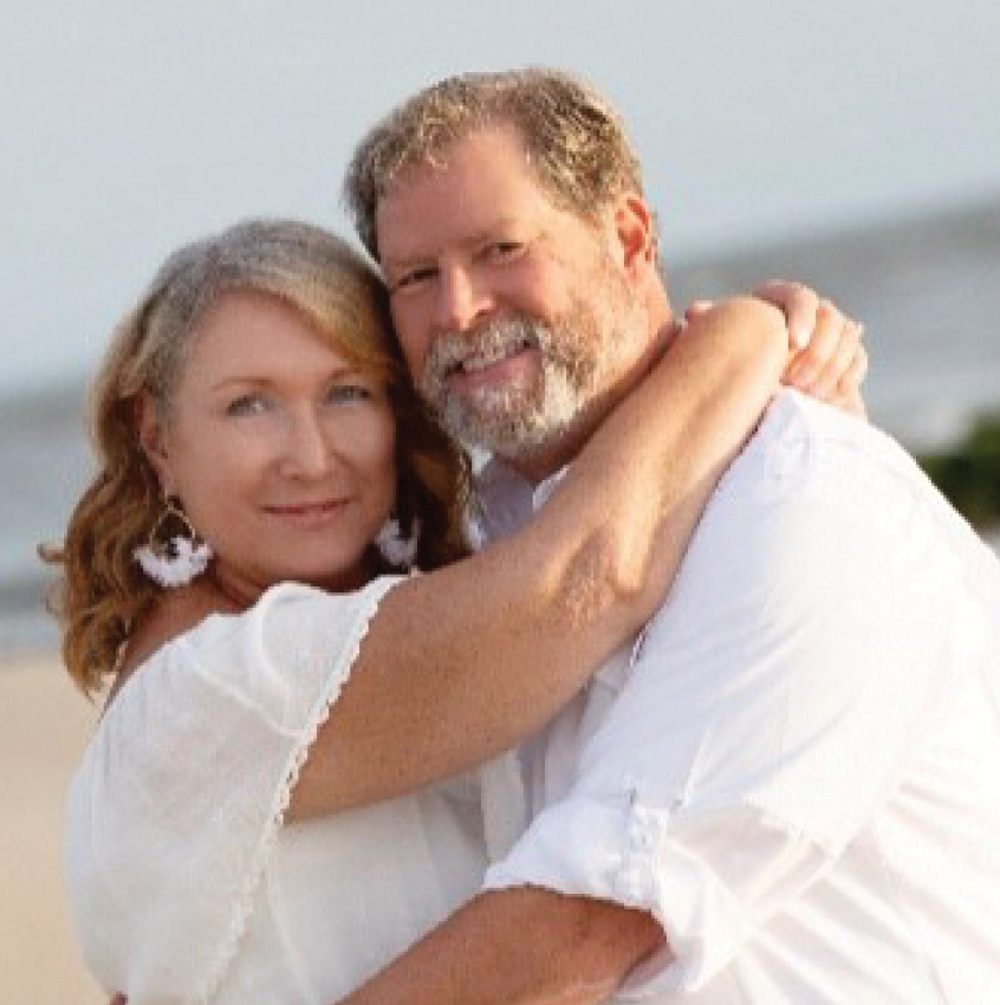
RK Bair, ’82, and Mary Alice (Pajerski) Bair, ’82, celebrated their 40th wedding anniversary. The couple shares four decades, four children and recently welcomed their fourth grandchild.- Karen Schreiber, ’84, director of the Muhlenberg Township Parks and Recreation Department, received the Pennsylvania Recreation and Park Society’s Outstanding Achievement Award. The award recognizes the efforts of a professional to increase the awareness and importance of the parks and recreation profession.
-
1990s
David M. Bird, ’91, was named 2024 Outstanding Administrator of the Year by the Indiana Council for Exceptional Children.
- Mimi Campbell, ’91, ’93M, retired from Slippery Rock University in May after 28 years of service.
- Zadia Gadsden, ’91, was named Washington Post’s Principal of the Year. Gadsen is principal at Takoma Park Elementary School in Maryland.
- Brian Maxwell, ’91, was appointed chief human resources officer at Procopio, a growing AmLaw 200 corporate, intellectual property and litigation law firm with offices in California, Nevada, Arizona and Washington, D.C.
- Gloria Ciriza, ’93, was appointed San Diego County Superintendent of Schools. Ciriza, a 30-year educator who championed educational equity, is the first female county superintendent in the San Diego County Office of Education’s 76-year history.
- David Lorenzi, ’93, was named a North American Society of Health, Physical Education, Recreation and Dance Fellow by the Society of Health and Physical Educators, SHAPE America. NAS recognizes outstanding professionals from within the allied professions of health education, physical education, recreation, sport and dance in North America.
- Dr. Rob Maloney, ’97, ’00 DPT, was appointed chief executive officer at Hemophilia of Georgia, an internationally and nationally recognized nonprofit dedicated to improving the lives of people with bleeding disorders. Maloney has also earned the Fellow of the American College of Healthcare Executives credential, the gold standard for board certification in health management.
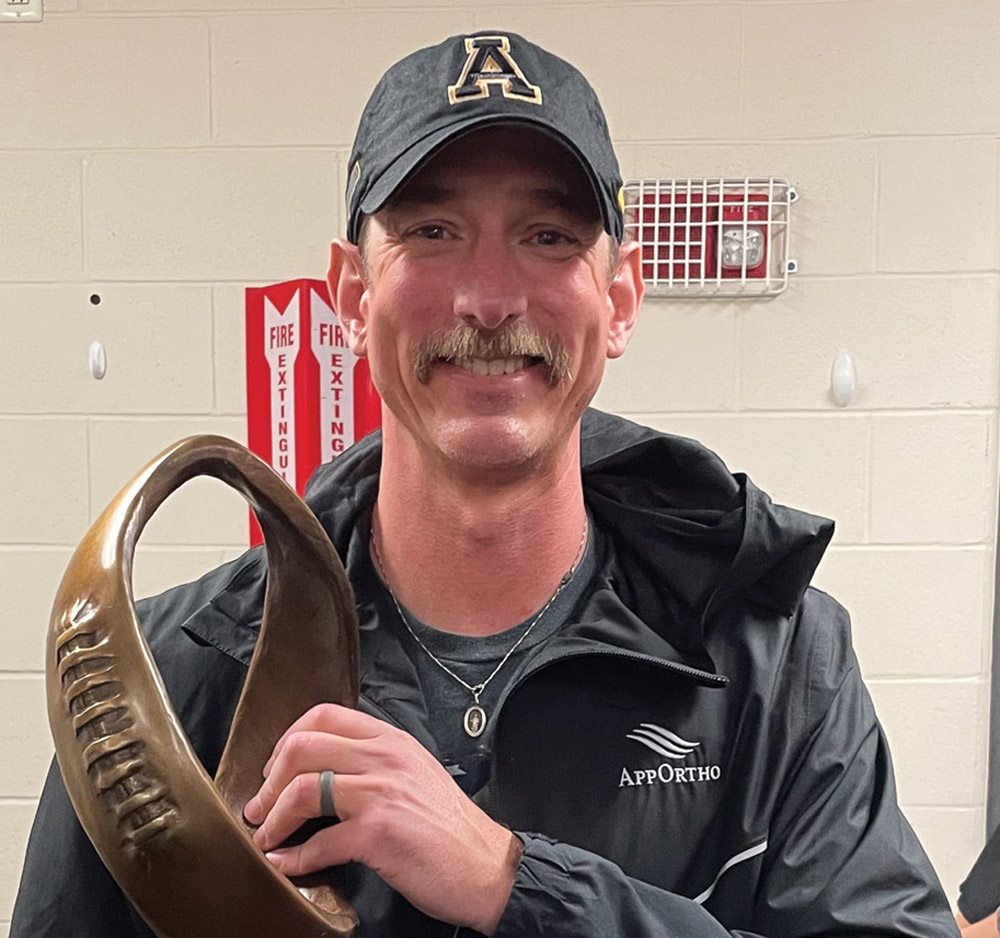
Dr. Robert Felix, ’98, completed a Sports Medicine Fellowship and has transitioned to team physician at Appalachian State University and App Orthopedics after a 10-year career in emergency medicine. In the photo, Felix holds the trophy from the Cure Bowl in which the Appalachian State University football team defeated Miami of Ohio, 13-9.- Steven Green, ’98, president and chief executive officer of Glade Run Lutheran Services, was honored with the Jean B. Purvis Community Cornerstone Award. This award recognizes a resident of Butler County who has made significant contributions in the delivery of health care services.
-
2000s
Jude Butch, ’05, earned his Ph.D. from the University at Buffalo in Educational Leadership and Policy focusing on Higher Education. Butch’s research focused on the intersection of leadership and gender. Butch is a senior associate director of student engagement at the University at Buffalo.
- Michael Cummings, ’08, was appointed to serve on the Manassas Park City school board in Manassas Park, Virginia, with his term ending July 2026.
- Cory Lacek, ’08, was named chief operating officer for Search Marketing Pros, a digital marketing company, at its newly established Pittsburgh office. Ross Hornish, ’09, is the founder and chief operating officer of the Memphis location.
- Sade Battle, ’09, was awarded the Orlando Business Journal 40 Under 40 award, recognizing people age 39 and younger who are entrepreneurs, dealmakers, job creators and innovators playing a key role in shaping their local community in Central Florida. Battle is the corporate marketing and branding director for Andy Frain Services, a provider of event security.
-
2010s
JC Lopez, ’10, was appointed vice president of student affairs at Grinnell College. Lopez is charged with leading Grinnell’s commitment to diversity, equity, inclusion and student engagement to advance the college’s strategic vision.
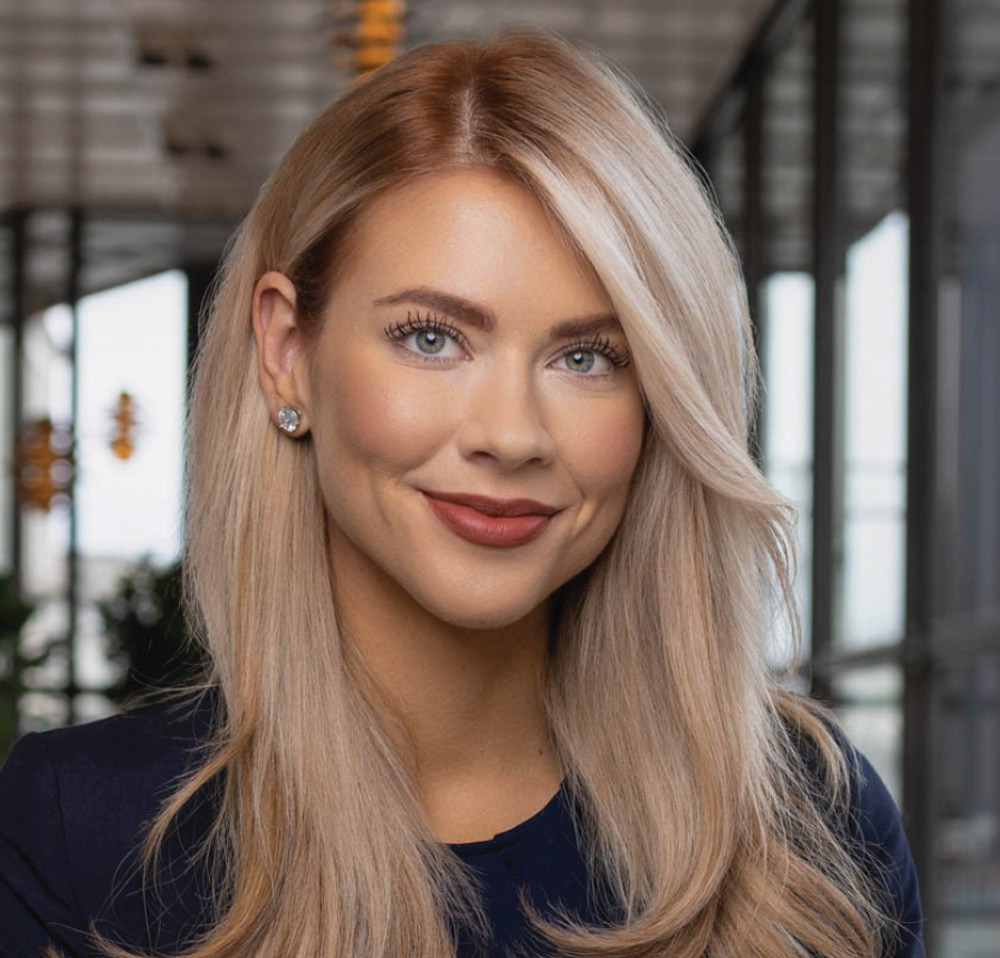
Olivia Brinker, ’15, was recently named to the 2024 Forbes “Top Next-Generation Wealth Advisors Best-in-State” list. Brinker has worked with clients for 10 years at Merrill, providing wealth planning strategies to business owners, families and retirees, and demonstrating proficiency in custom tailored wealth transfer, asset management and client centric portfolio construction. Brinker also serves as president of the Western Pennsylvania Women’s Exchange for Merrill Lynch Bank of America, a forum for women in wealth management divisions to promote personal, career and leadership development.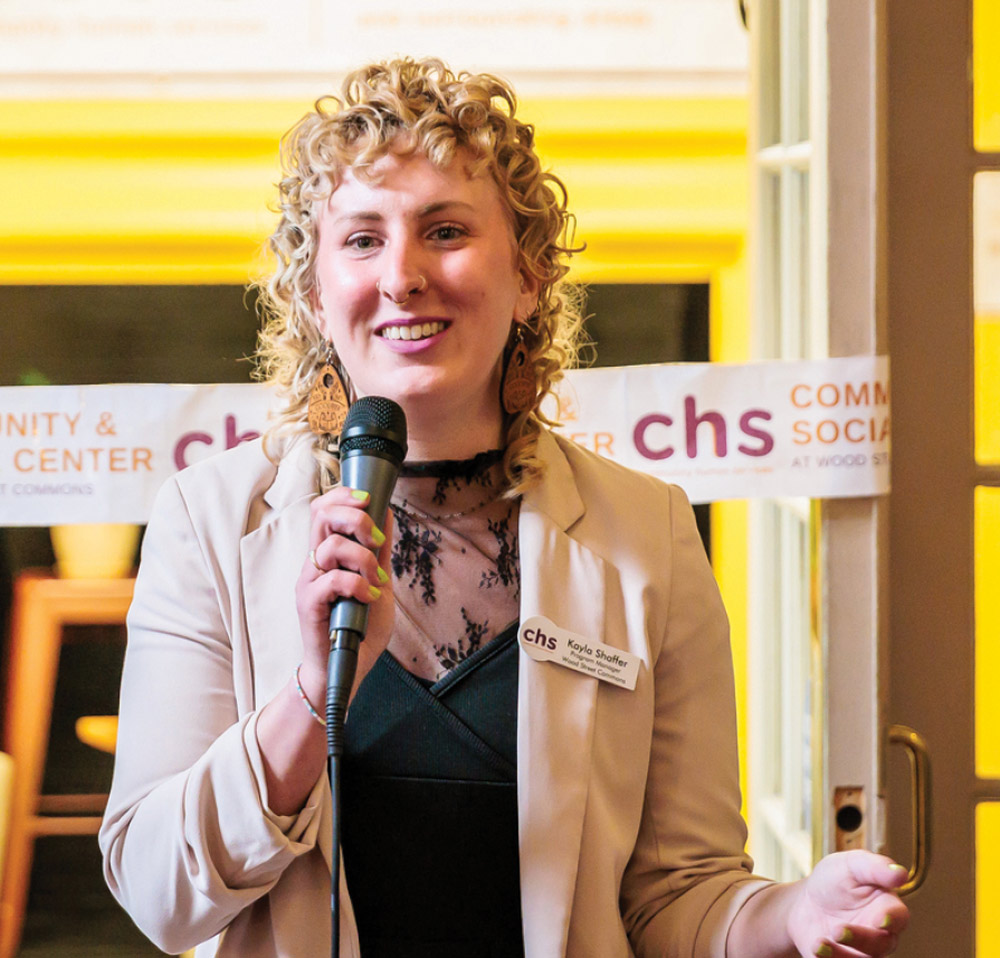
Kayla Shaffer, ’15, helped host a ribbon cutting ceremony for a community center in downtown Pittsburgh that will serve area individuals experiencing homelessness and housing insecurity by offering recreational, social, mental health and wellness, and life skills groups. Shaffer developed the community center from start to finish by writing a proposal, securing grant funding; picking out flooring, paint and furniture for the space; hiring an Activities Coordinator; and developing programming. Shaffer serves as director of shelters at Community Human Services and graduated this summer with a master’s degree in social work from Pennsylvania Western University.-
2020s
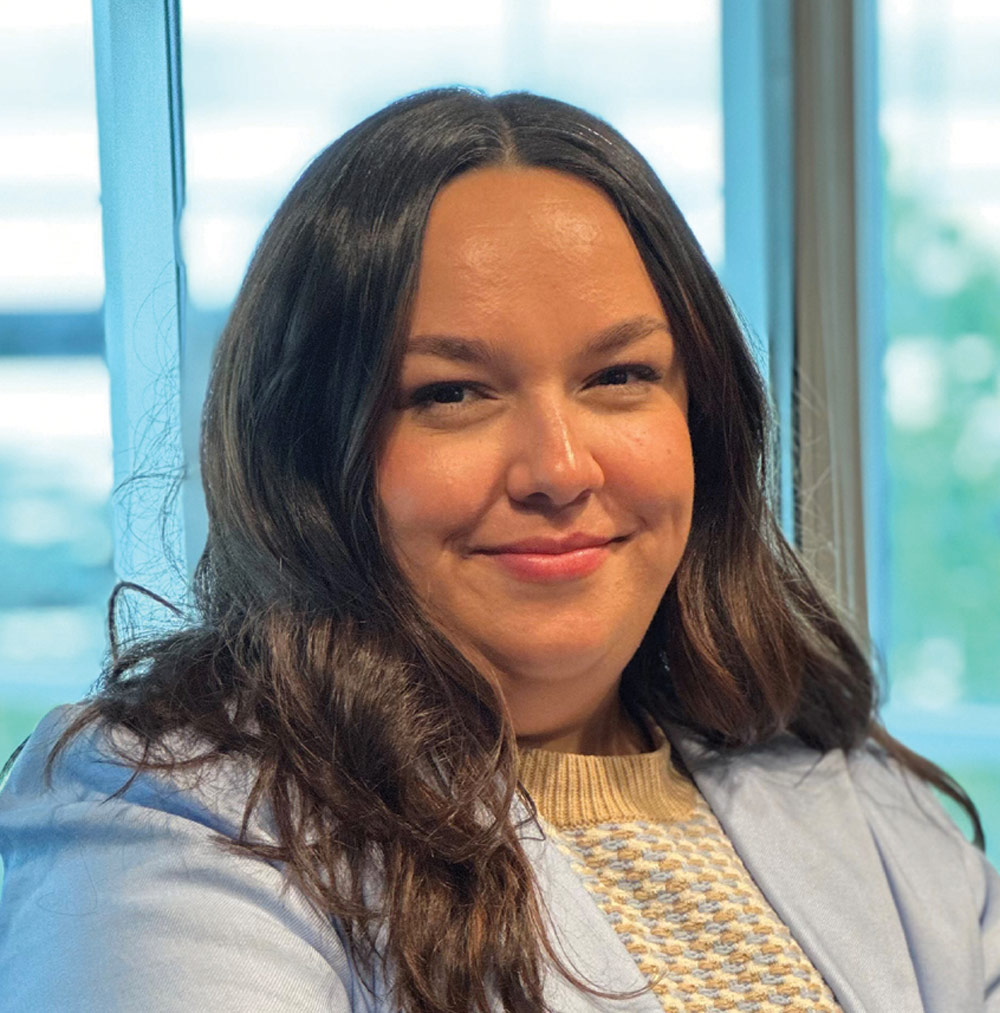
Lindsay Romeo, ’20, joined Capehart Scatchard in its School Law Department as an associate in its Mount Laurel, New Jersey, office. Romeo earned a J.D. from the Drexel University Thomas R. Kline School of Law. Capehart Scatchard is a law firm of more than 90 attorneys with offices in New Jersey, Pennsylvania, and New York. 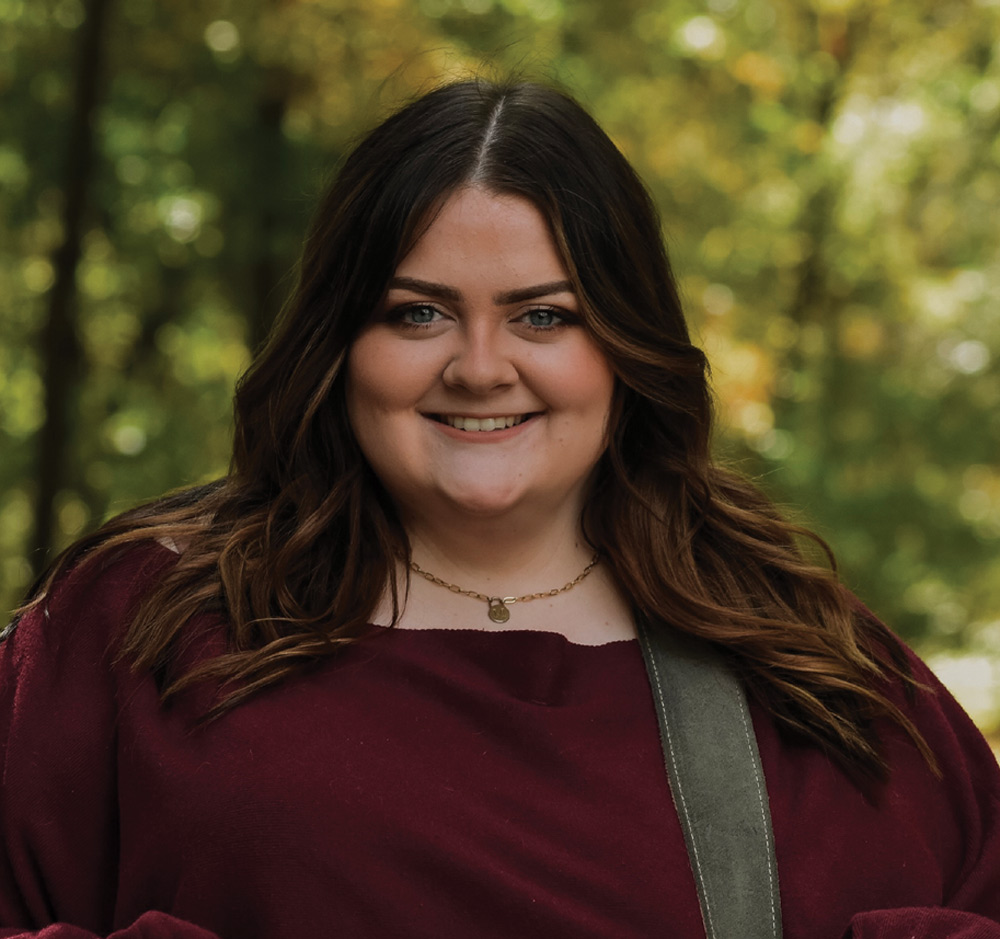
Melina Bowser, ’23, a full-time songwriter and recording/performing musician, was selected as one of six final nominees out of thousands of submissions for Pittsburgh’s Magazine’s 2024 Best of the Burgh readers’ poll in the local band/musician category.-
Weddings
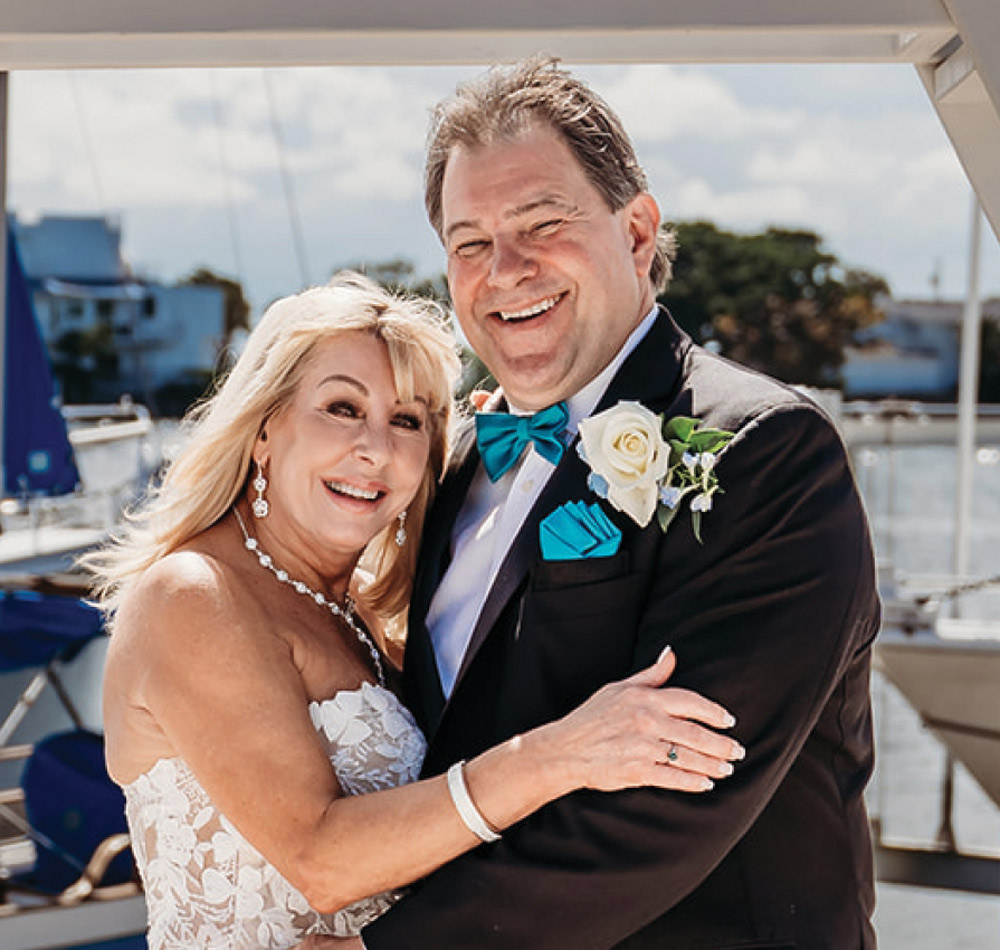
Michael Elko, ’84, and Cyndi Gilbert were married on May 4, 2024, in Indian Harbour Beach, Florida. The couple resides in both Indian Harbour Beach and Monroeville. - Kyle Richnavsky, ’20, and Tracey Bosack, ’20, were married on June 1, 2024 in Pittsburgh. The couple reside in Middleburg Heights, Ohio, and they both work for the Cleveland Clinic.
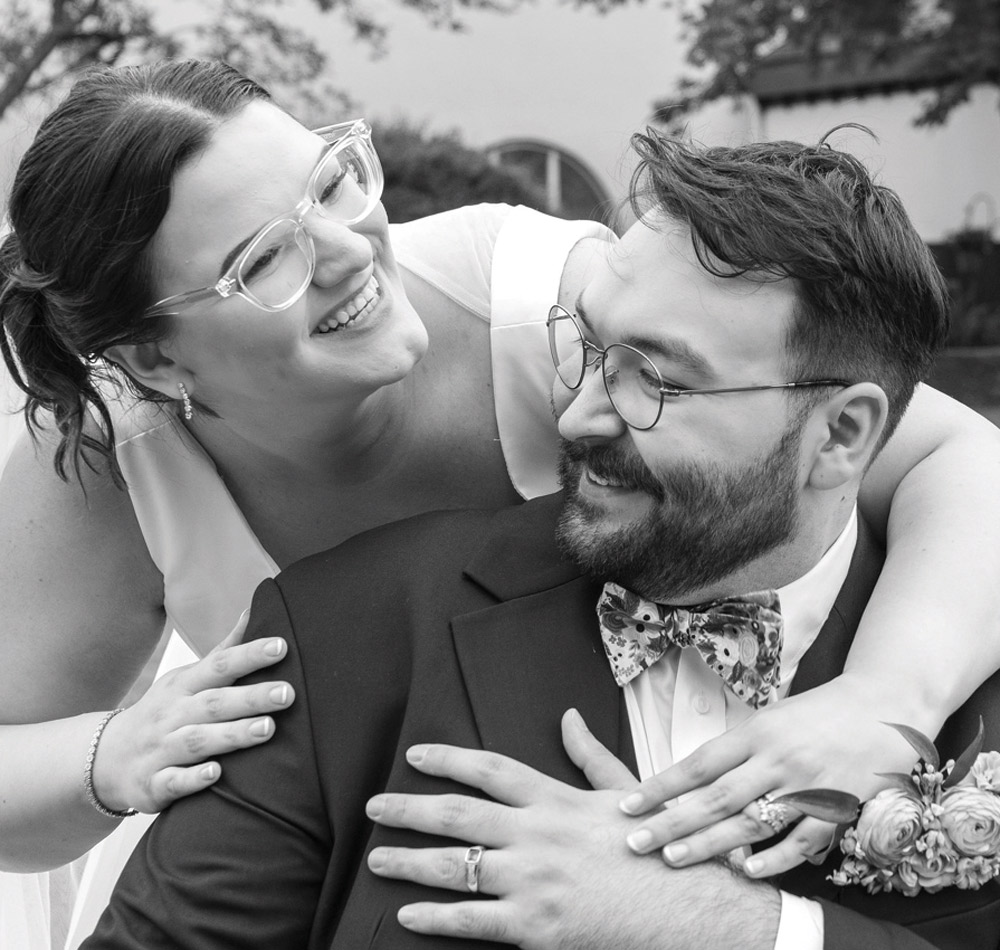
Julia Rismiller, ’21, ’23M, and Cody Tangeman were married on May 26, 2024, in Fairlawn, Ohio.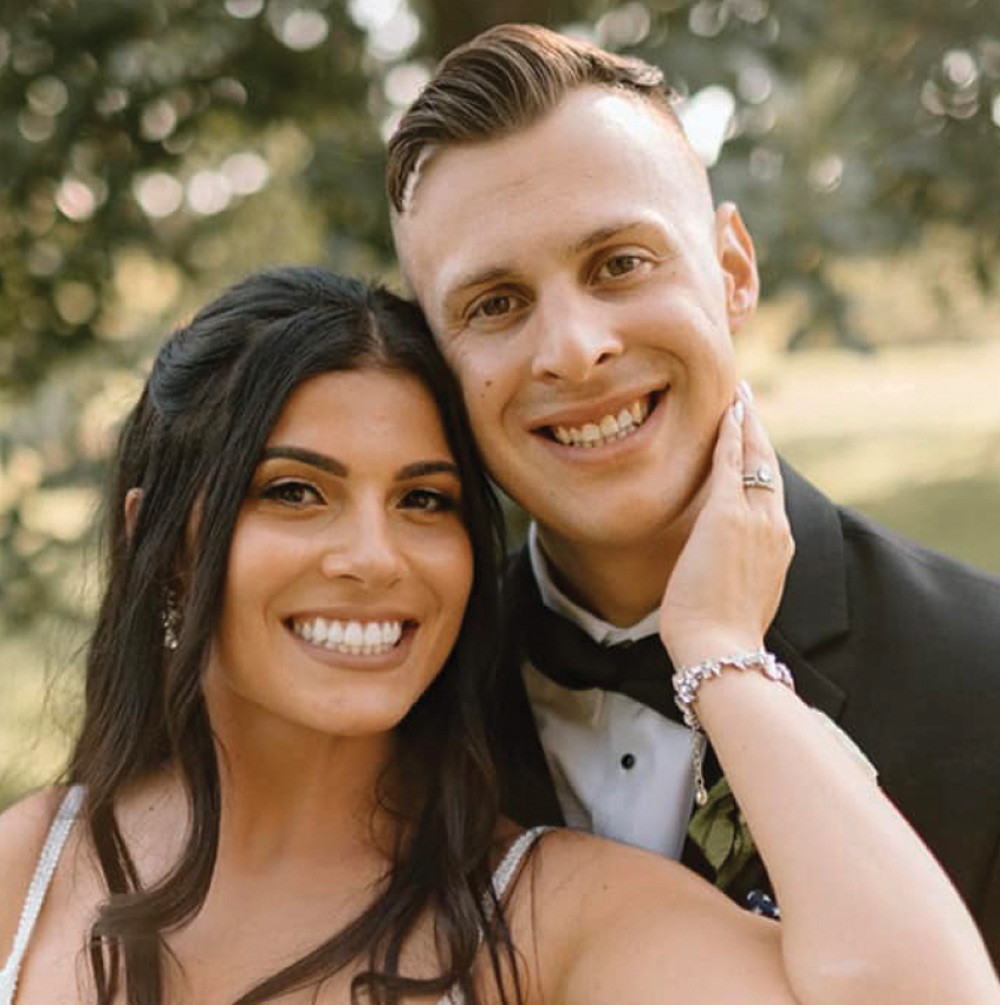
Ryan Silver, ’20, and Carlie Seibert, ’21, were married Aug. 19, 2023, in Pittsburgh. The couple resides in Chester, Virginia, where Ryan currently serves in the Army.-
Births
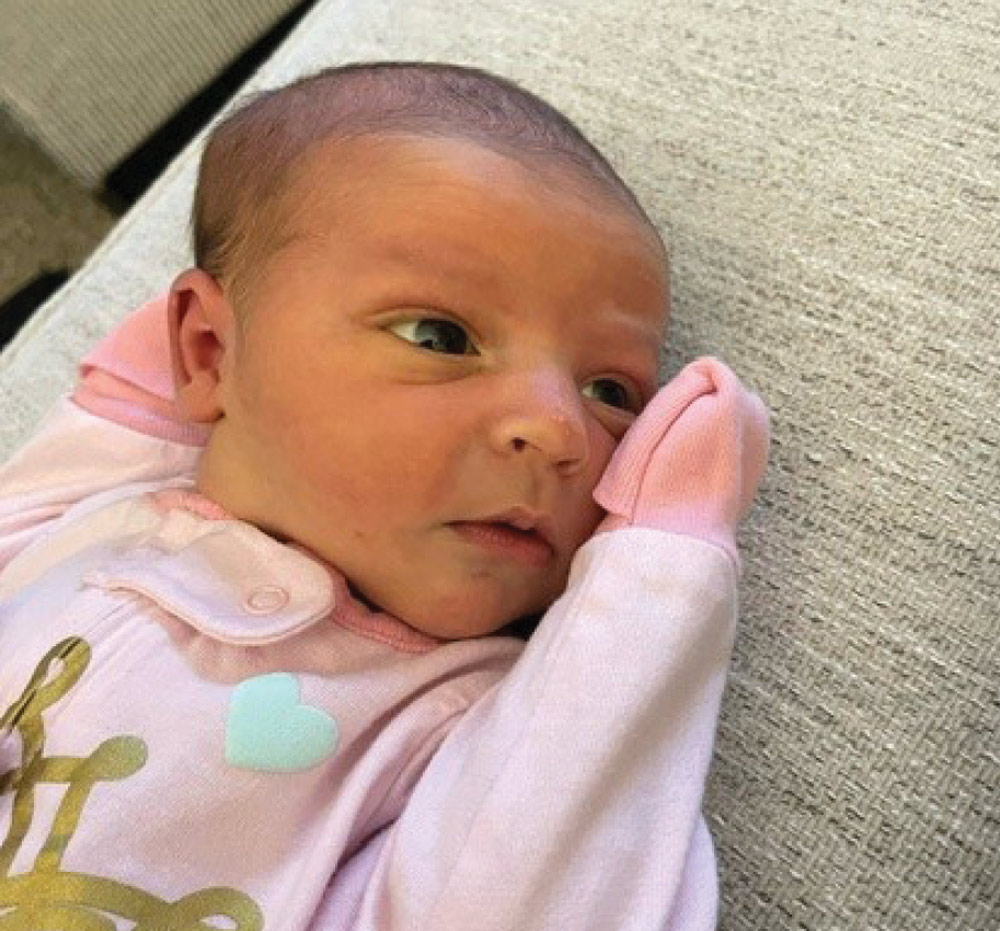
Greg Belmondo, ’08, and his wife, Leah, welcomed their second child, Capri Valentina, April 2, 2024. Capri joins big brother Giovanni Vincent. 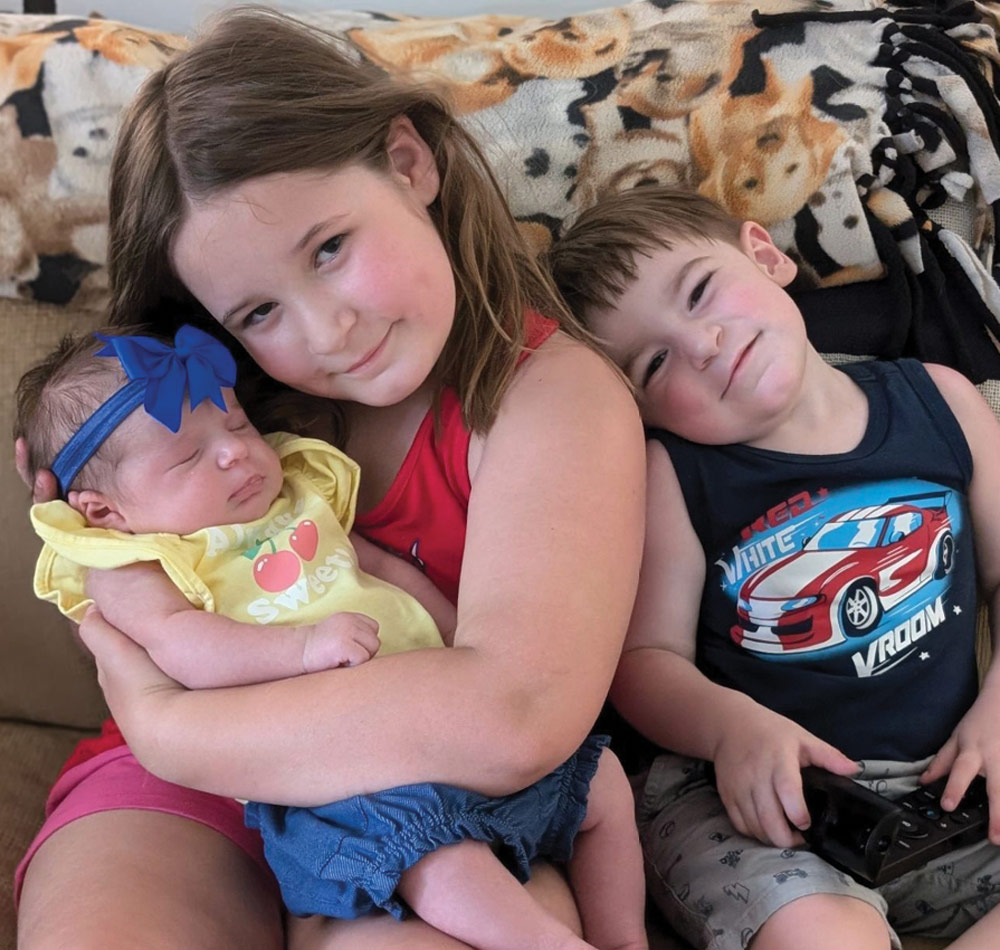
Michael Cummings, ’08, and his wife Mallory (Ries) Cummings, ’08, welcomed their third child, Mariyah, June 10, 2024. Mariyah joins siblings, Makenna, 7, and Marshall, 2.
Brandon Fox, ’07, and his wife, Tara, welcomed their first child, Makenna Grace, Jan. 23, 2024.
Joe Hritz, ’16, and his wife, Meghan (Cain) Hritz, ’16, welcomed their first child, Logan, May 16, 2024.
In Memory
- Carl H. Cotton, ’49
- Edward J. Scheetz, ’52
- William J. Lowery, ’53
- Lois C. Martin, ’53
- Kenneth E. Ball, ’54
- Olive M. Singleton (Toy), ’54
- Richard J. Dilts, ’55
- James C. Higgins, ’55
- Mary J. McKenna (Halota), ’55
- Edward C. Badger, ’56
- John M. Gehr, ’56
- Robert K. Myers, ’57
- Barbara L. Hutchison (Boyts), ’59
- Eugene R. Karmazyn, ’59
- Jan Barber (Pascarella), ’60
- Betty LaMarca (Rivenburgh), ’60
- Robert W. Meredith, ’60
- William R. Oehlenschlager, ’60
- Marilee Martin (Buchanan), ’61
- Patricia A. Cain (Yearick), ’62
- Janice A. Davis (Reiser), ’63
- Kathleen R. Gregg, ’63
- Harry G. Colaiacovo, ’65
- Sandra F. Schmidtke, ’65
- Pauline V. Saternow (Scheck), ’68
- Timmie L. D’Errico (Nahas), ’69
- Pamela M. Fanone (Vellente), ’70
- Terry L. Fahrney, ’72
- Trudi E. Slawik (West), ’72
- Marlyn M. Black, ’73
- Russell Auth, ’74
- Timothy M. Schell, ’74
- Sandra J. Cooke (Capone), ’75
- William D. Brickell, ’76
- Joan M. Peck (Miller), ’76
- Nancy Baker, ’78
- Janet C. Hardie, ’78
- Veronica Pacella, ’79
- Steven T. Hawk, ’81
- Fredrick G. Brandt, ’82
- Catherine L. Couch, ’82
- Michael S. McCavitt, ’82
- Joseph D. Valasek, ’83
- Henry B. Hall, ’85
- Marlene R. Druschel (Wix), ’89
- Allan J. Beattie, ’90
- Rosalie Whitney, ’91
- Matthew S. Willitts, ’92
- Ray Pittman, ’93
- Gloria D. Shaffer, ’96
- Robert H. Anderson, ’03
- Erin C. Higgins, ’04
- Justin B. Winchester, ’08
- David J. Mottura, ’16
- Carolyn M. Roberts, ’23
- Bernard D. Freydberg, Professor Emeritus
- Robert D. Hesselgesser, Retired Staff
- Donald F. Megnin, Professor Emeritus
- Ronald C. Steele, Retired Manager
- Constantine N. Stroumbakis, Professor Emeritus

Editorial Information
To submit “Class Notes,” email us at alumni@sru.edu or go to www.rockalumni.com.
We do not publish engagements or pregnancies, but we do publish marriages and births.
Please note that due to space restrictions, submissions may be edited. However, remember that we are proud of all our alumni and all they do. GO ROCK!

SLIPPERY ROCK UNIVERSITY ALUMNI ASSOCIATION
2024 – 2025
BOARD OF DIRECTORS
Executive Committee
President, Michael Zody, ’88
President Elect, Rajeev Karmacharya, ’95
Treasurer, Keith Warcup, ’75
Secretary, Don Huddart, ’87
Immediate Past President, Melissa Visco, ’04
Executive Committee Honorary, Richard Manning, ’75
Angela Beeman, ’06
Hollie Carlson, ’14
Justina Cerra, ’13
Daniel Clara, ’96
Corey DeSantis, ’13
Joe Dropp, ’03
Jack Dugan Jr., ’87
Claudia Hartmann, ’18
Lisa Holmes (McCullough), ’88, ’01M
Donna Kratz, ’84
Jeff Milliner, ’04
Bruce Newton, ’78
Karen Perry, ’79, ’80M
Greg Sferra, ’78
Chris Thrasher, ’23
Matt Vannoy, ’09
Holly Vogt, ’97
Sam Zyroll, ’78
The Cycling CEO

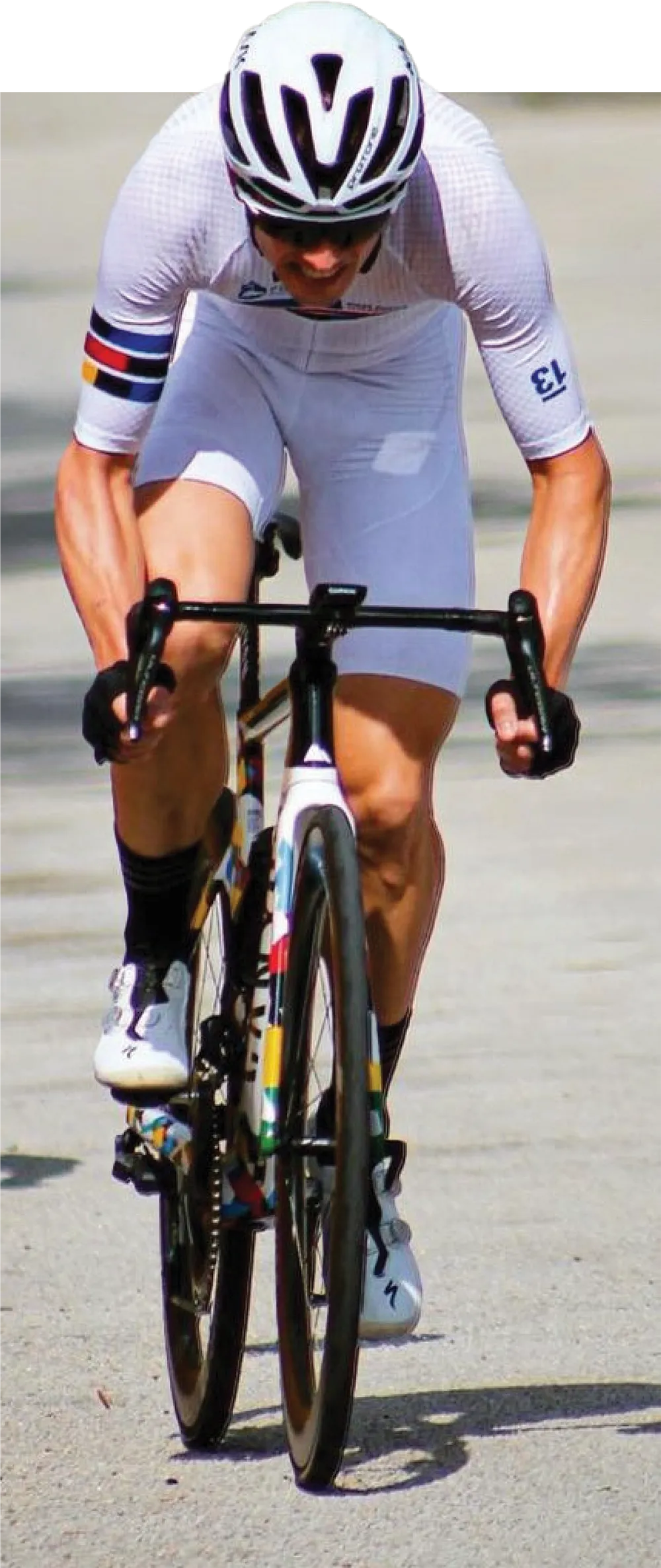
McBride, a 1996 SRU graduate with a degree in public administration, is the CEO of Tenet Physician Resources, Eastern Region, in which he oversees the Fortune 200 company’s East Coast operations that includes more than 400 doctors and health care providers and 100 practice sites. His feats as a cyclist include a bronze medal at the world duathlon championship in 2000, and he continues to compete at a high level in multi-national races in his age group.
“My personality is that I want to be the best at what I do in aspects of life,” said McBride, 50, who lives in Wellington, Florida. “I take my job very seriously and I push the team hard to achieve best in class results, and with my cycling team, we do the same.”
McBride trains about eight hours a week for races, logging miles either in the mornings or late at night around his busy work schedule.
“It’s a struggle to balance the time with work and travel,” McBride said, “but you do it for fun and try to keep it all in perspective.”
McBride developed his work ethic and passion for cycling at SRU. A native of Hermitage, McBride attended SRU to run track and cross country and pursue a career in health administration. He took up cycling as a way to cross train for his meets and recover from a minor injury. He wound up sticking with the sport, joining the cycling club team at SRU.
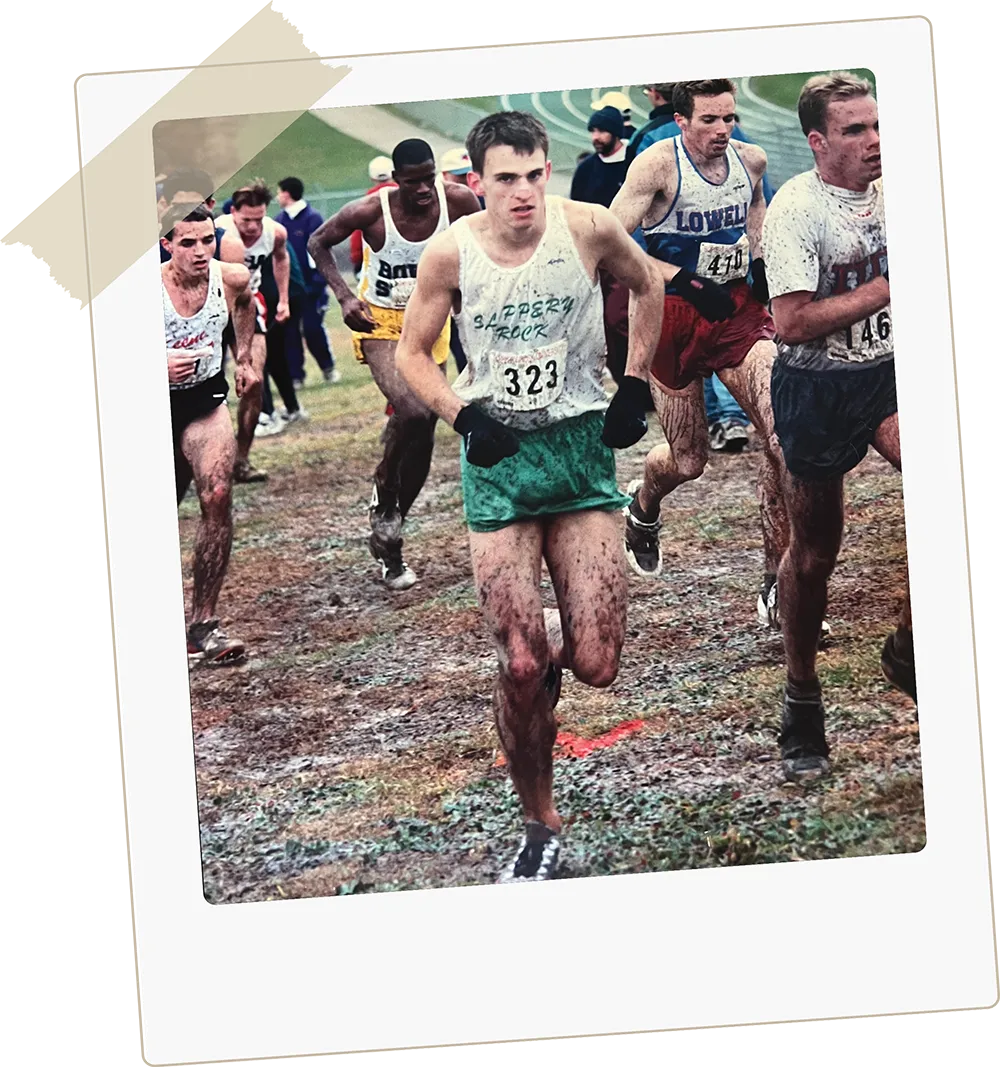
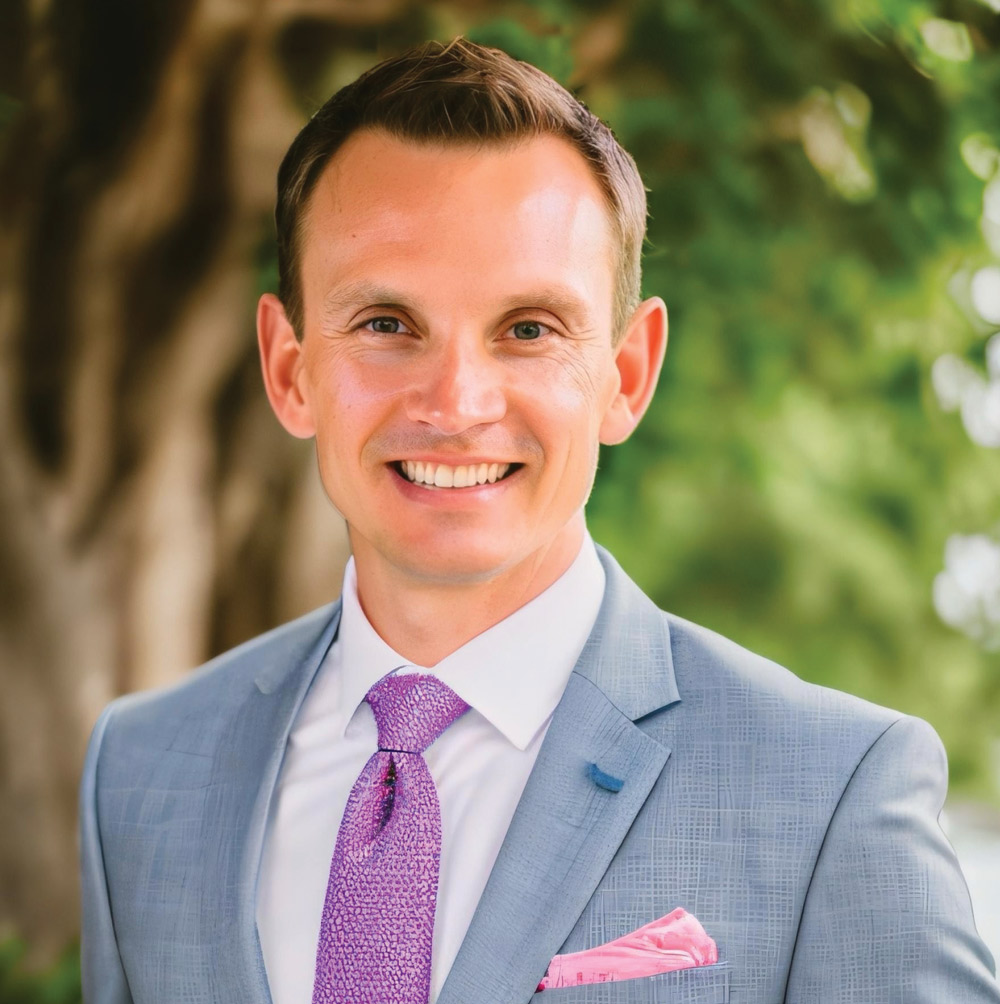
John Papa, former SRU track and field and cross country coach, remembers McBride fondly.
“He really blossomed as a runner,” Papa said. “We’ve had some other athletes that do a lot of bike riding, but few have competed to the level or degree that he did when he was here.”
One moment that stands out to Papa was when the team was in Wilmington, North Carolina, for a meet during their spring break trip. Some of the team members brought their mountain bikes and decided to go for a ride on their off day, so they invited Papa, who is now a biker but at the time had never mountain biked before.
“I’m struggling to get up this hill, and Eric rides up behind me and puts his hand on my back as he was pedaling and starts pushing me,” Papa said. “He bailed me out. He pushed me up that hill and let me recover a little bit so I could finish the ride with the guys.”
McBride pushed himself on the weekends and during the week in the classroom as well, becoming an All-Academic honoree and all-region performer. He credits his time at SRU as formative years of his life.

After graduating, McBride earned a master’s in business administration and master’s in health services administration at Xavier University in Cincinnati and started competing professionally in international running and cycling events.
He competed three times at the International Triathlon Union’s Duathlon World Championships. The duathlon consists of 10-kilometer and 5-kilometer runs sandwiched around a 40-kilometer cycling course. McBride won the bronze as the top American finisher in the male ages 25-29 division at the 2000 ITU Duathlon Championships in Calais, France, with a time of 2:01:53. He raced professionally for two more years before pausing to focusing on his career and raising a family.
McBride worked in various administrative roles at Cincinnati Children’s Hospital within its outpatient centers. In 2007, he moved to Dearborn, Michigan, and worked as an administrator in Heart Vascular and Oncology Services for Oakwood Healthcare System, before becoming the chief operating officer for Oakwood Physicians in 2012 and vice president for specialty services for the Beaumont Medical Group in 2015.

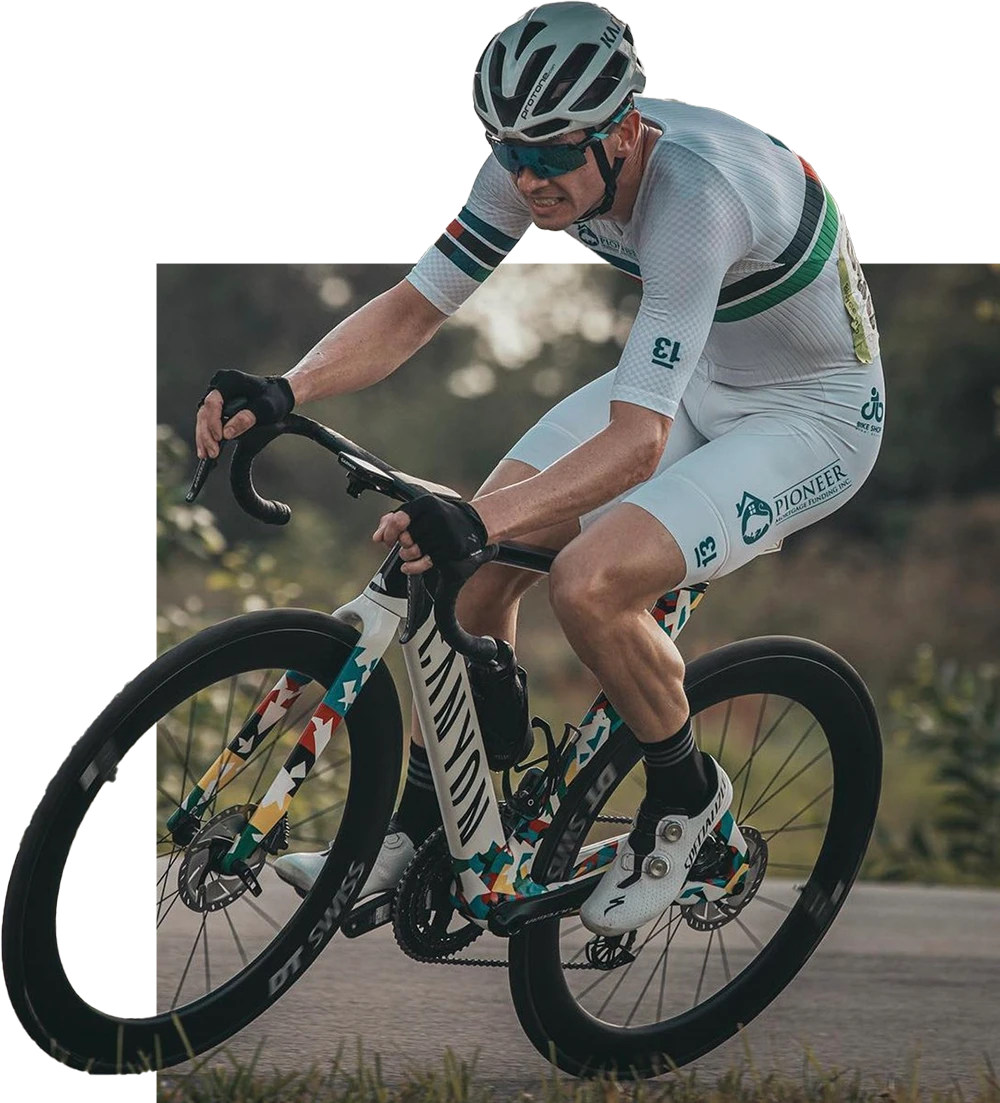
In 2021, McBride moved to Florida to become the CEO of the Palm Beach Health Network Physician Group, which is part of Tenet Physician Resources. He oversaw operations in Florida and South Carolina before recently taking leadership of the entire region.
“I like the sense of accomplishment that I get from providing care for the patients in need,” McBride said. “There’s a lot of opportunities we’ve had for people that are doing good work and creating good outcomes. We are positioned for performance, and I’m excited to be part of it.”
After his two children, Andrew, now 24, and Kiersten, 21, got older and parenting started becoming less demanding, McBride resumed his recreational cycling in 2010, and that segued into a return to international competitions.

He also competed in the Master’s Track Cycling World Championships in Manchester, England.
Whether its success in his career as a health care administrator or on his bike, McBride credits his time at SRU for getting off to a great start.
“The coursework, training and overall education was extremely relevant to what that I’m doing today,” McBride said. “Plus, the relationships that you have with classmates and other professionals, that development starts at the college level.”

I am the rock
BACKGROUND: I grew up in Greensburg, Pennsylvania, where I was a cheerleader and played softball. I chose SRU because of its renowned sport management program. After graduating, I continued my education at West Virginia University, where I earned my master’s degree.
INFLUENCE OF SRU: SRU provided me with a solid foundation and instilled in me the values of a strong work ethic, dedication, teamwork and the importance of fostering relationships, all while striving for excellence. One of my professors, Dr. (Robertha) Abney, invited me to work with her at the inaugural NCAA D-II National Championship Festival in Orlando. Little did I know that GO Sports, the host of the festival, would become my future employer. GO Sports hosted the NCAA D-II National Championship Festival for the second time this past May, welcoming more than 800 athletes to the region. It was truly a full-circle moment.
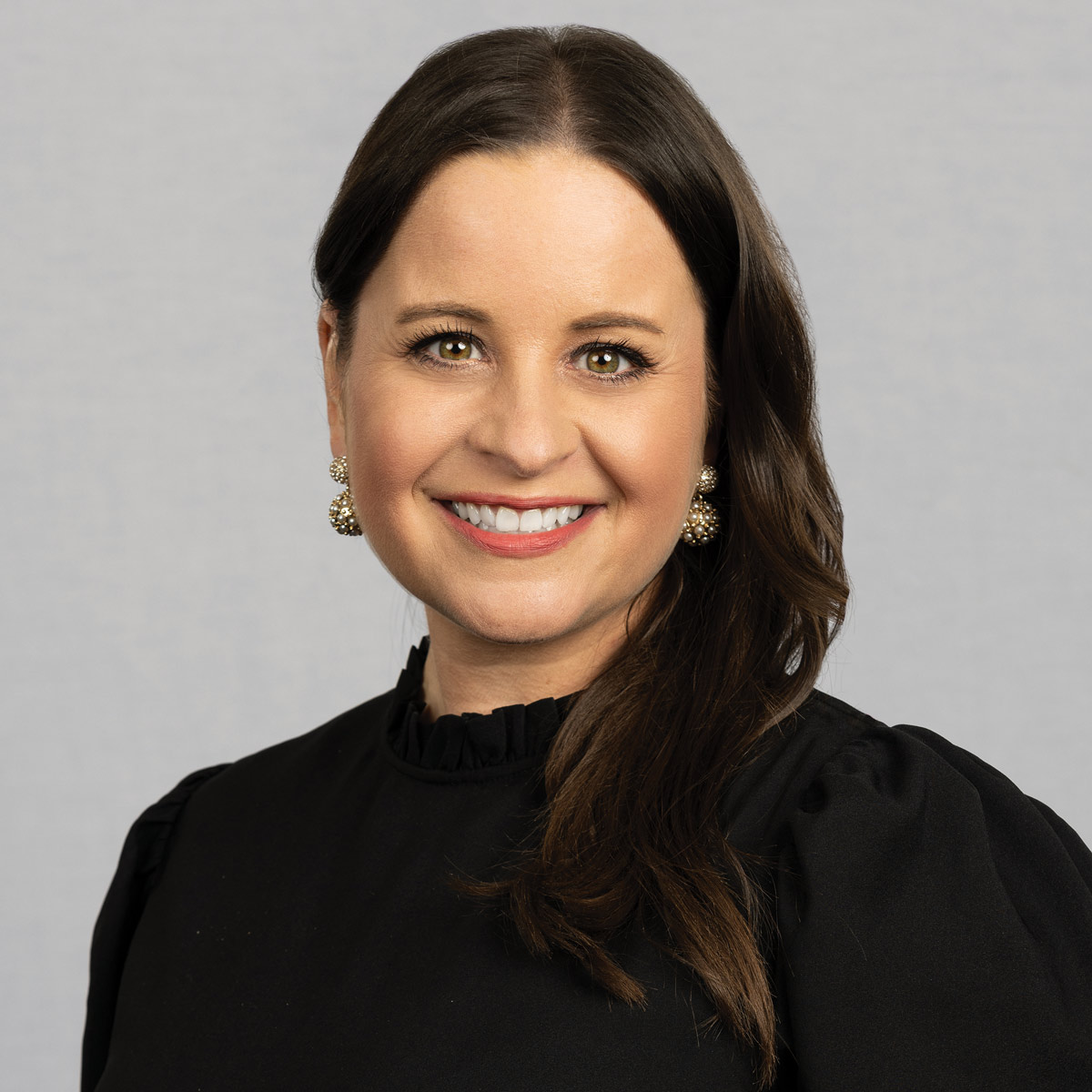
Council of Trustees
Angéle Stoebener, chair
Elise Michaux, vice chair
Charli Severo, secretary
Alfonso Angelucci
Domenic Ionta
Matt Lautman
Dan Lavallee
William McCarrier
Jeffrey Smith
Robert Taylor
Joshua Young
Christopher Fiorentino, interim chancellor
President
Karen Riley
Executive officers
- Carrie Birckbichler
Vice President of Finance & Administration - Keshia Booker
Interim Chief Diversity Officer - Michael May
Vice President of Enrollment Management - Holly McCoy
Chief Human Resources Officer - Troy Miller
Vice President of University Advancement - Tina Moser
Chief of Staff - David Wilmes
Chief Student Affairs Officer - Michael Zieg
Provost and Vice President of Academic Affairs
Credits
Editor: Justin Zackal, associate director, University Marketing and Communication.
Designer: Megan Cassioli, interim director of graphic communication, University Marketing and Communication.
Contributors/Editorial Assistance: Lisa Gray, administrative assistant, University Marketing and Communication; Sam Toki, junior art and communication and strategic media major
Photographers: Mike Schnelle, visual communication director, University Marketing and Communication; Alumni Relations; SRU alumni.
The ROCK
The ROCK is published two times annually by the Office of University Marketing and Communication for friends and alumni
of the University.
Send address changes to:
Slippery Rock University
University Marketing and Communication
1 Morrow Way
104 Maltby Avenue, Suite 201
Slippery Rock, PA 16057

